Best cameras for kids 2025: we've tested the best cameras for children and teens
The best cameras to buy for young creatives
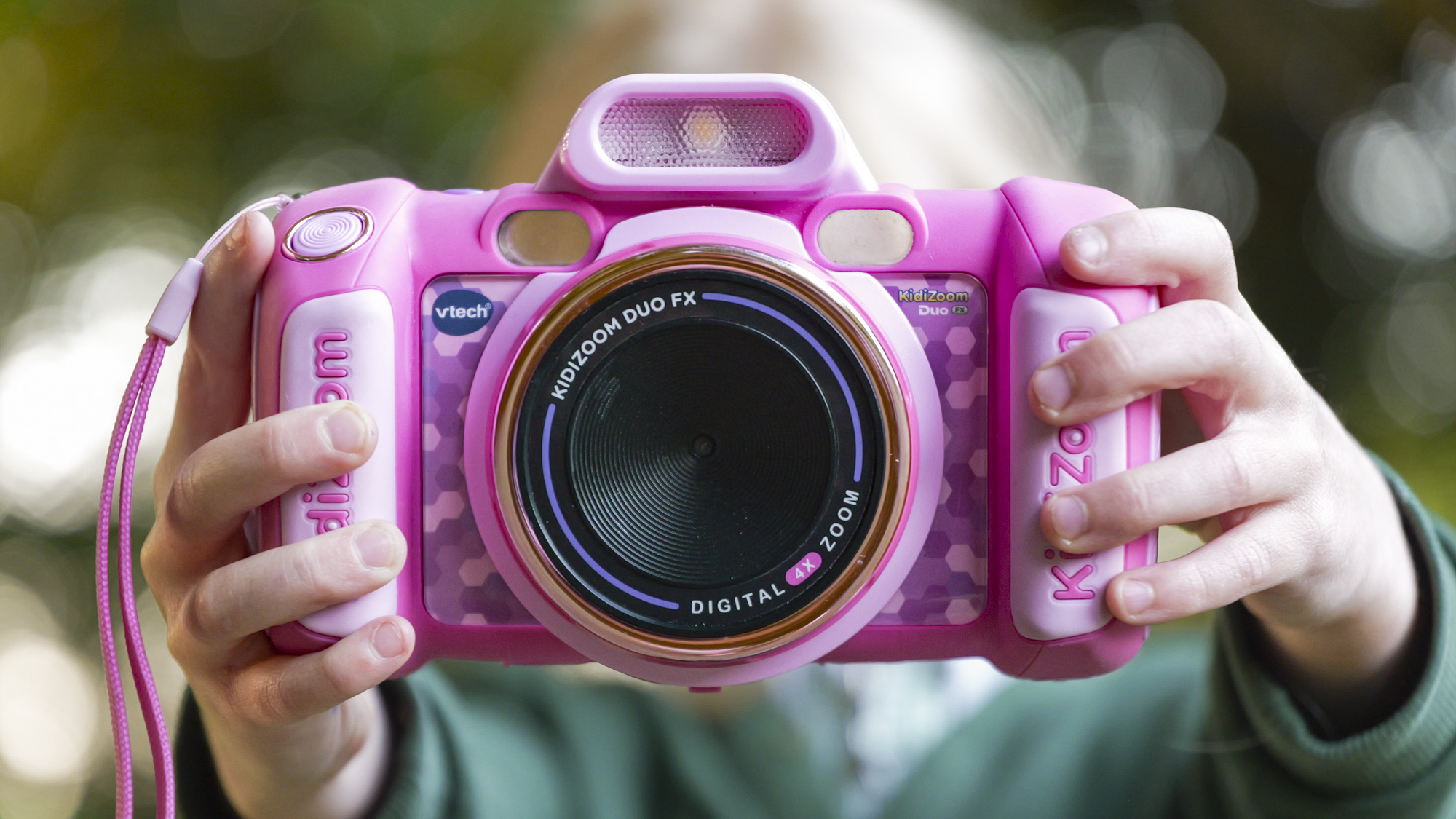
Cameras are a great way for kids to explore and interact with the world around them. I know, because I and many of our expert testers have introduced our own children to photography. I think there’s a lot to be said for letting little ones shoot with a real camera from an early age. That’s why I've rounded up the best kids cameras here, from fun instant printers to robust point and shoots.
I think the VTech KidiZoom Duo FX offers excellent value for younger children. It’s a tough camera that’s easy for kids to hold. It’s also packed with fun, creative modes to keep youngsters entertained. In my review, my junior assistants found it endlessly engaging (even if the in-camera games eventually became a distraction). For older learners who are ready for their first proper camera, I think the Canon EOS R100 is a great bargain.
I and my reviews team have tested thousands of cameras over the last two decades, so we know what features to look for. Every camera here has been tested with young photographers in mind. Our process covers all the aspects that matter, from usability to build quality to battery life. Because our recommendations are based on the results of real-world testing, you know they can be relied upon.

I'm TechRadar's Cameras Editor, with more than 15 years' experience as a photographer and technology journalist. I've reviewed hundreds of cameras during my career and, as a father of three, I also have a personal insight into what kind of camera will appeal to most kids. And, while some of the cameras in this list are designed specifically for children, others are standard cameras that I think work really well for young photographers.
Top 3 picks
If you don’t have time to read my full list of the best cameras for kids, you can read the round-up below for a shortcut to the top options for your needs and budget. If you find one that takes your fancy, use the links to jump to our full write-up.
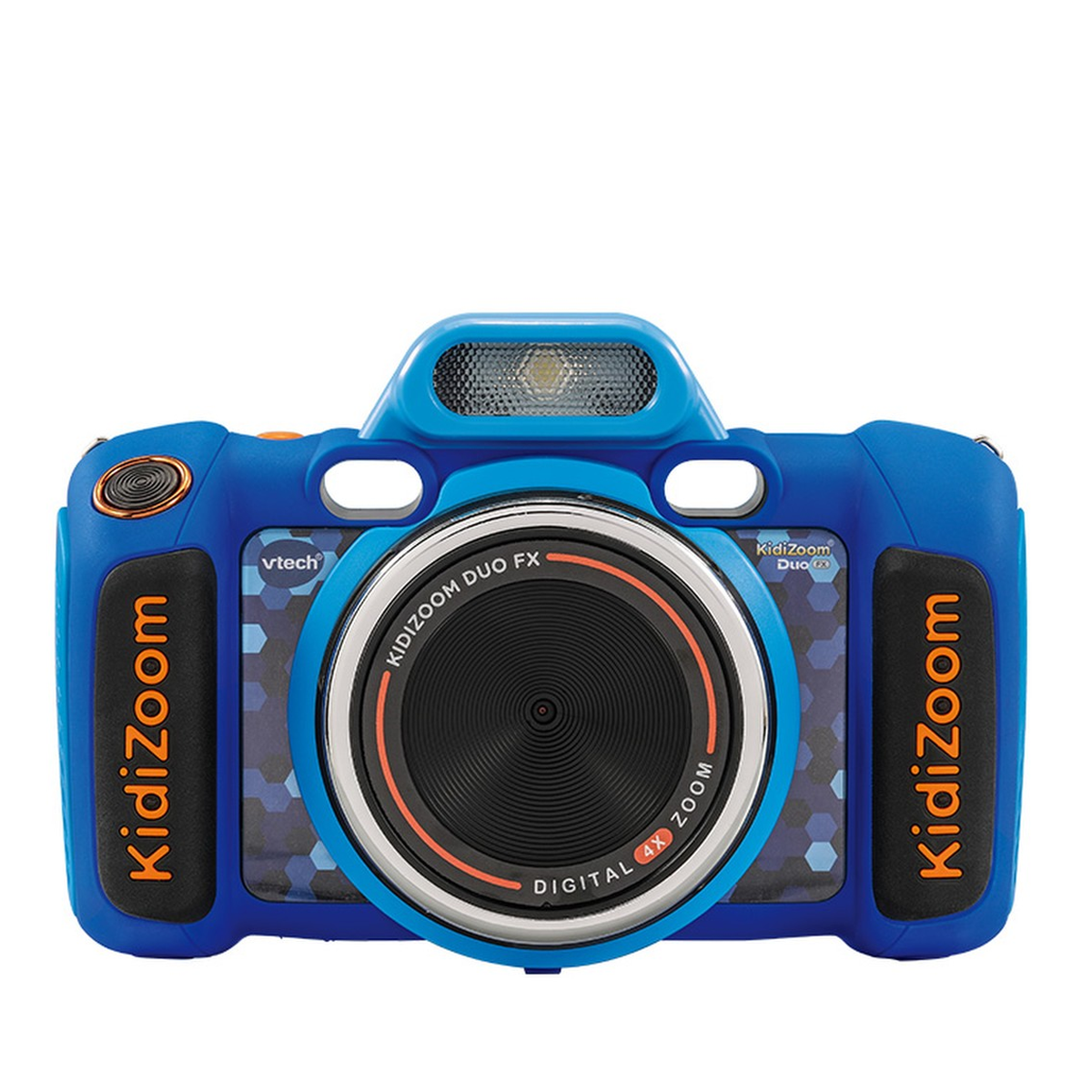
Best cheap camera
A feature-packed camera with a fun, rugged shell designed for little hands, the Duo FX offers plenty to keep youngsters entertained on a budget.
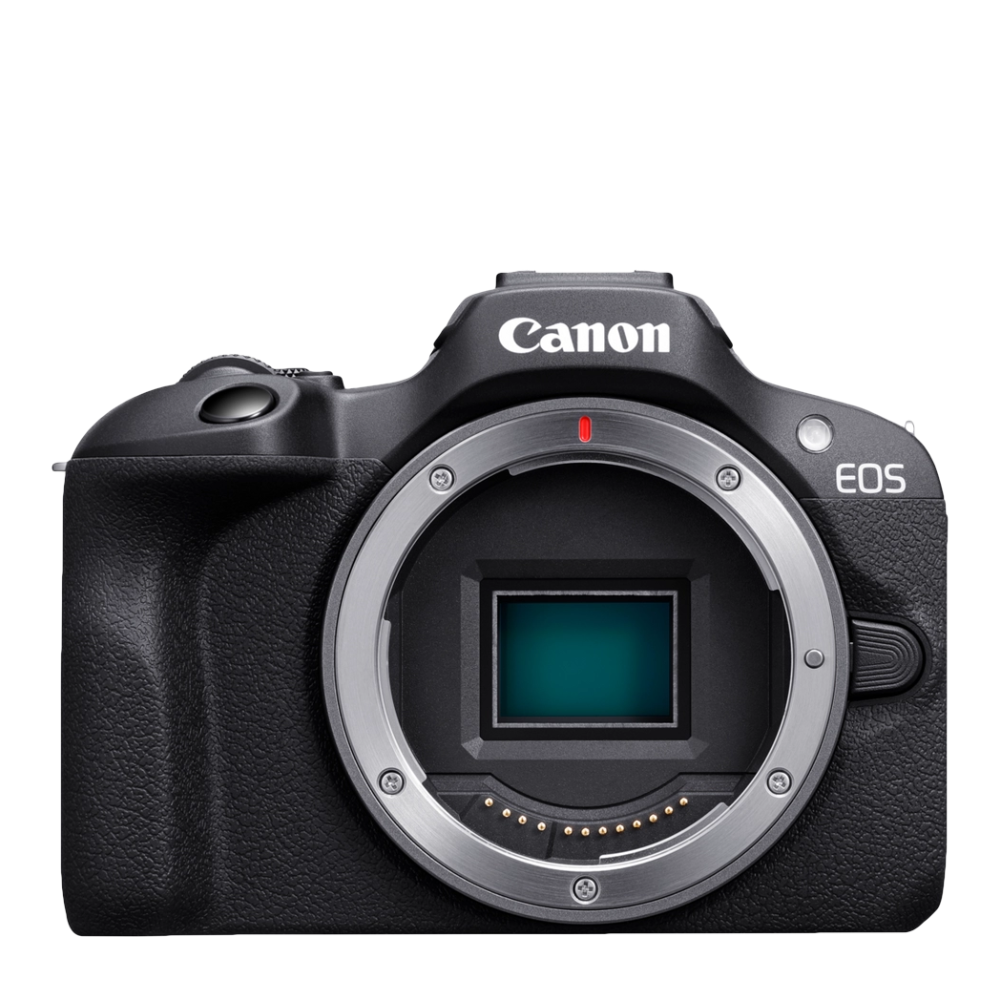
Best for improvers
If your youngster is ready for their first proper camera, the Canon EOS R100 is a sensible option with small proportions and a low price.
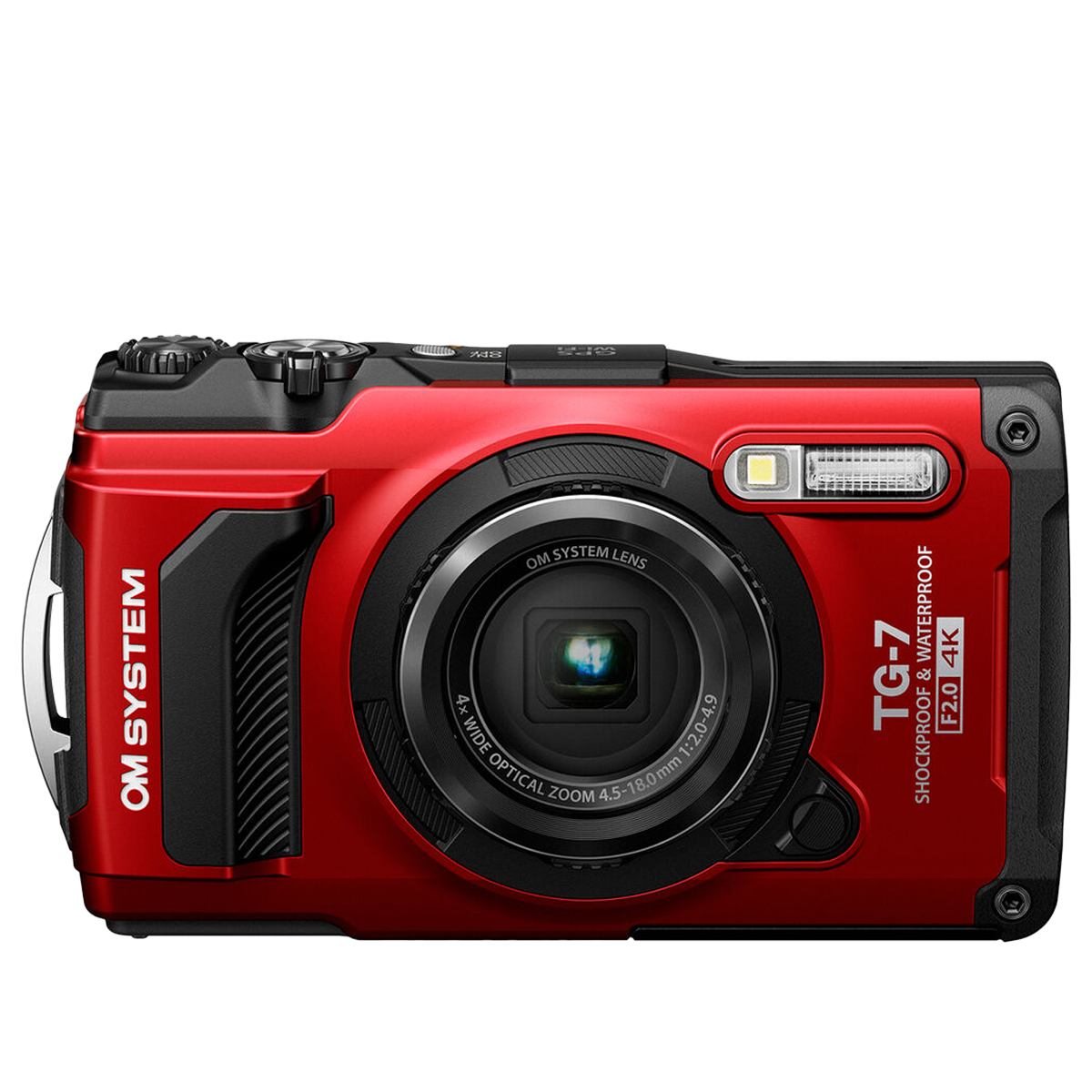
Best tough camera
A surprisingly versatile stills camera that's as rugged as they come, the Tough TG-7 lets young photographers shoot without worry.
Best by use-case
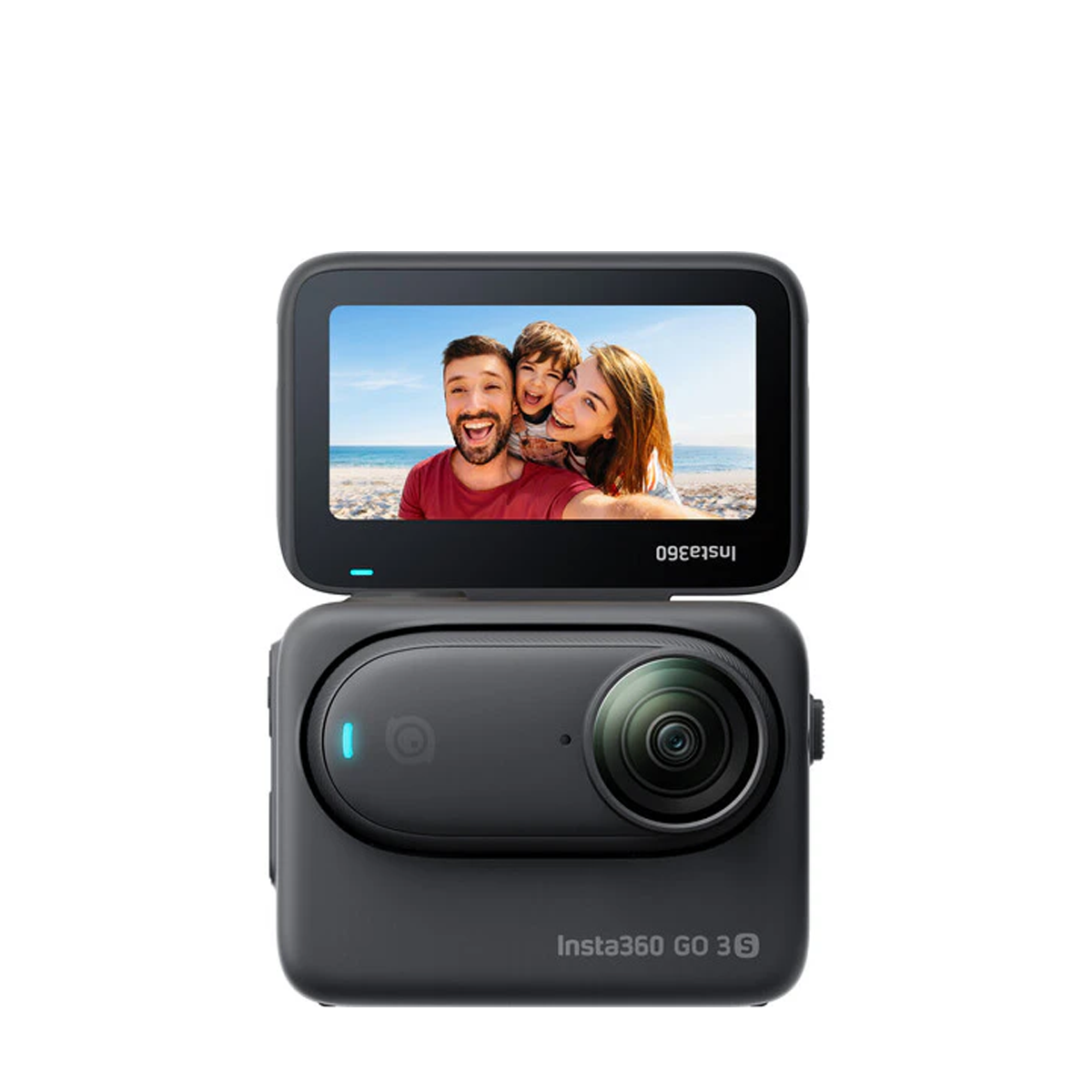
Best small video camera
A tiny 4K camera with magnetic mounting and a flip-screen Action Pod, the form factor of the Go 3S lets kids capture unique angles.
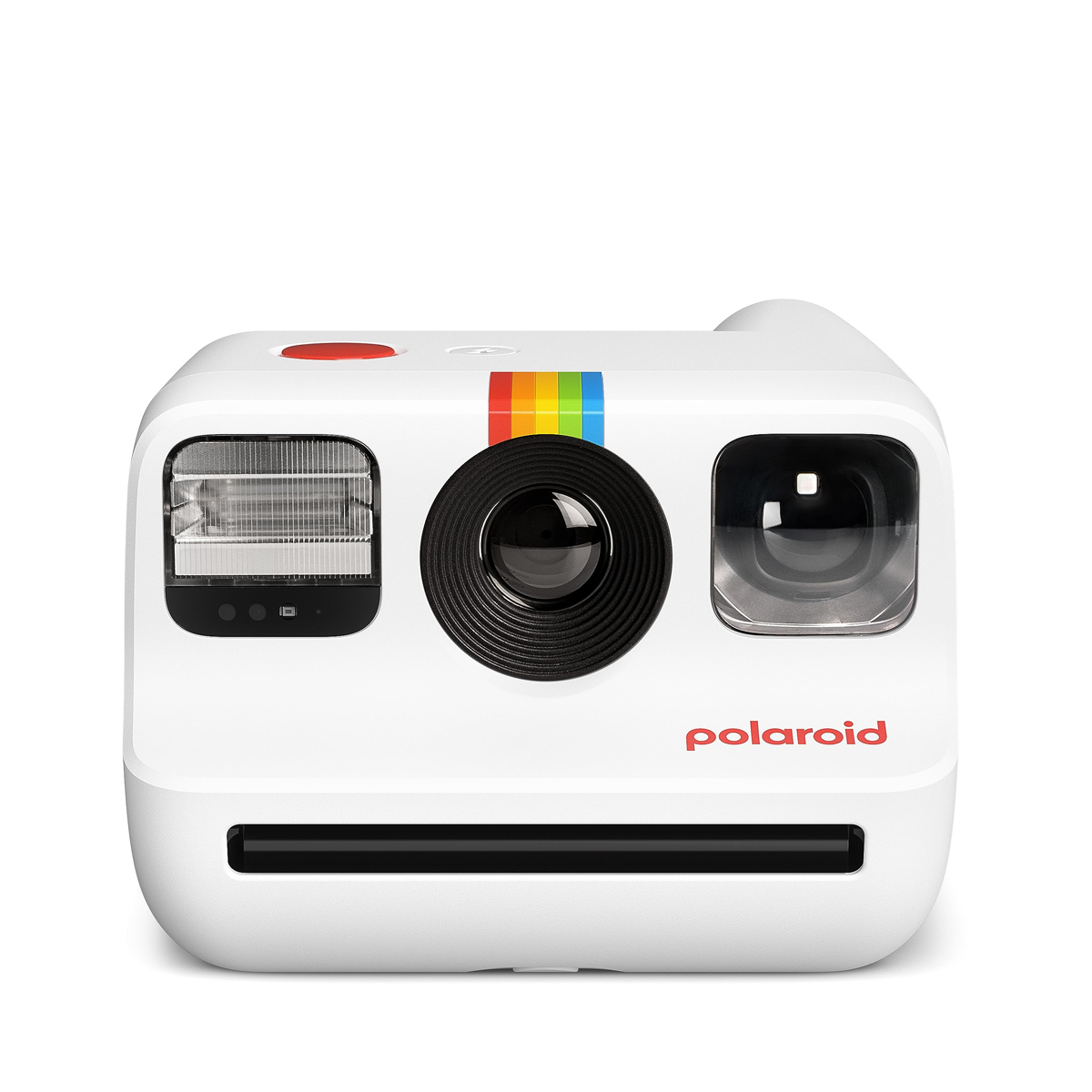
Best instant camera
A small, lightweight camera that's perfect for little hands, the Polaroid Go 2 captures all the easy fun of instant photography.
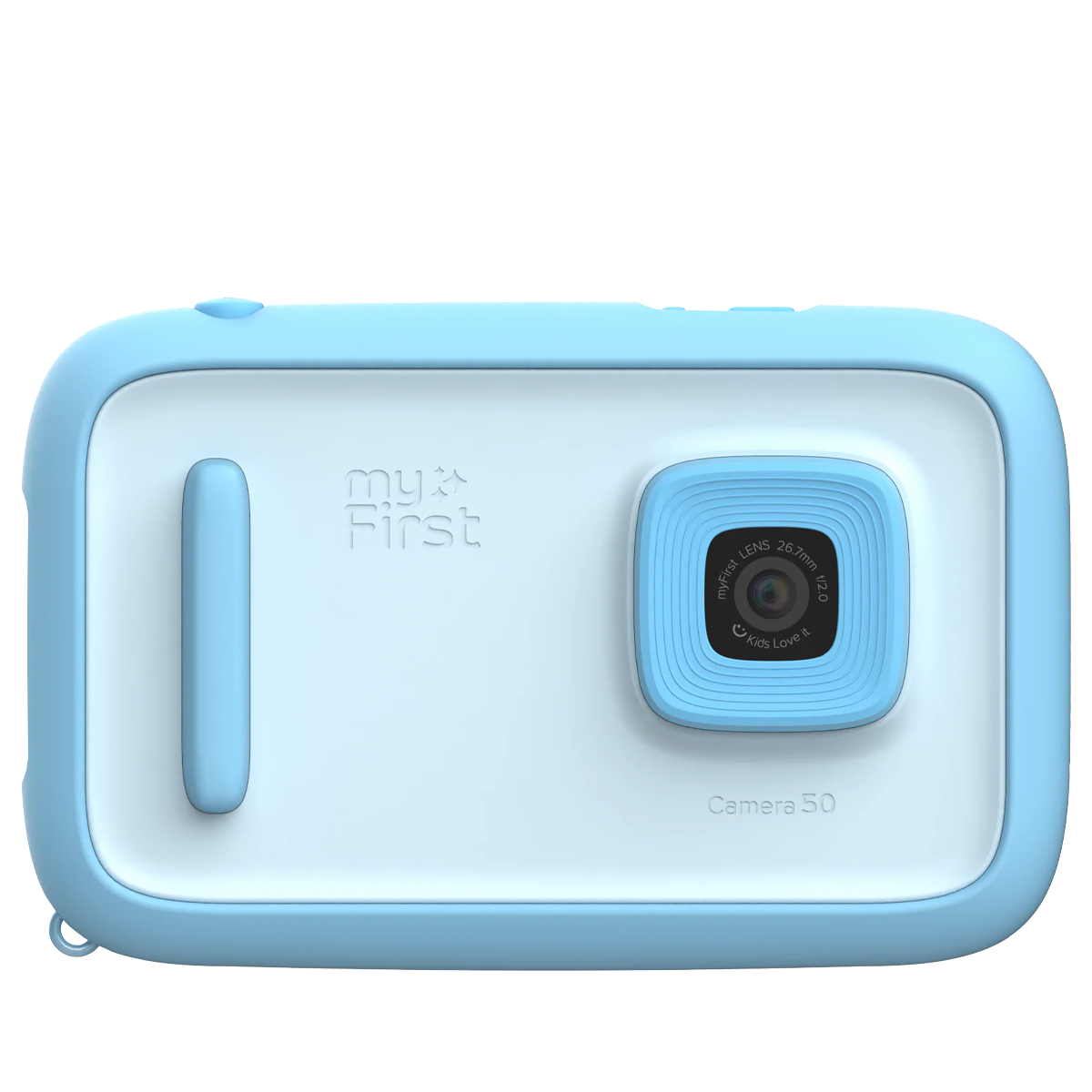
Best parental controls
A tiny tablet with two cameras and a simple touchscreen interface, the Camera 50 has basic editing tools and options for sharing with friends.
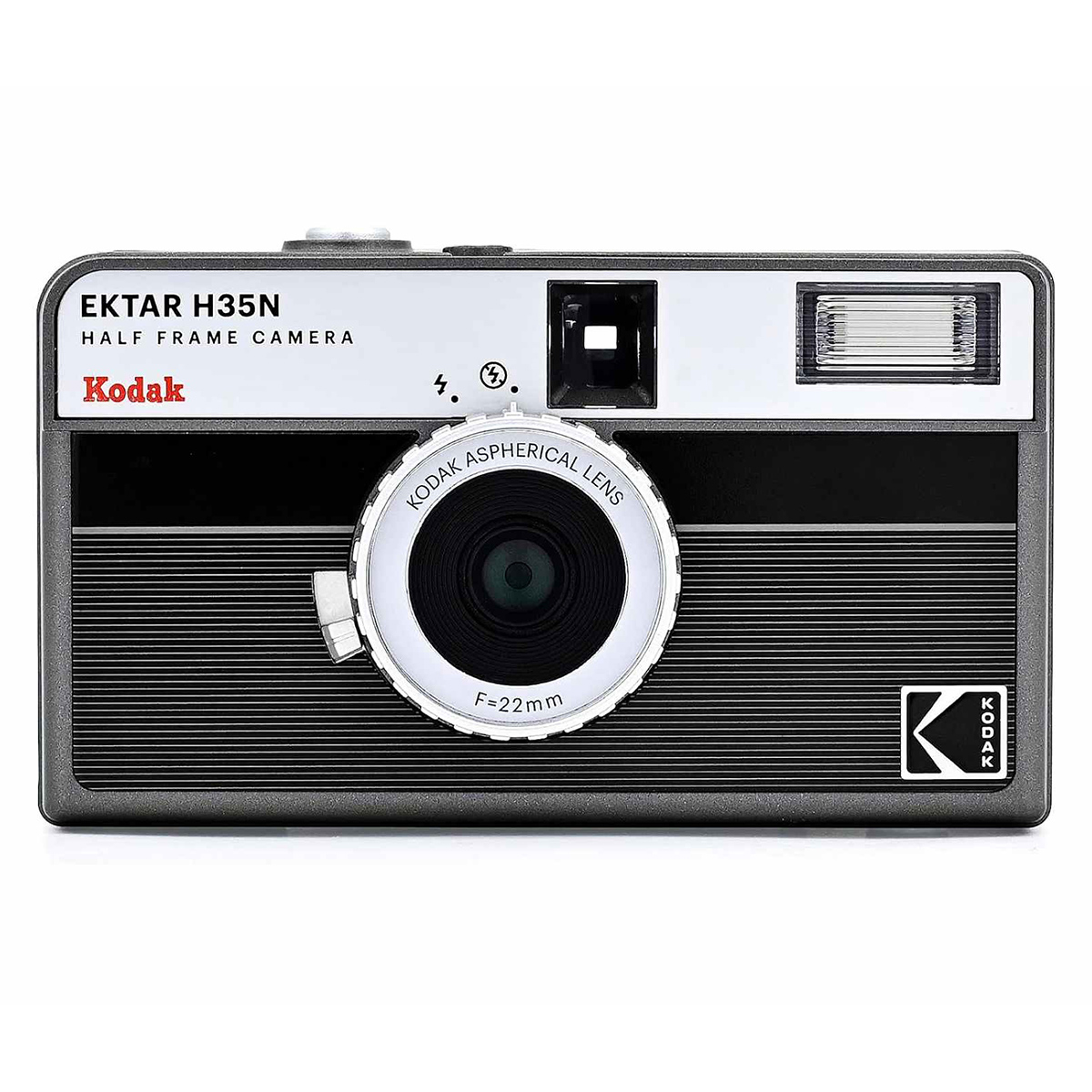
Best film camera
This cheap half-frame camera is the perfect option if you want your kids to learn the joy of (and master the patience for) analog photography.
Why you can trust my judgement
I and my team have several decades of experience reviewing cameras under our belts, and ensure we test every kids camera that comes across our desks rigorously, and in real-world conditions. That means taking the cameras out on several trips, shooting dozens of photos (and videos if applicable) with them and testing out battery life and build quality.
☑️ 100s of cameras reviewed
☑️ 15 years of product testing
☑️ Over 16,000 products reviewed in total
☑️ Nearly 200,000 hours testing tech
We look at a number of factors when picking a camera for kids. There’s how it operates, how tough it is (and therefore suitable for the accident prone), how expensive it is, and the type of pictures it’s capable of taking.
Some of the best cameras for kids have been specifically designed with young users in mind. That means they often feature bright, tactile physical features which allow kids to get hands-on. Models such as the myFirst Camera 3 are ideal for users like this. On the other hand, cameras such as the Olympus TG-6 are both waterproof and tough, making them well-suited for youngsters who want to take a camera with them on all their adventures, and have it live to tell the tale!
All the cameras that have made it into my list of best cameras for kids have been included because they offer a great experience for younger users. I've included a diverse list of options here, including a DIY camera that kids can build themselves to more advanced options for aspiring vloggers and travel photographers. I've generally kept away from ‘toy’ cameras, which I have found tend to be more of a gimmick than anything else.
Meet the team
My team of reviewers has amassed many years of camera experience, testing all of the latest and greatest cameras in the last 20 years. That expertise extends to the best cameras for kids.
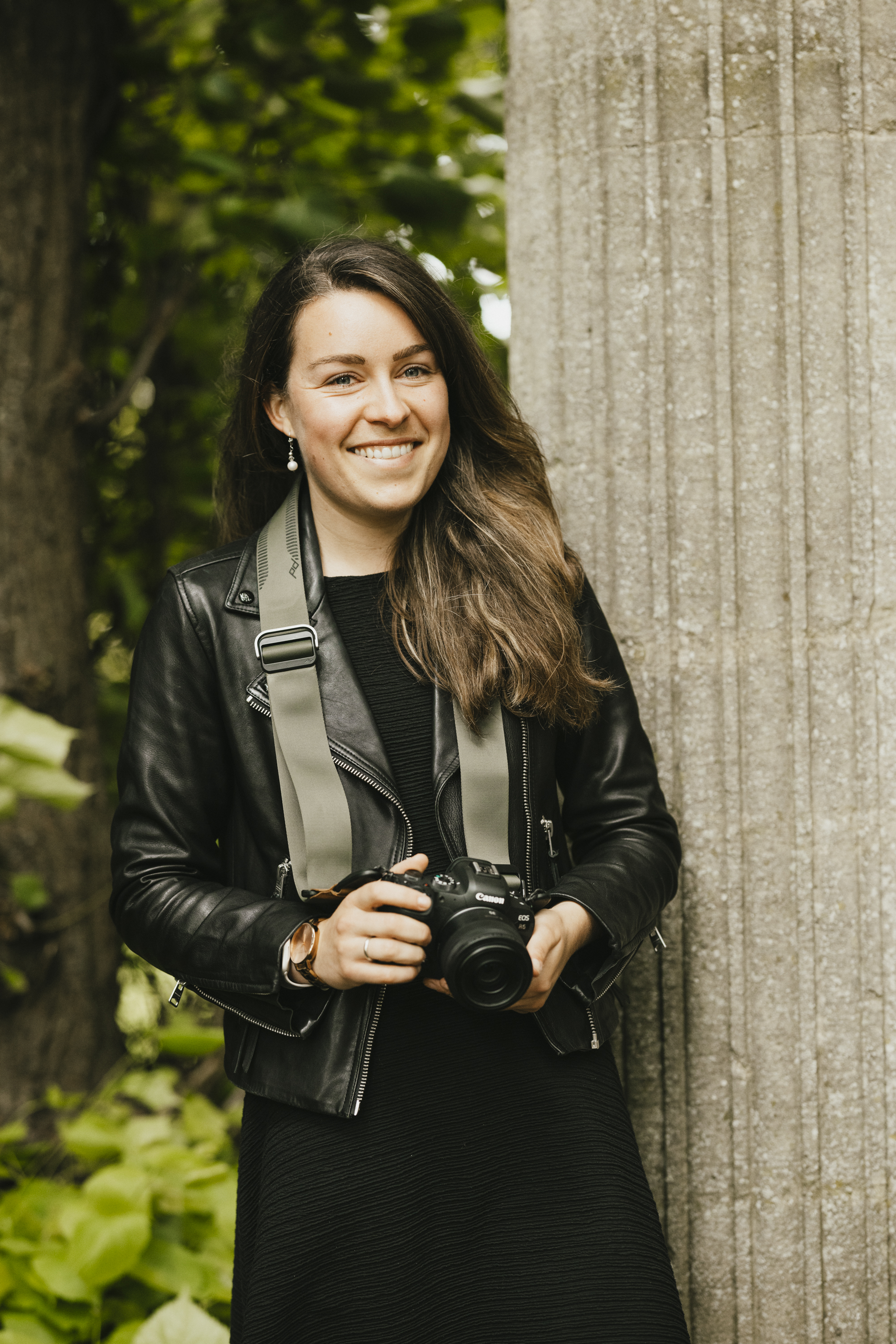
Lauren Scott is an experienced journalist and freelance photographer based in Bath, UK. She's been in the industry for over ten years; as the former Managing Editor of our sister site Digital Camera World.

Mark is TechRadar's Senior news editor and has been a technology journalist since 2004. Formerly Trusted Reviews and TechRadar's cameras editor, Mark has tested cameras over many years from all of the leading brands.

James Abbott is a professional photographer and freelance photography journalist. He contributes articles about photography, cameras and drones to a wide range of magazines and websites where he applies a wealth of experience to testing the latest photographic tech.

Paul is a digital expert. In the 20 years since he graduated with a first-class honours degree in Computer Science, Paul has been actively involved in a variety of different tech and creative industries that make him the go-to guy for reviews, opinion pieces, and featured articles. You'll also find his writing in other places, including Creative Bloq, Digital Camera World, and 3D World Magazine.
The best cameras for kids in 2025
Why you can trust TechRadar
Below you'll find full write-ups for each of the best cameras for kids in our list. We've tested each one extensively, so you can be sure that our recommendations can be trusted.
The best cheap camera for kids

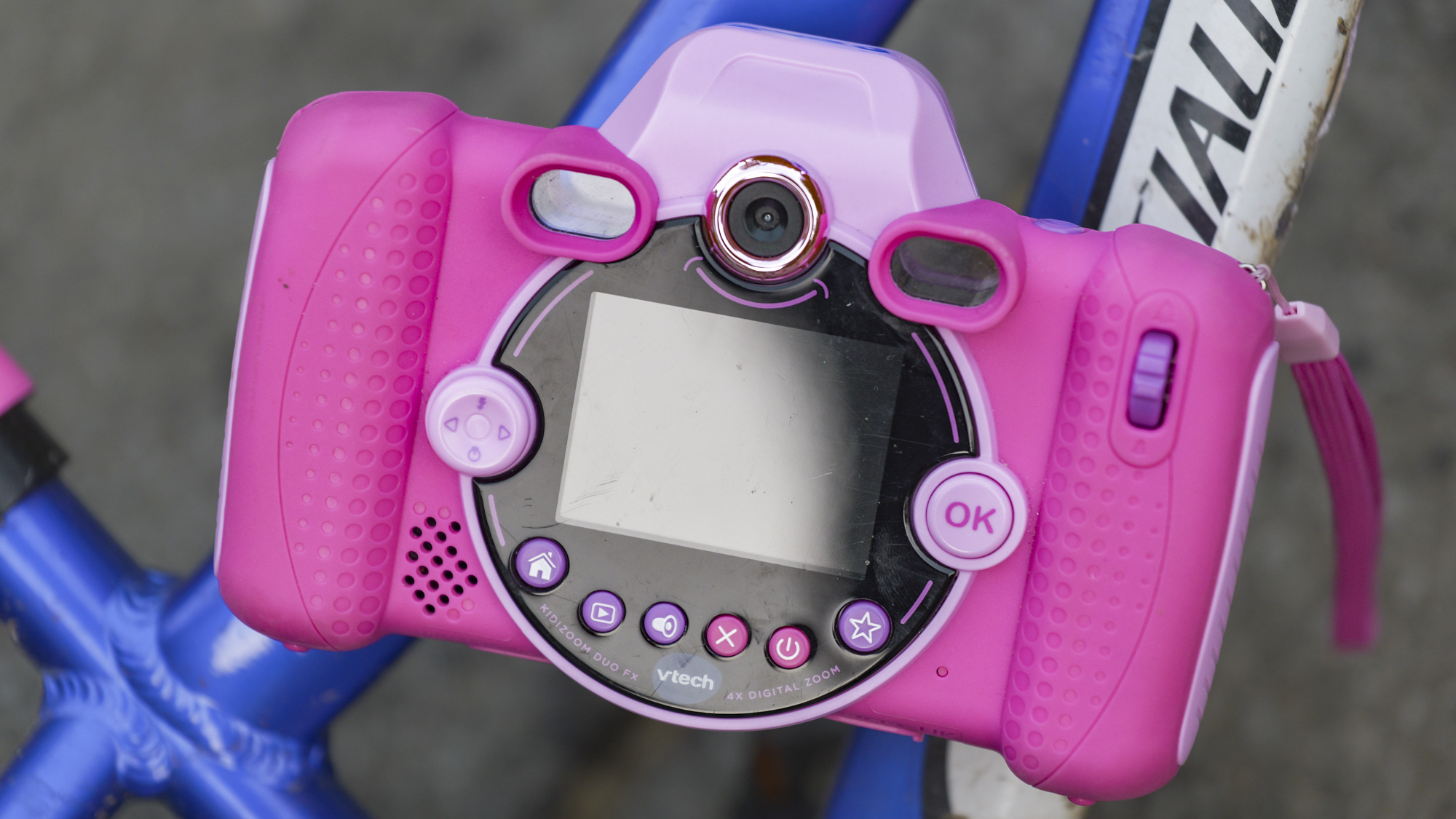
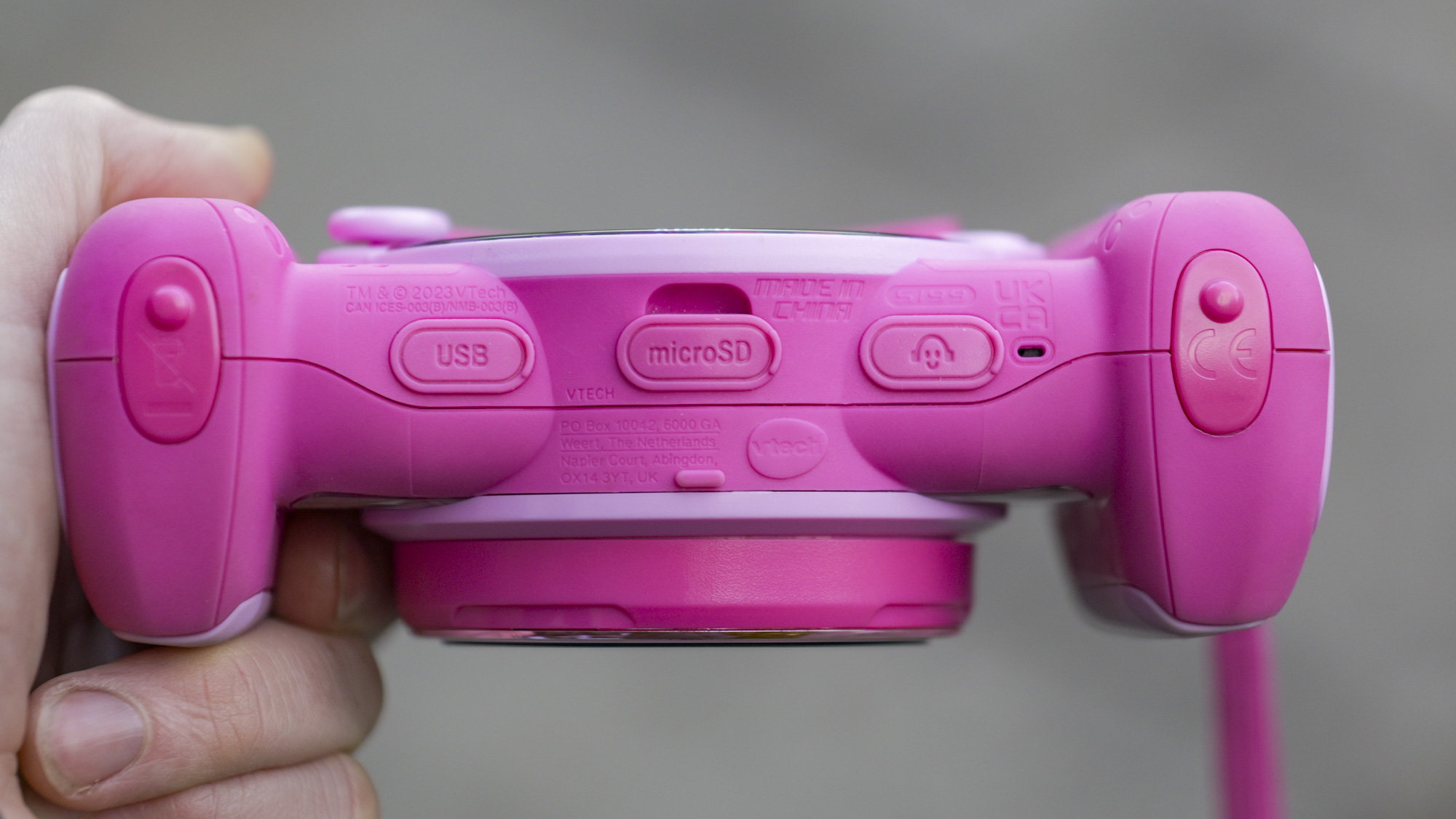
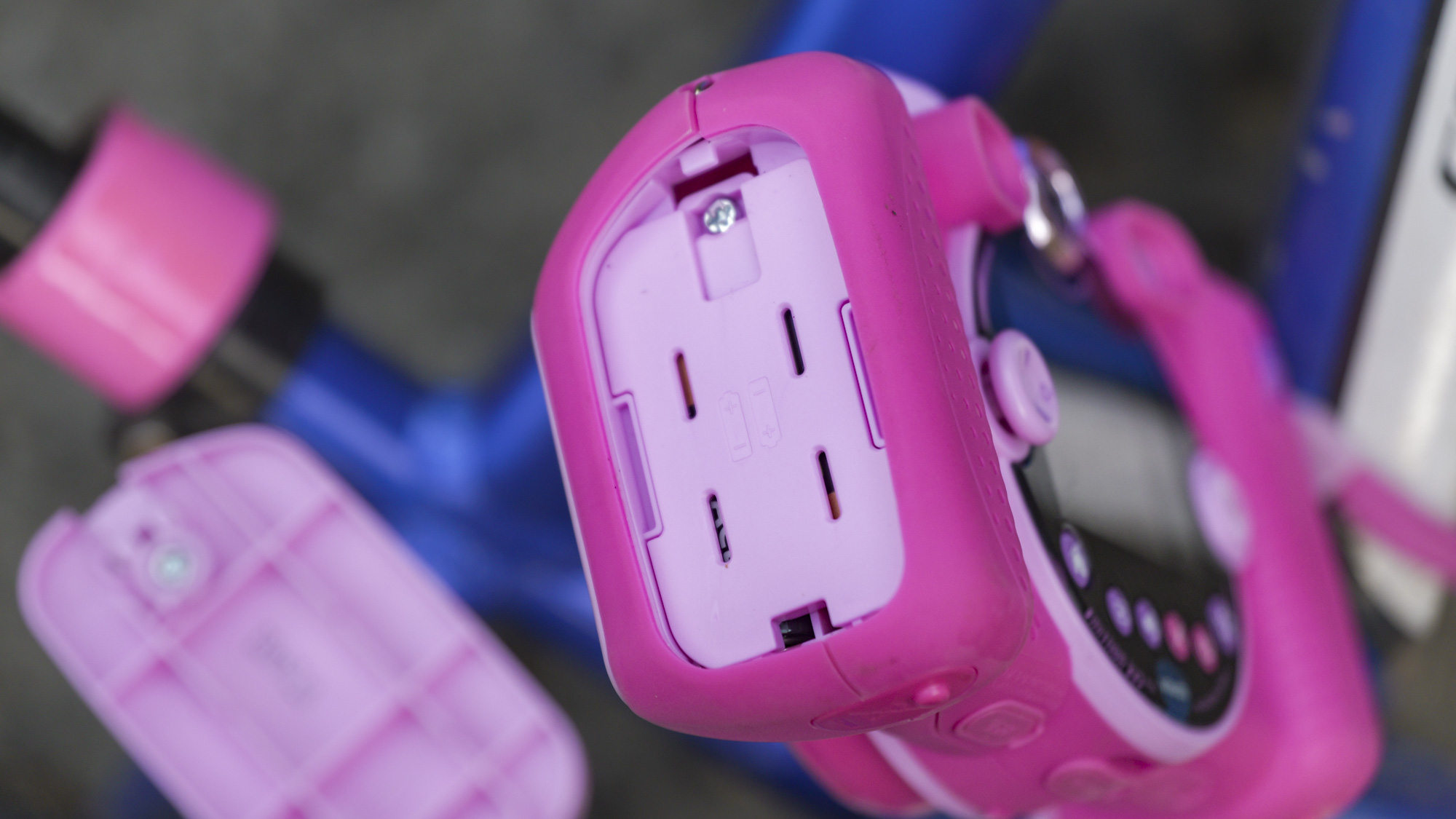
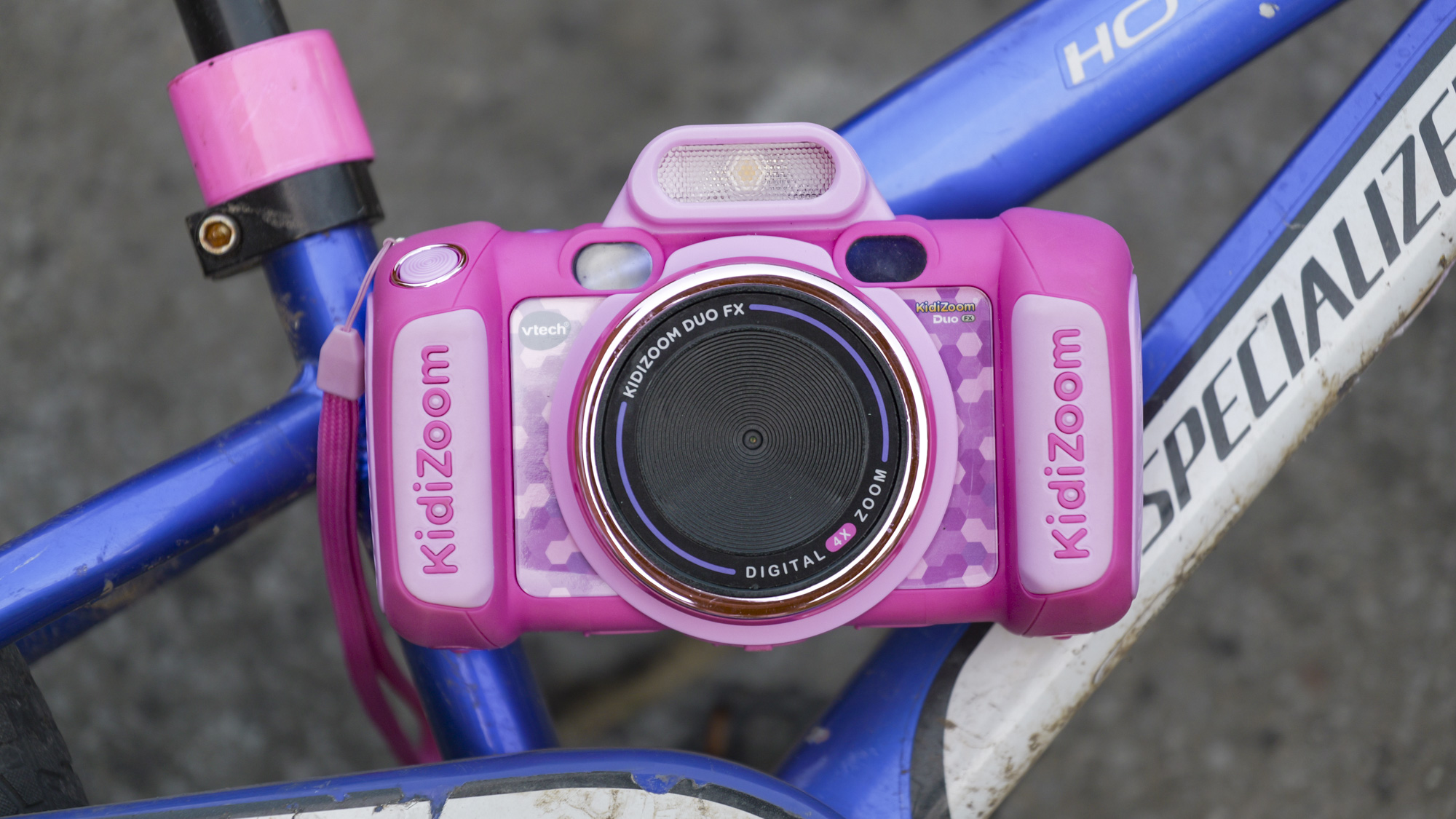
Specifications
Reasons to buy
Reasons to avoid
VTech KidiZoom Duo sample images





✅ You want a well-built kids camera: Big, bold and easy to hold, the KidiZoom Duo FX is tough enough to survive plenty of knocks and drops.
✅ You want an entertaining toy: With a voice recover, audio player and built-in games, the Duo FX is much more than just a camera.
❌ You want a simple camera: The Duo FX is easy to use, but its games and features risk distracting youngsters if the goal is photography.
❌ You want quality images: A soft lens and tiny sensor mean photo quality is uninspiring. Video resolution is even more basic at just 640p.
Purpose-built for kids, the VTech KidiZoom Duo FX is perfect for small hands. In testing, we found that the double grips make it easy for youngsters to hold, while its rugged casing can happily shake off knocks, drops and tumbles. Not only does the Duo FX come cheap, but the sturdy build means it should last a long time too. We also found that its generous set of features will keep kids interested, although not always in taking photos: the Duo FX has a lot of distractions, including on-board games and a voice recorder.
We commented in our review that photography can feel like a bit of an afterthought. Image quality is very underwhelming, with a soft lens and tiny sensor contributing to sub-par stills, especially in high-contrast scenes. Where the Duo FX excels is with creative modes, which include panorama, slideshow and animation options. All of which make it camera that you can safely leave in the hands of a child, knowing they’ll be entertained. We think it’s the best kids camera you can buy for the money. We just wish it had rechargeable batteries.
Read our in-depth VTech KidiZoom Duo review
The best camera for young improvers
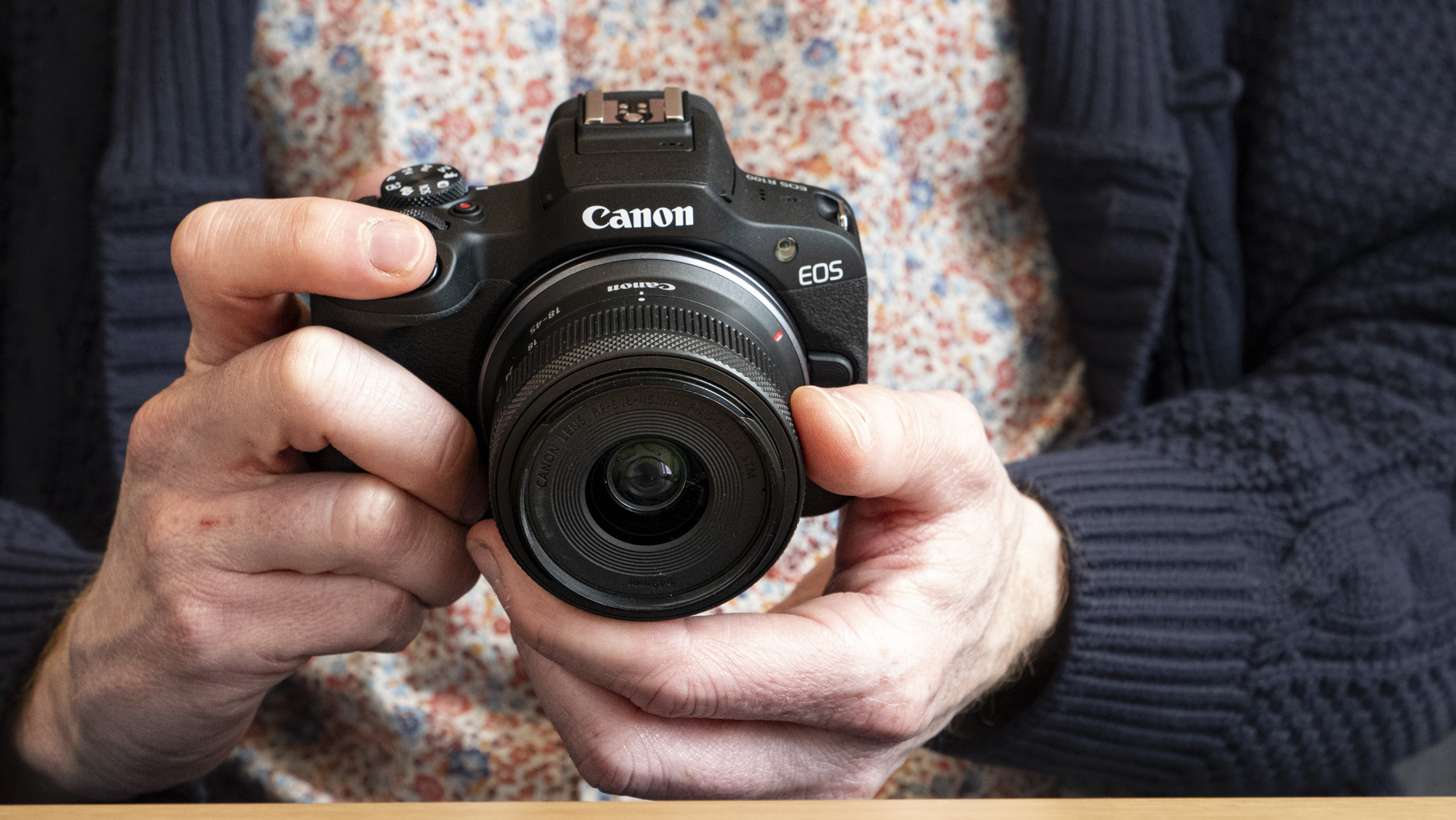
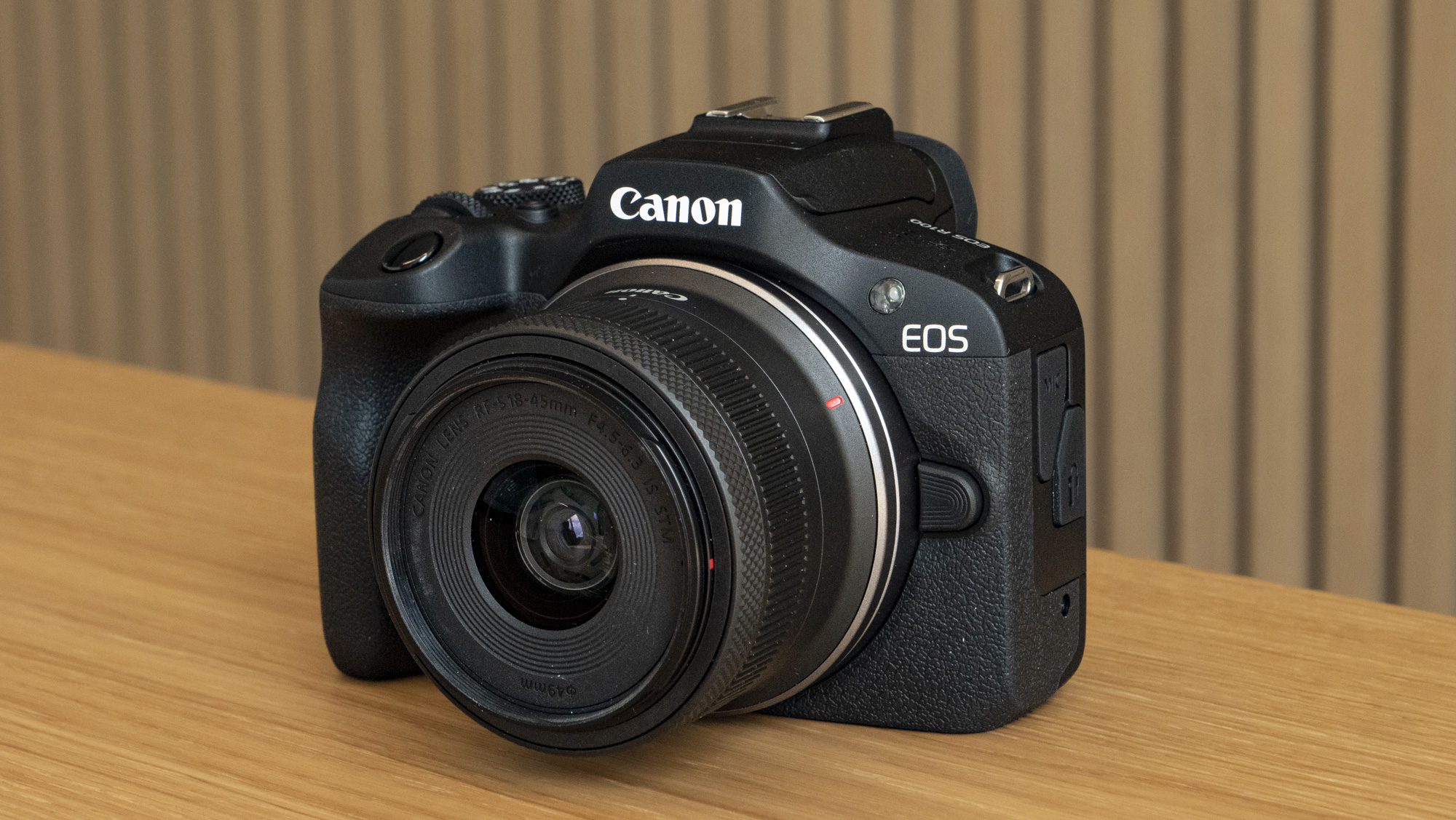
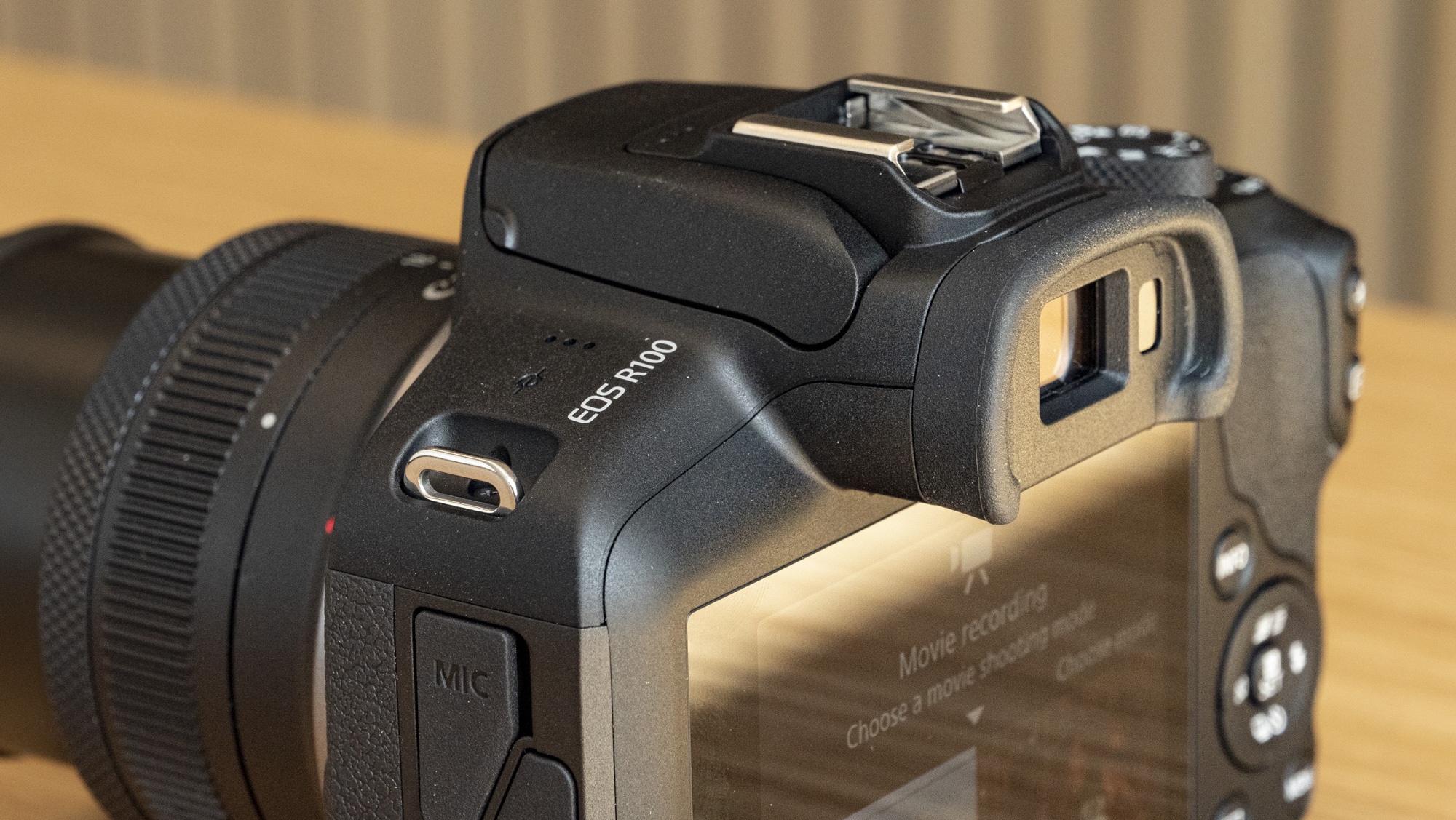
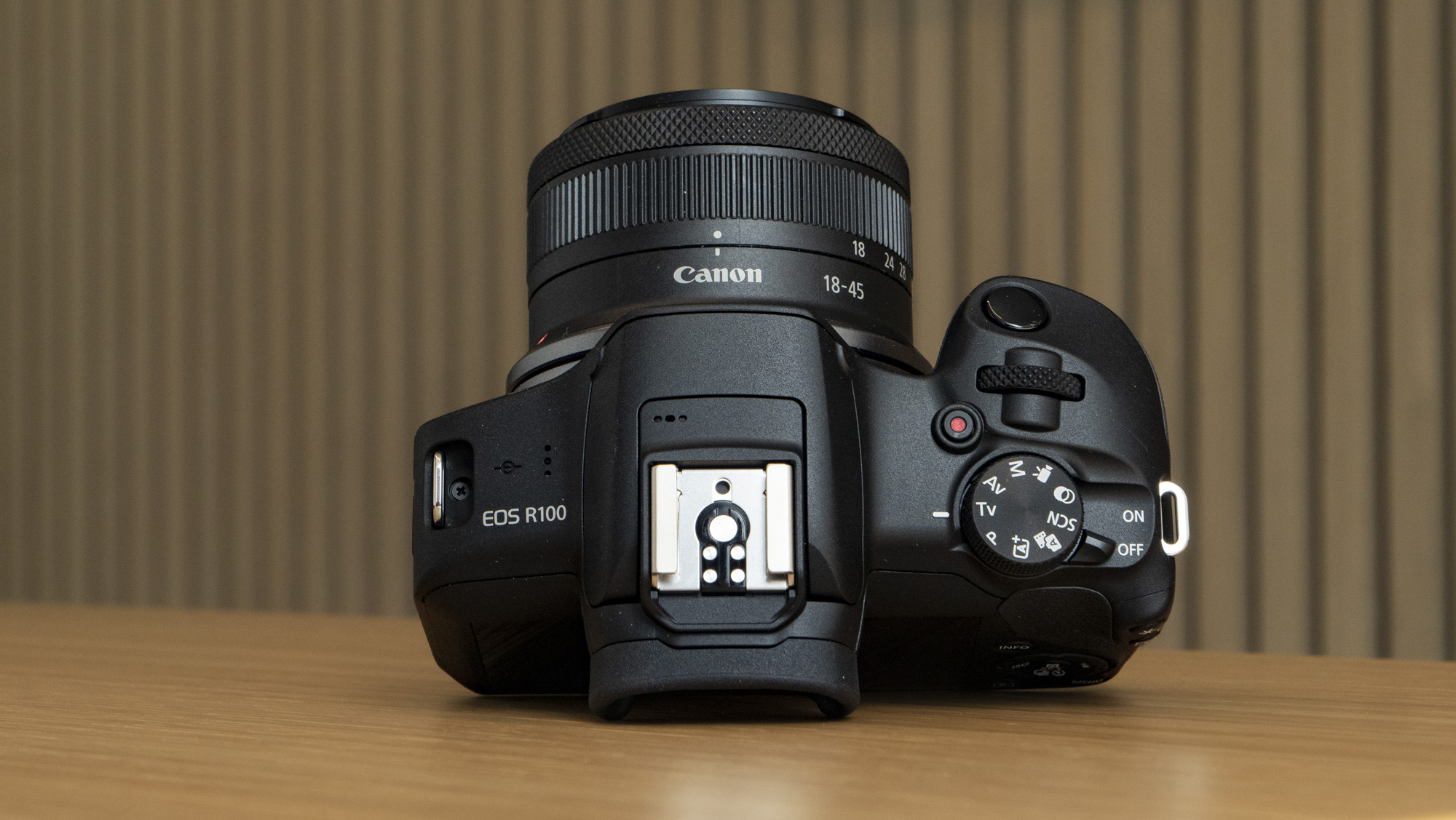
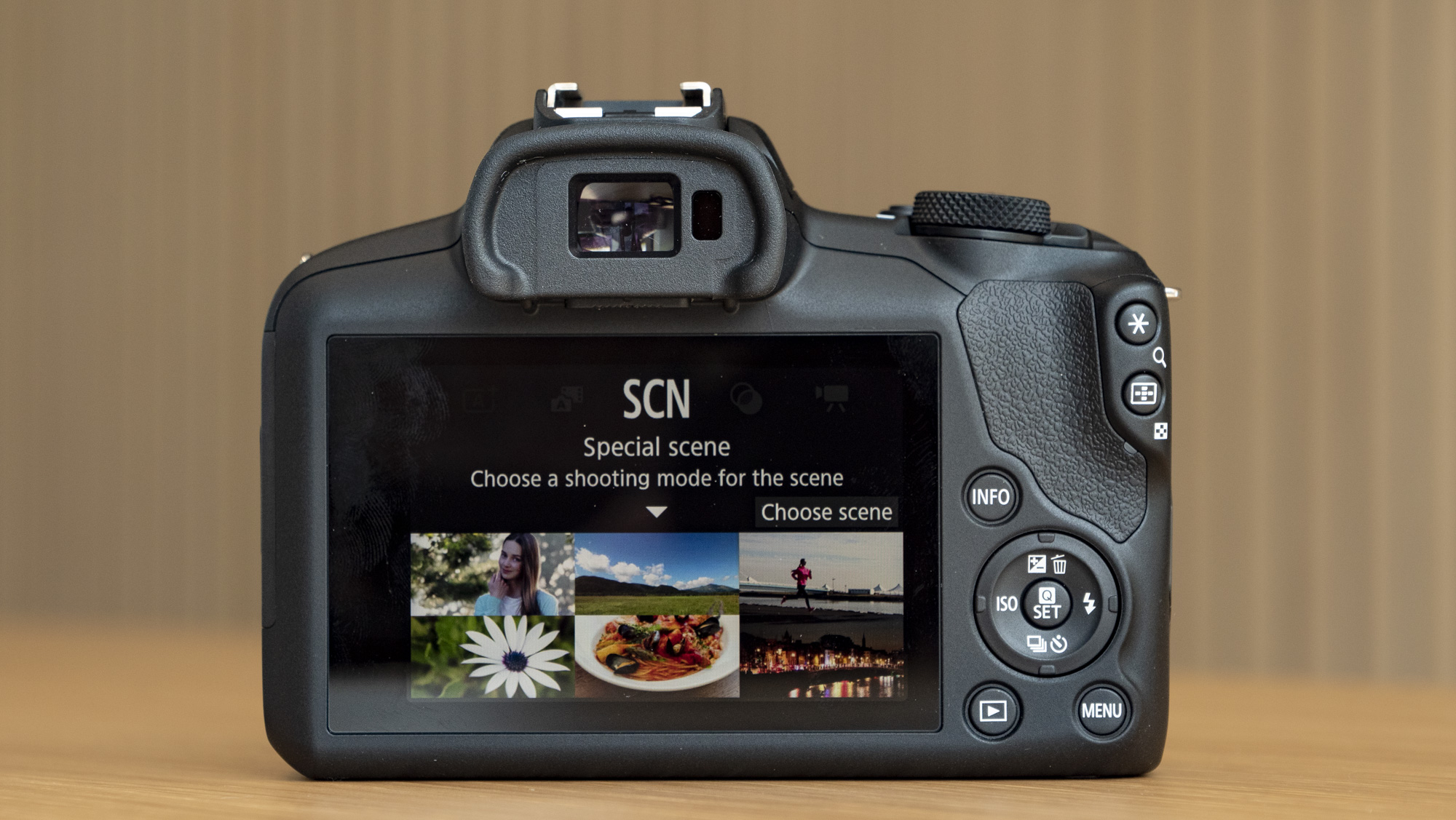
Specifications
Reasons to buy
Reasons to avoid
Canon EOS R100 sample images
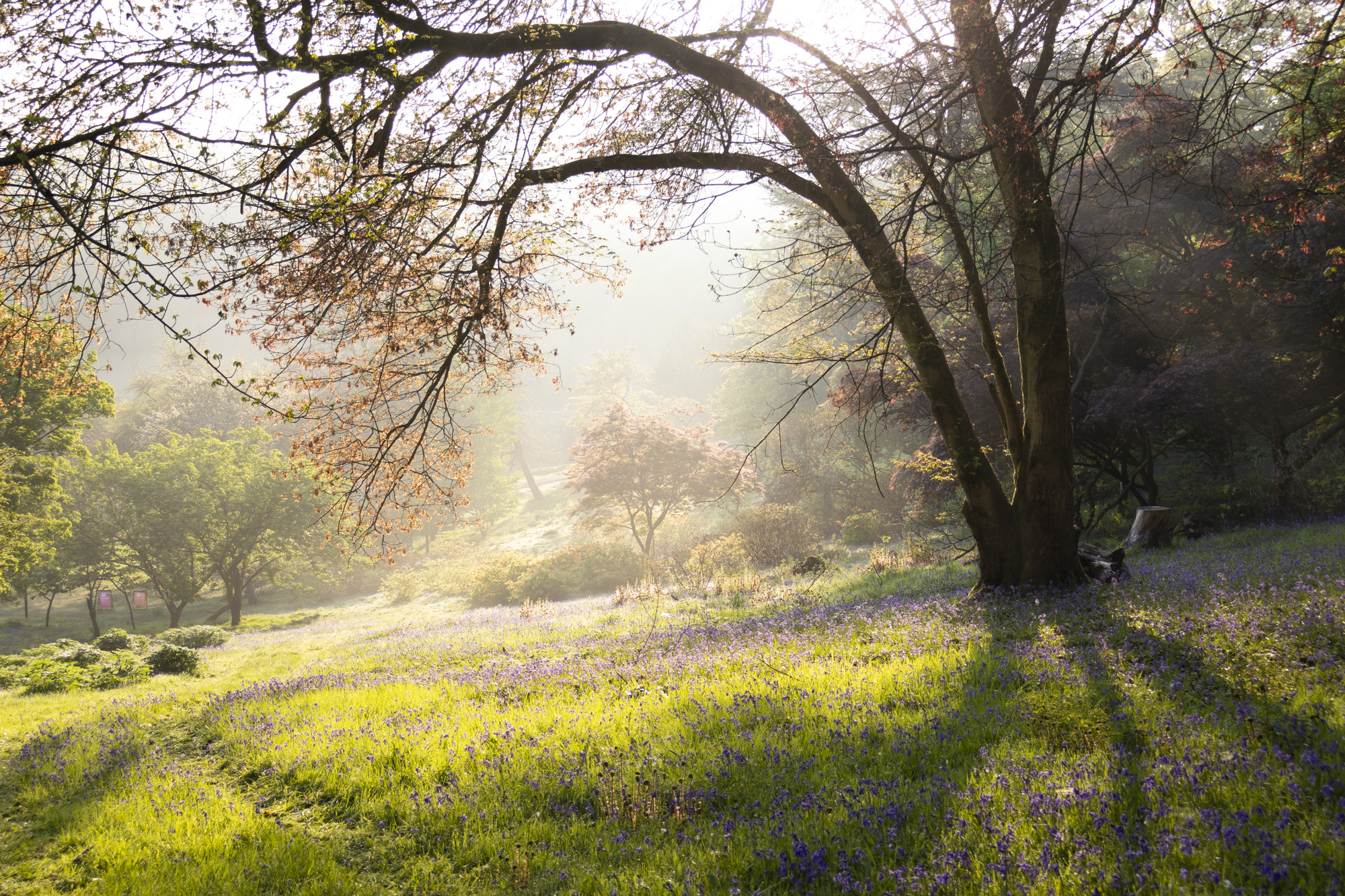
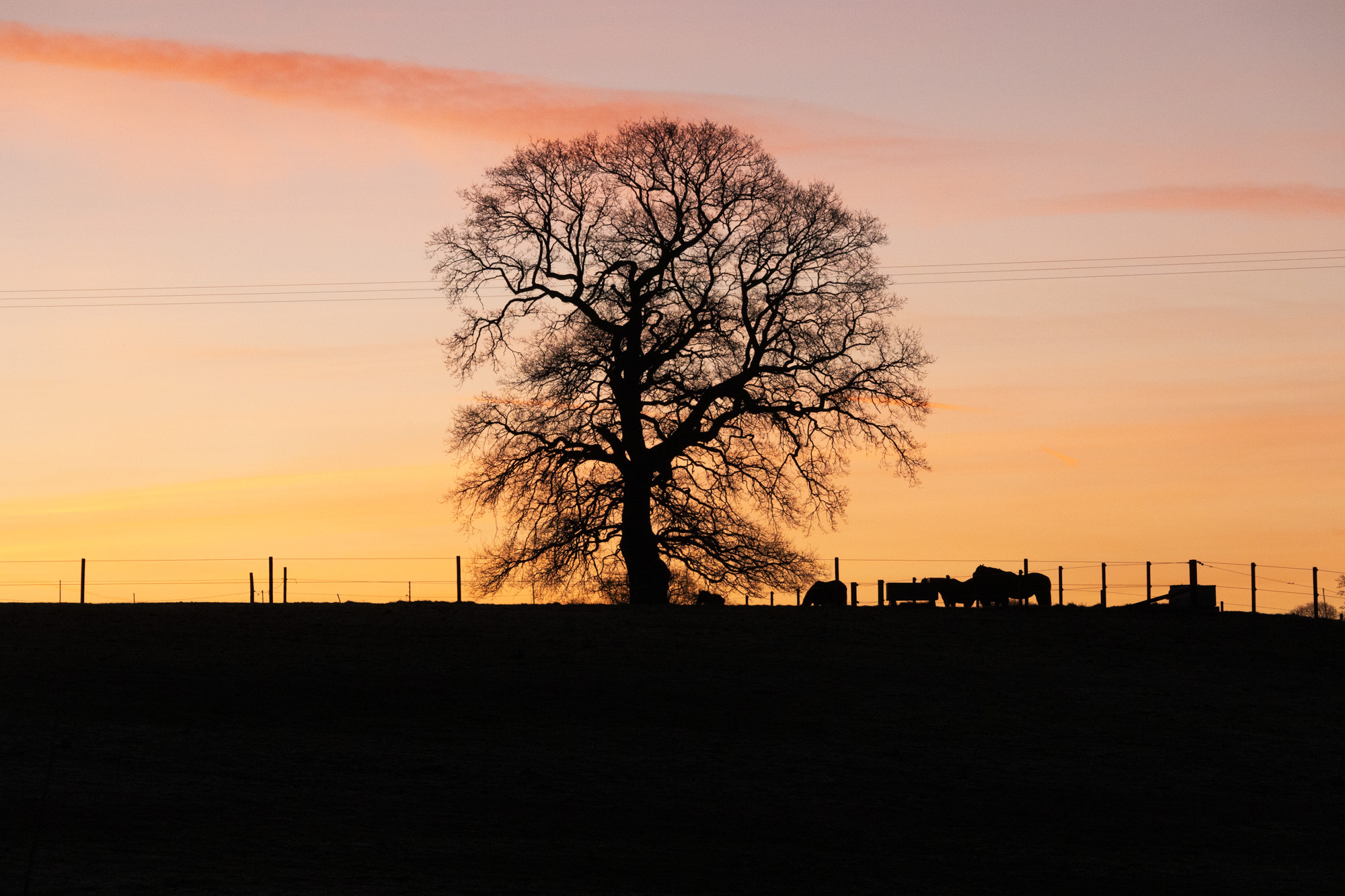
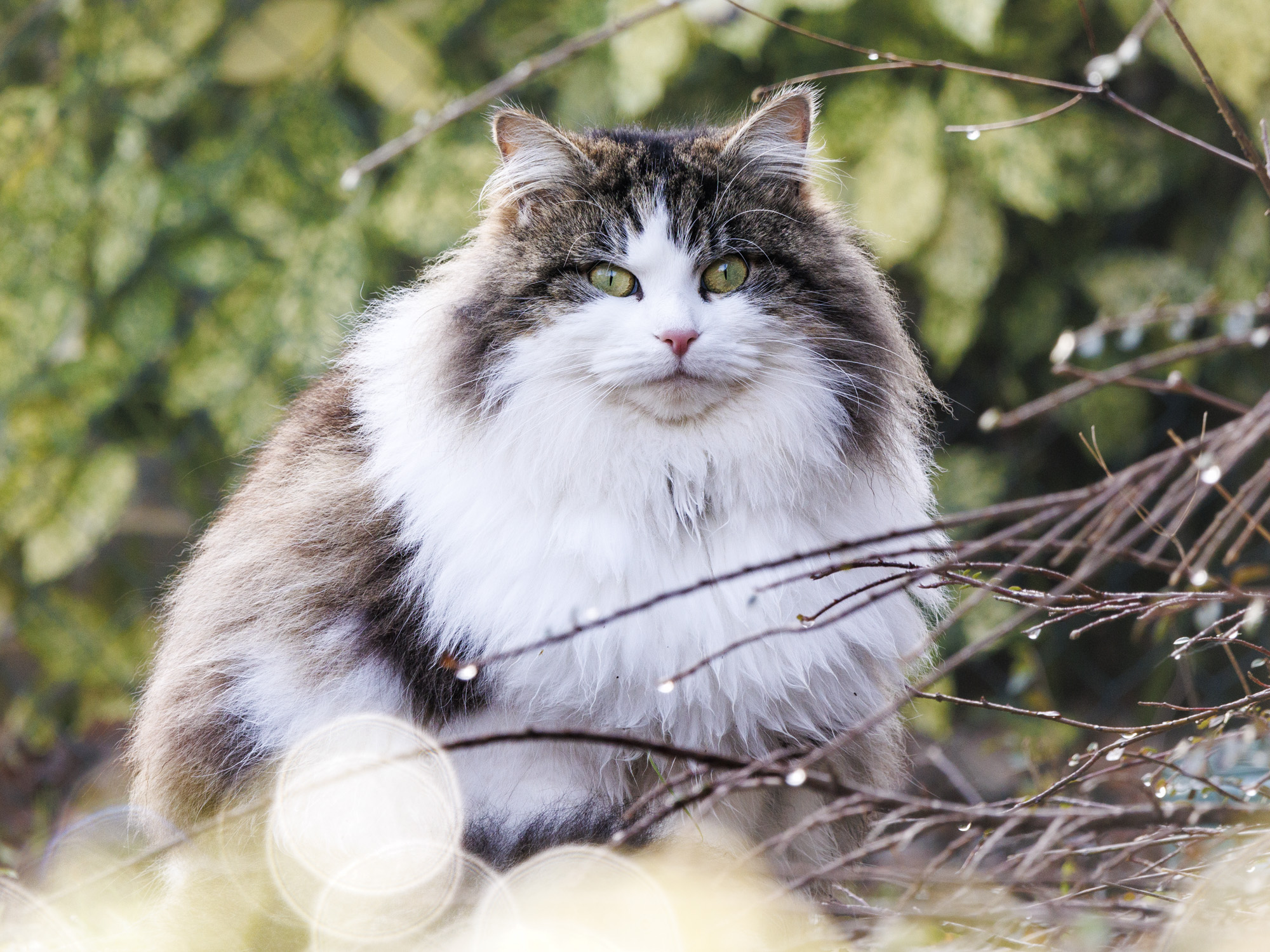
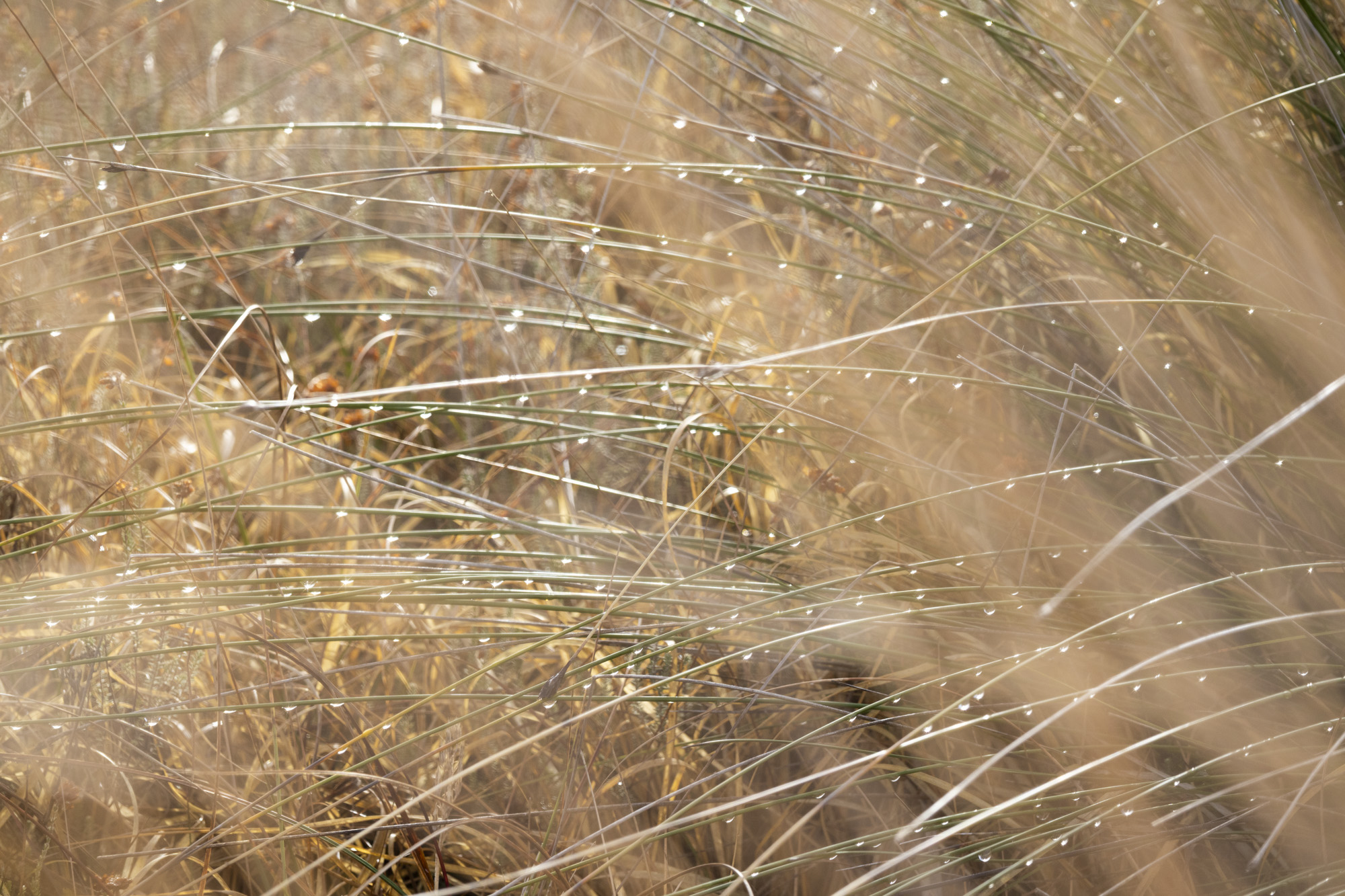
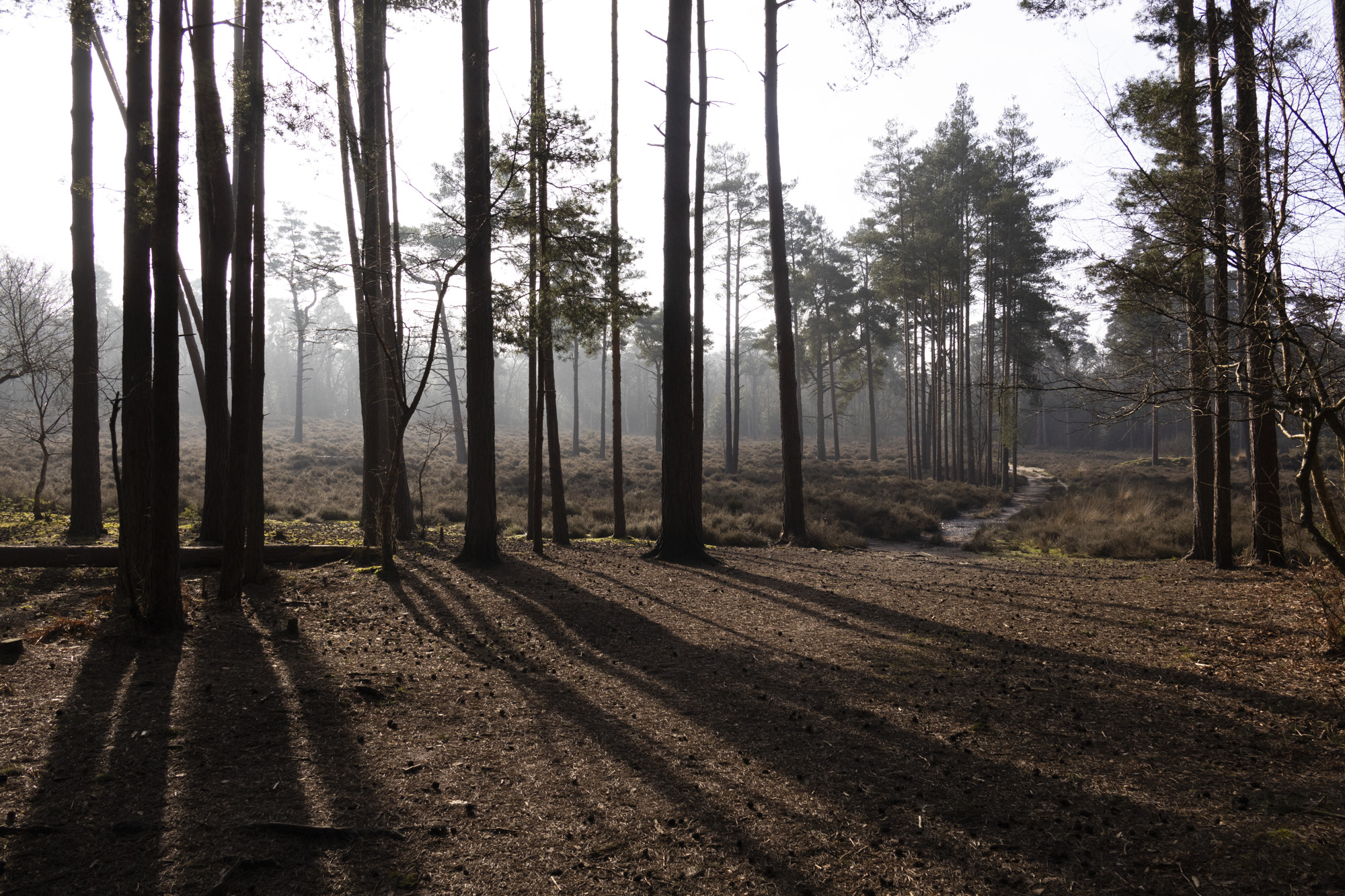
✅ Your child wants to learn with proper camera: A real mirrorless camera with DSLR-style handling and ideal dimensions for smaller hands, the R100 is sensible first camera.
✅ You want something cheap and simple: Straightforward in every respect, the Canon EOS R100 is ideal for learning the basics of photography on a tight budget.
❌ You want a touchscreen: The Canon EOS R100 sacrifices several features to keep costs down, including a touchscreen interface. Other specs are dated, too.
❌ You want a tough camera: Build quality here is basic to keep costs down. You’re not getting any premium features, which means no weather sealing.
If your child is ready to step up from a smartphone to their first proper camera, we think the Canon EOS R100 is the best option. An entry-level mirrorless model built on the cheap, it’s basic in every respect: the construction materials come from the bargain bin, video specs are dated and you don’t get modern niceties like a touchscreen. Rather than drawbacks, we found in our review that those limitations count in the R100’s favor for young beginners. Its simplicity makes it foolproof.
A small form factor and comfortable, DSLR-style grip make the R100 a great fit for smaller hands, while we found that the simple interface contributes to an uncluttered shooting experience. Its photography credentials are decent, too: unlike many kids cameras, the EOS R100 can actually take fantastic photos. Stills are rich in detail and benefit from lovely, natural color profiles. You also get the flexibility to change lenses, although the selection is a little limited. As long as you keep it away from dust and water, we think the Canon EOS R100 offers superb value as a starter camera.
Read our in-depth Canon EOS R100 review
Best for rough and tumble kids
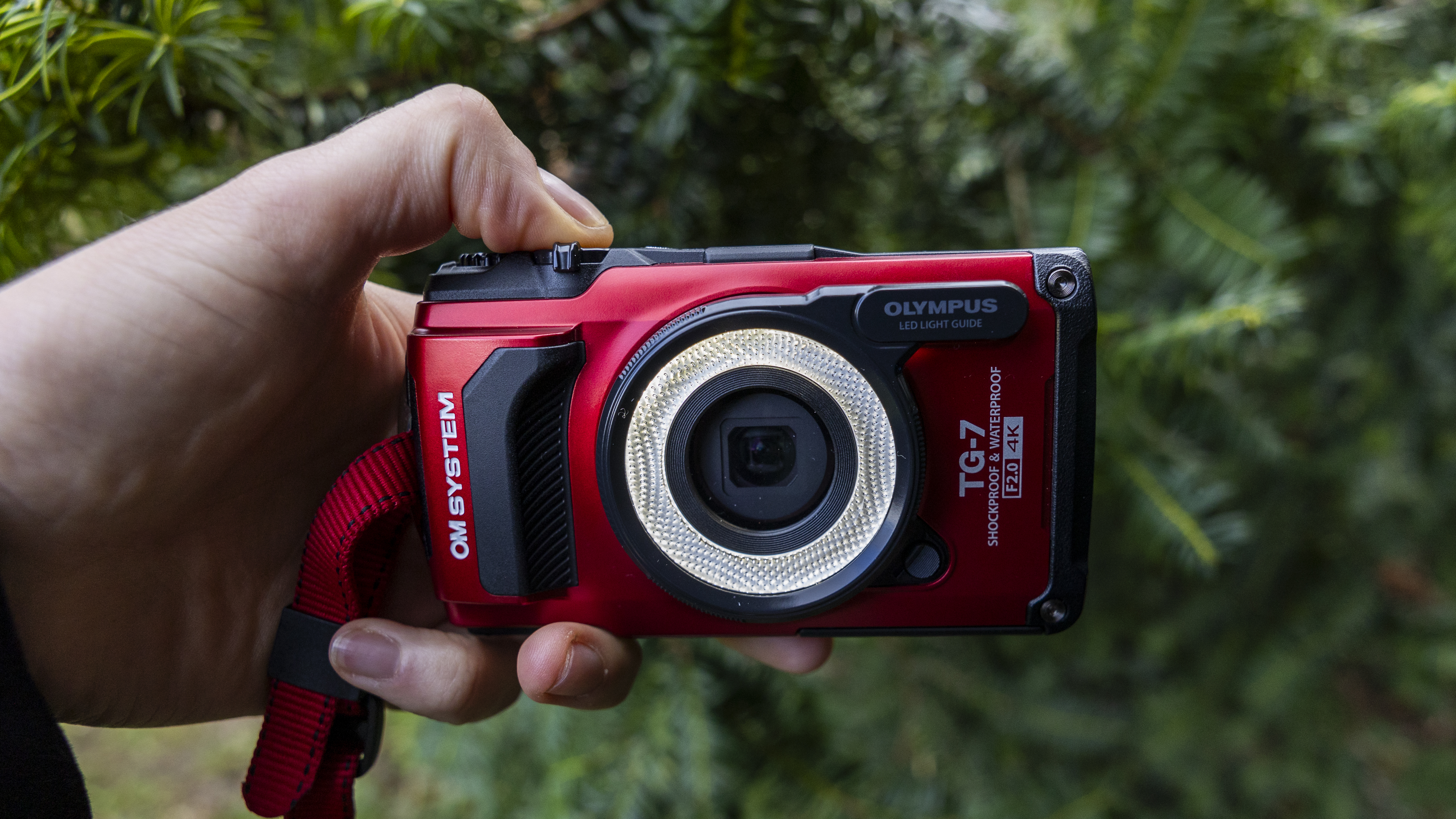

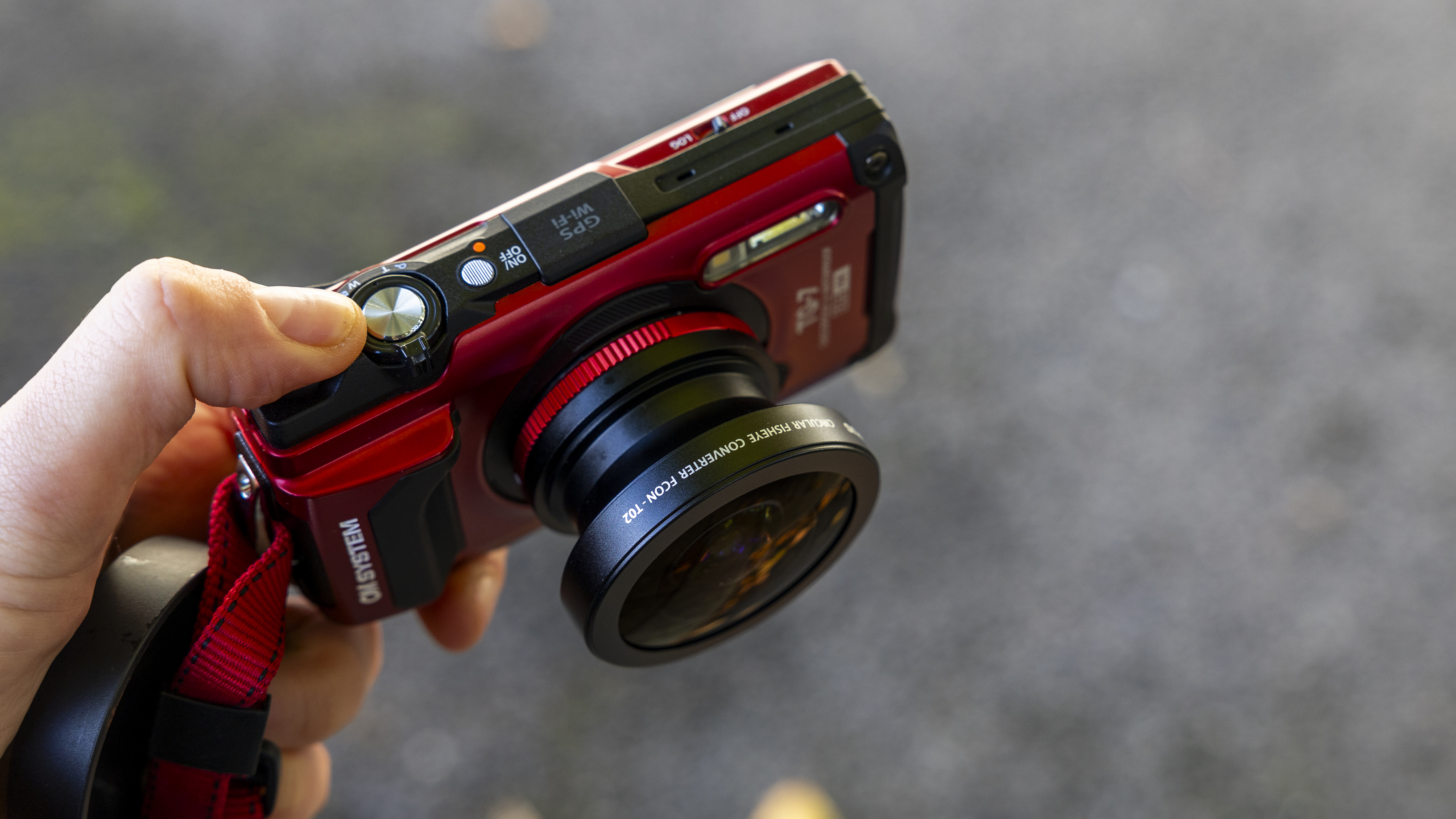
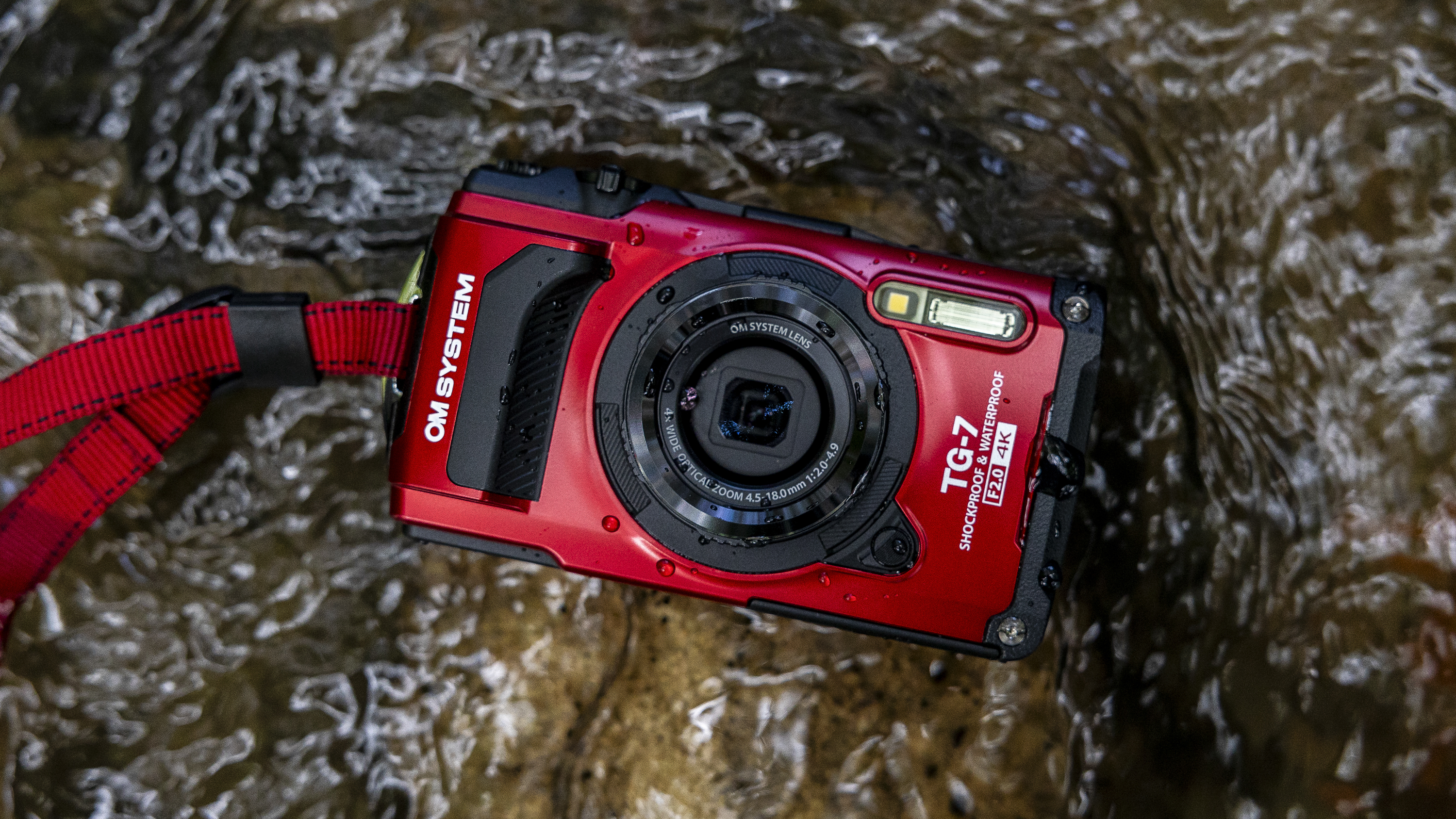
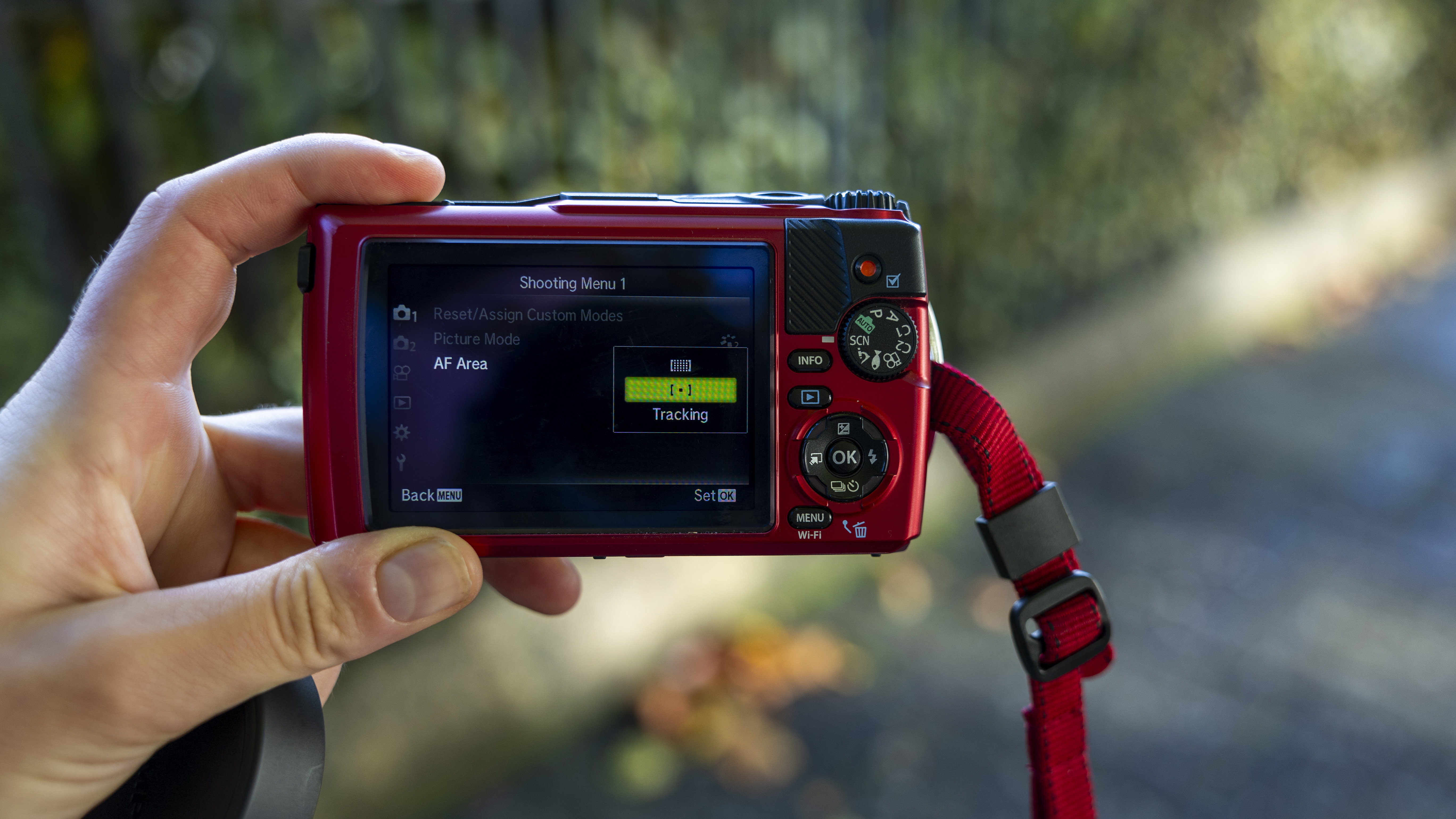
Specifications
Reasons to buy
Reasons to avoid
OM System Tough TG-7 sample images
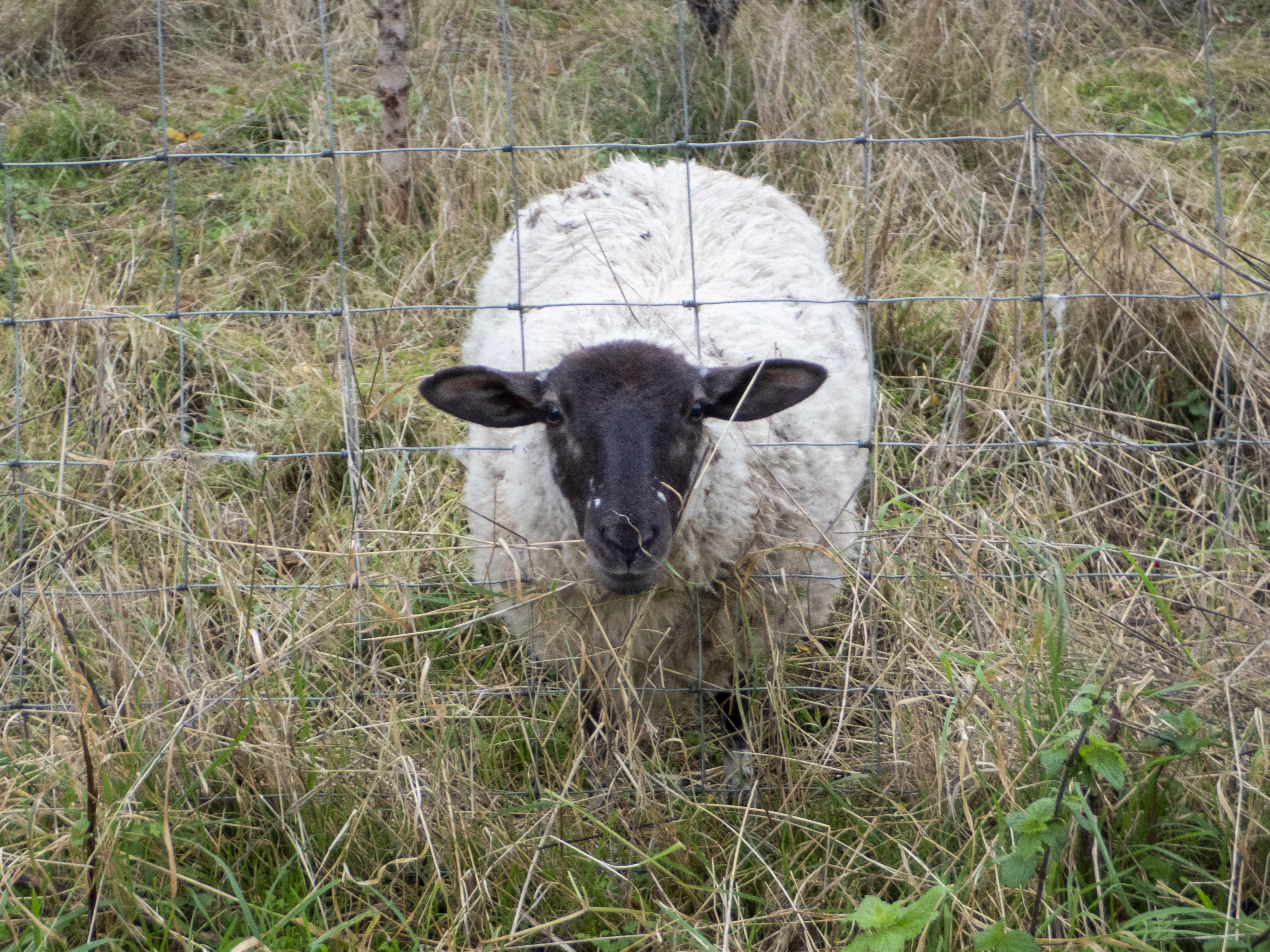
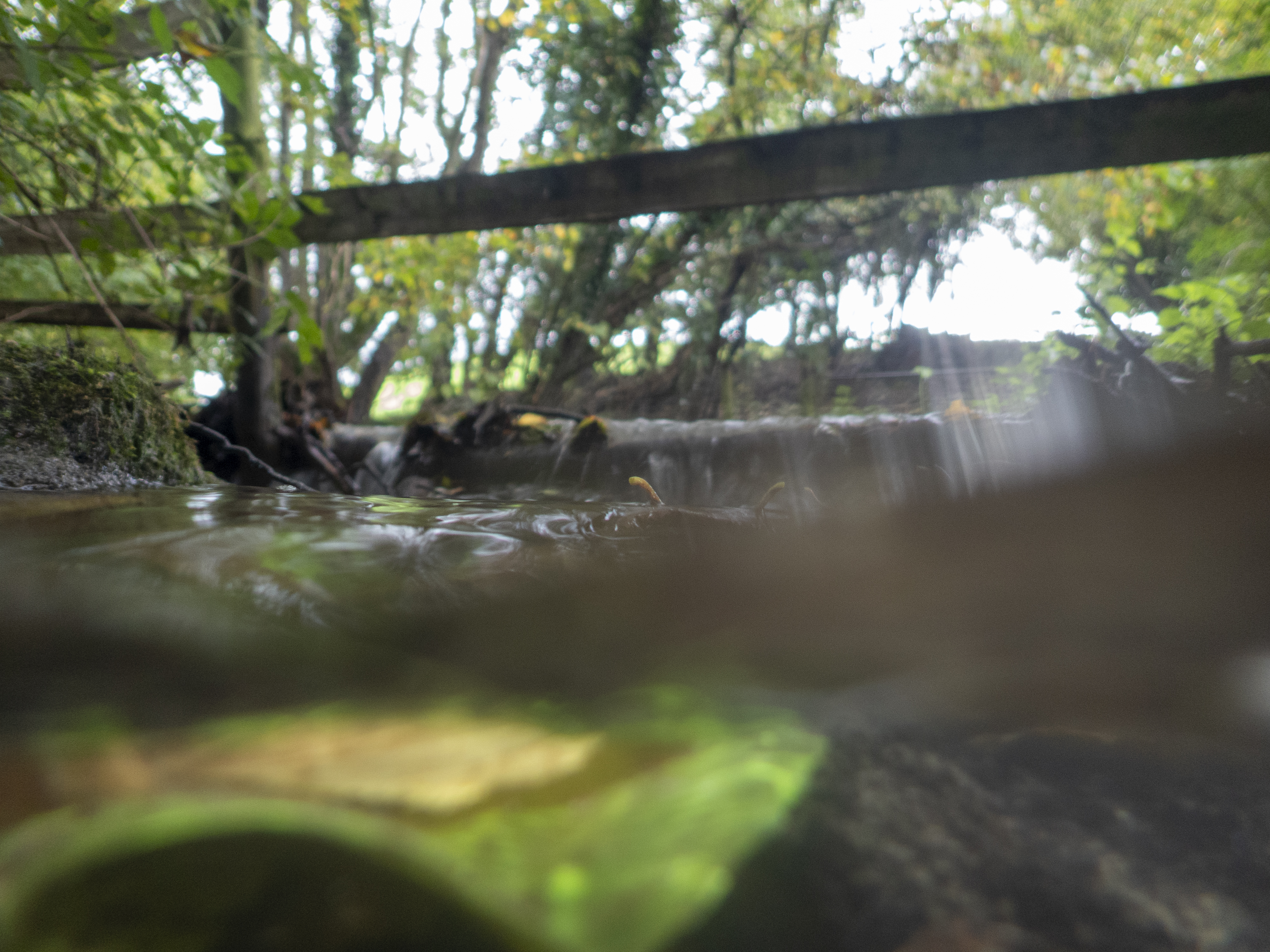
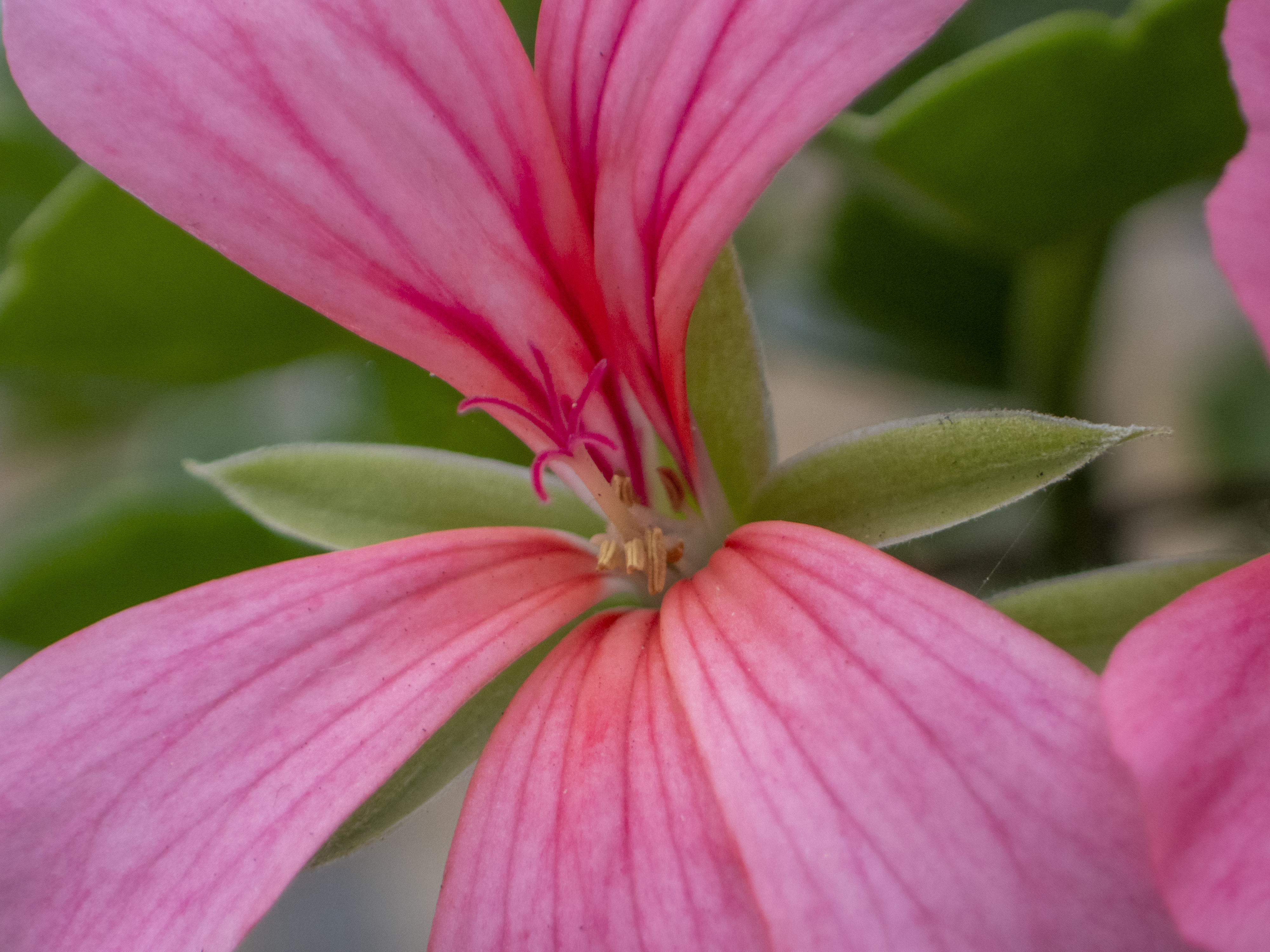
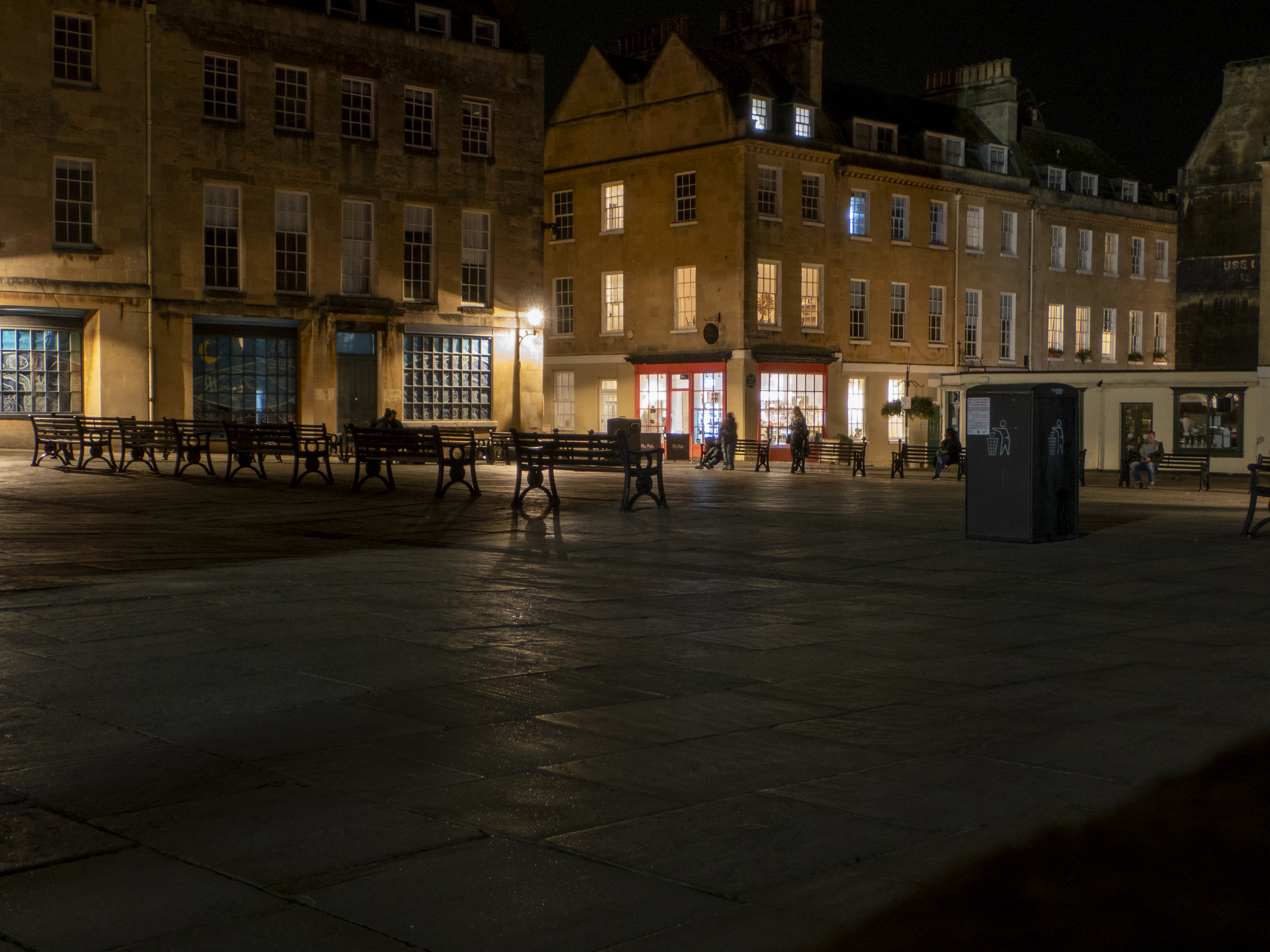
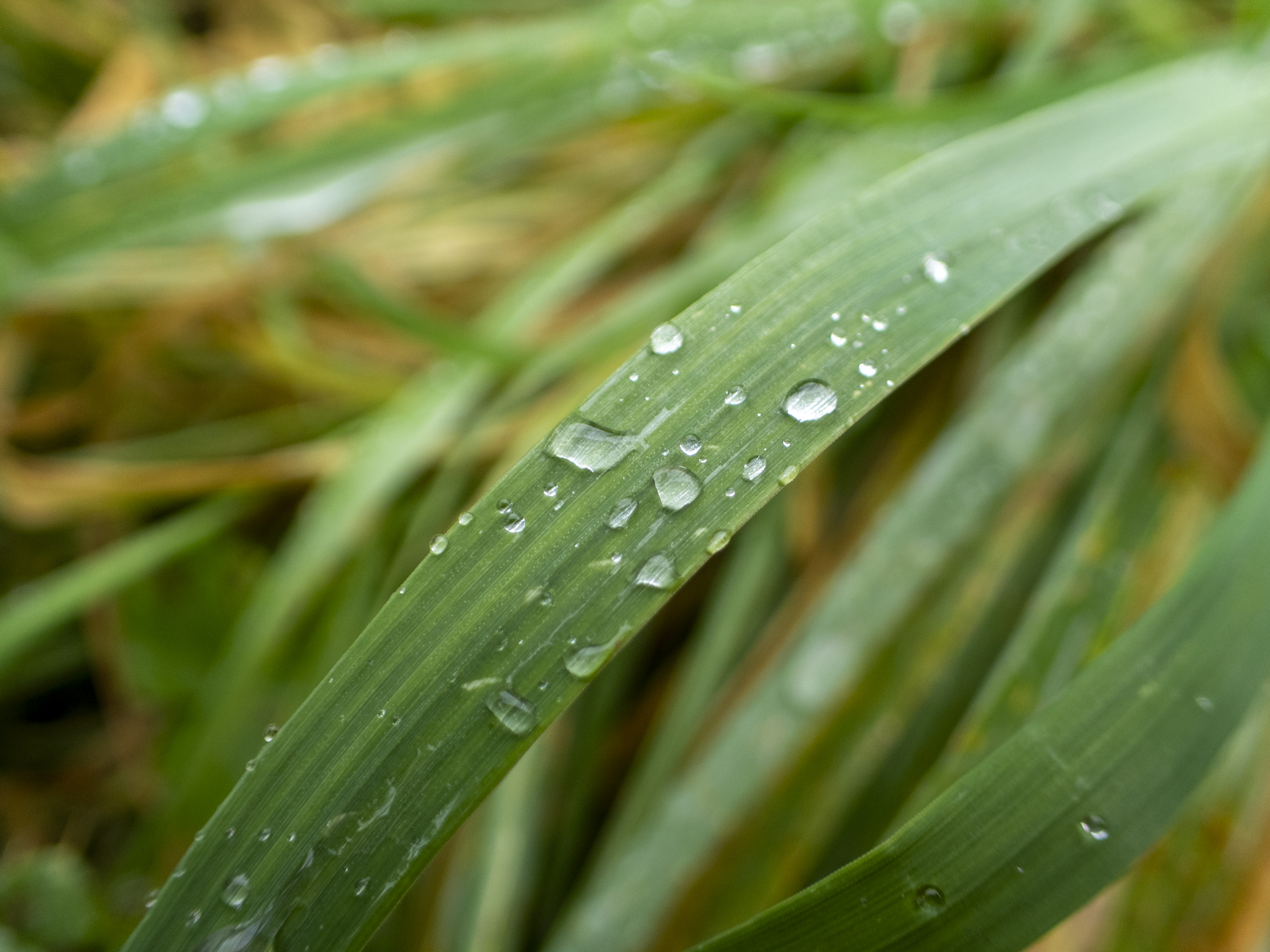
✅ You want an indestructible family camera: The TG-7 is a take-anywhere companion that you can drop in puddles and sand, and submerge in water up to 15m.
✅ You're more into photos than video: The TG-7 offers a surprising amount of photography features for its price.
❌ You want the best image quality: There's no escaping the 12MP resolution, and the fact that real-life image quality lags behind that of many modern smartphones.
❌ You want exciting apps alongside connectivity: Using Bluetooth, you can connect the Tough TG-7 to your smartphone with the OI.
The OM System Tough TG-7 is our top ranking waterproof camera. It can withstand 15m dips underwater, drops from 2.1m and temperatures down to -10°C. Its rugged credentials means kids can take it out shooting without worries of damaging it. It's also small enough to slip into a pocket. In our review, we found that its raised buttons allow for easy control with wet or gloved hands, while the guided interface is great for young learners..
There's a built-in zoom, while scene modes get you set to capture adventures regardless of skill level. It's not the best action camera for photo and video quality, even lagging behind older camera phones like the iPhone 12. However, the TG-7 offers a more tactile experience and can shoot in situations that you wouldn't otherwise risk a phone or regular camera, plus it has a wealth of additional accessories like lenses and lights.
Read our in-depth OM System Tough TG-7 review
Best versatile video camera
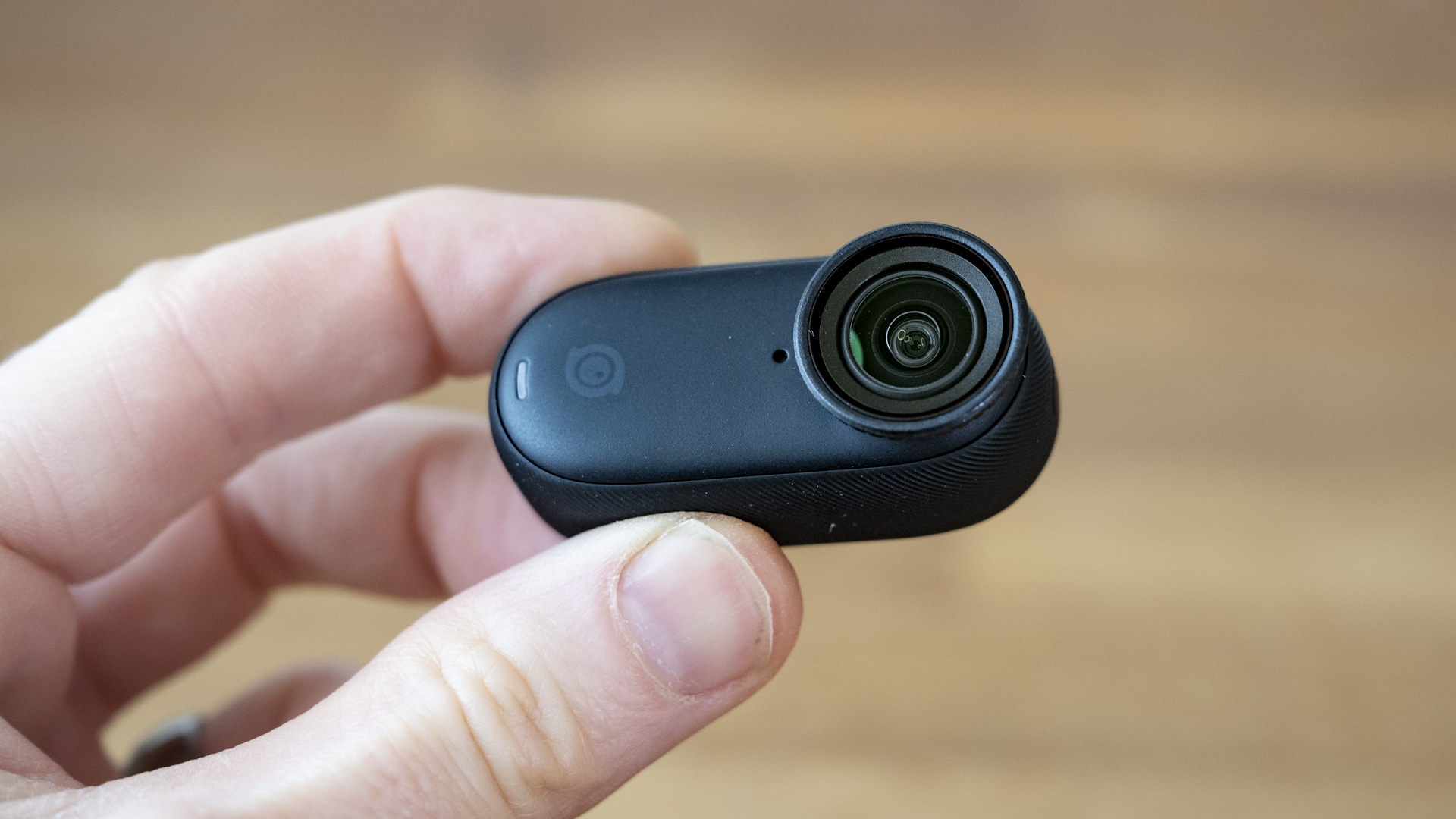
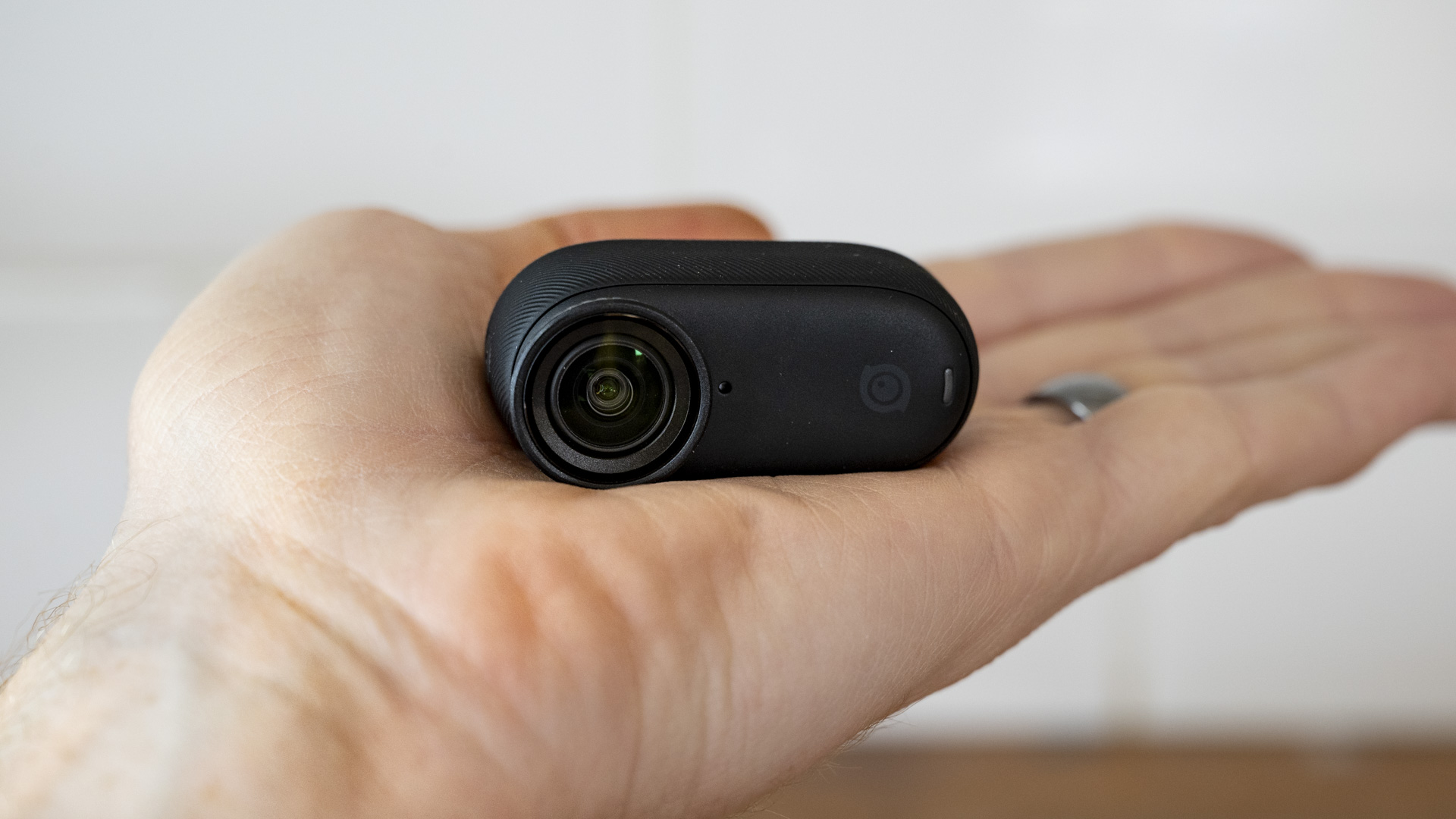
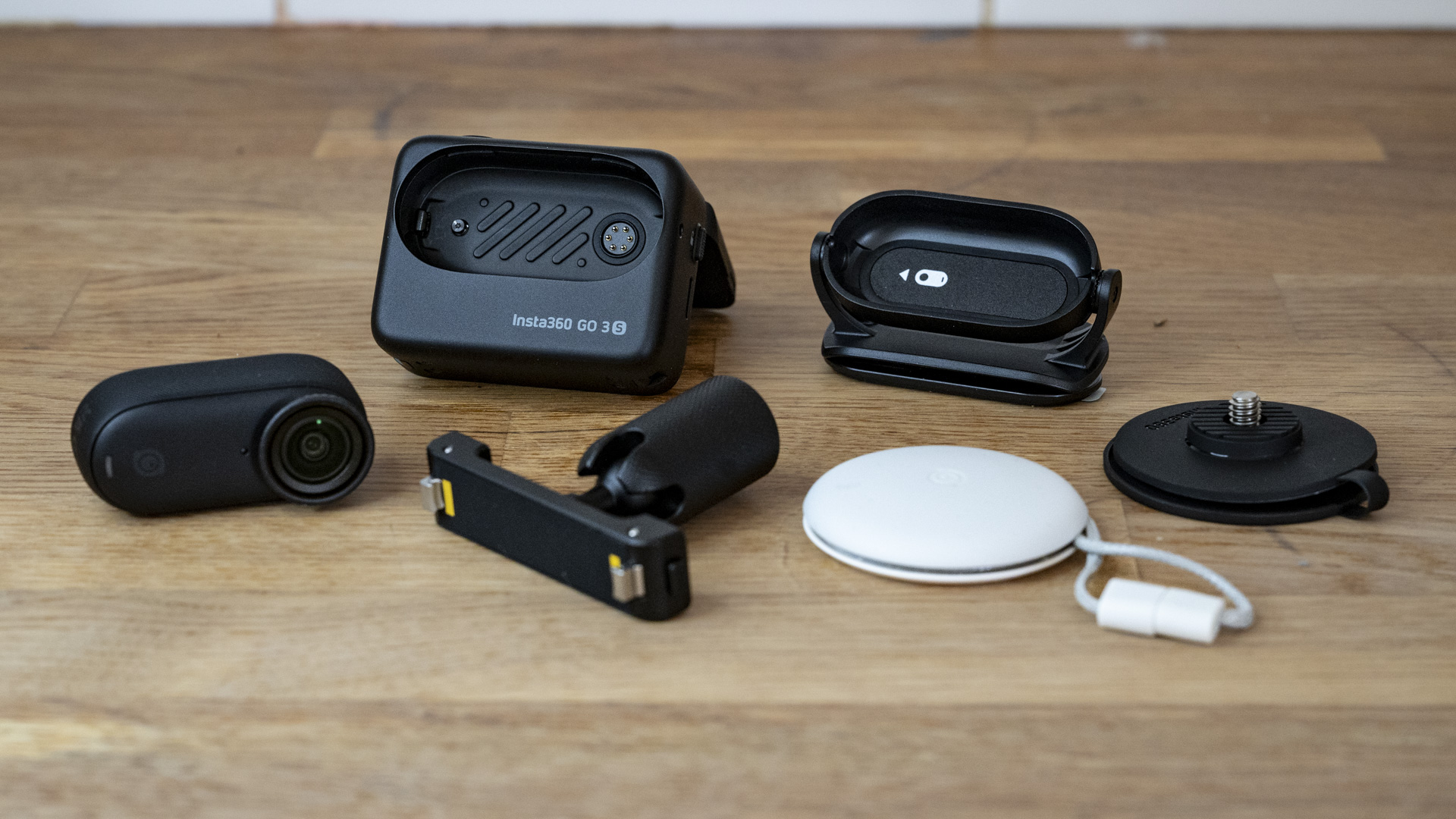
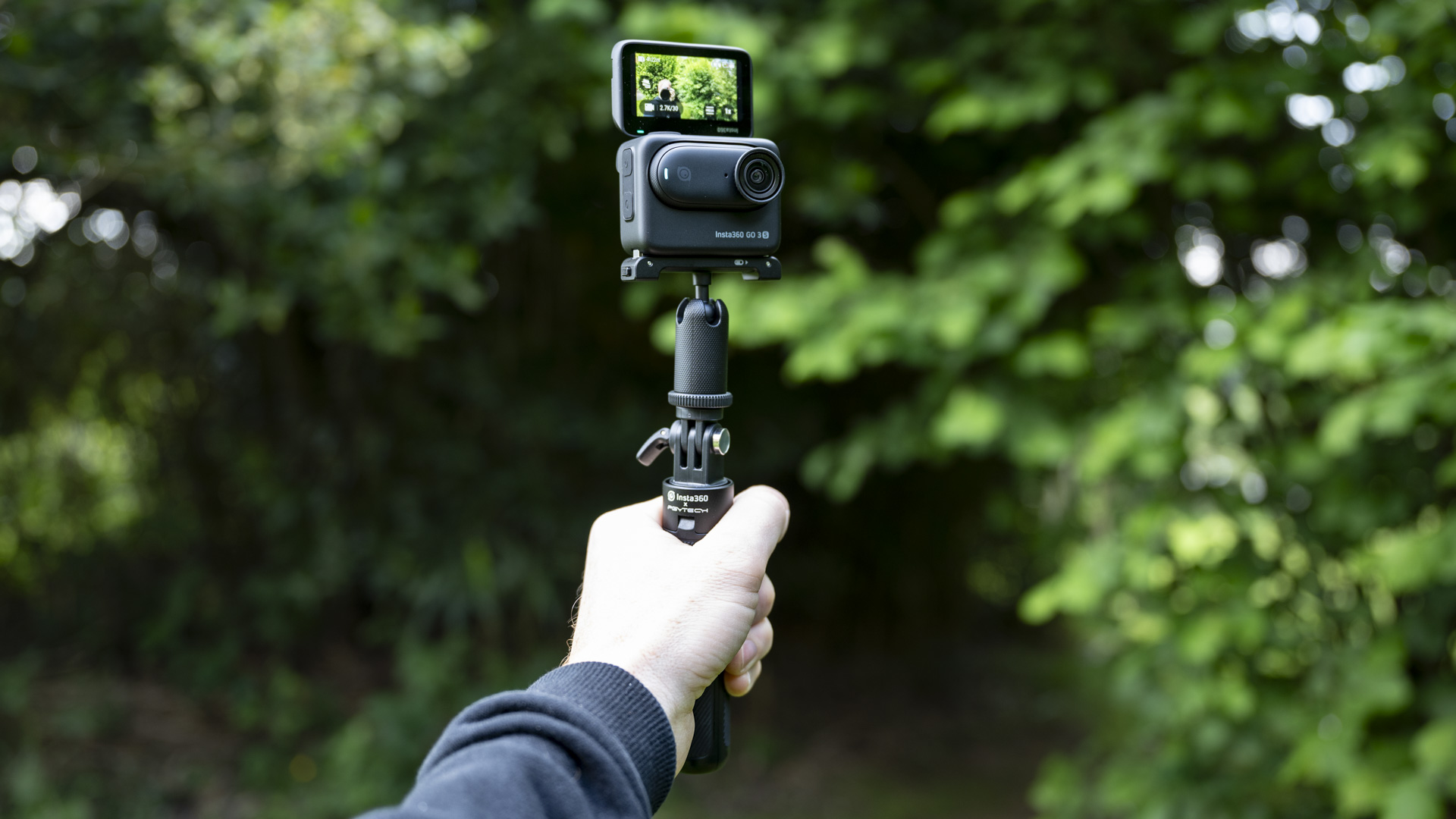
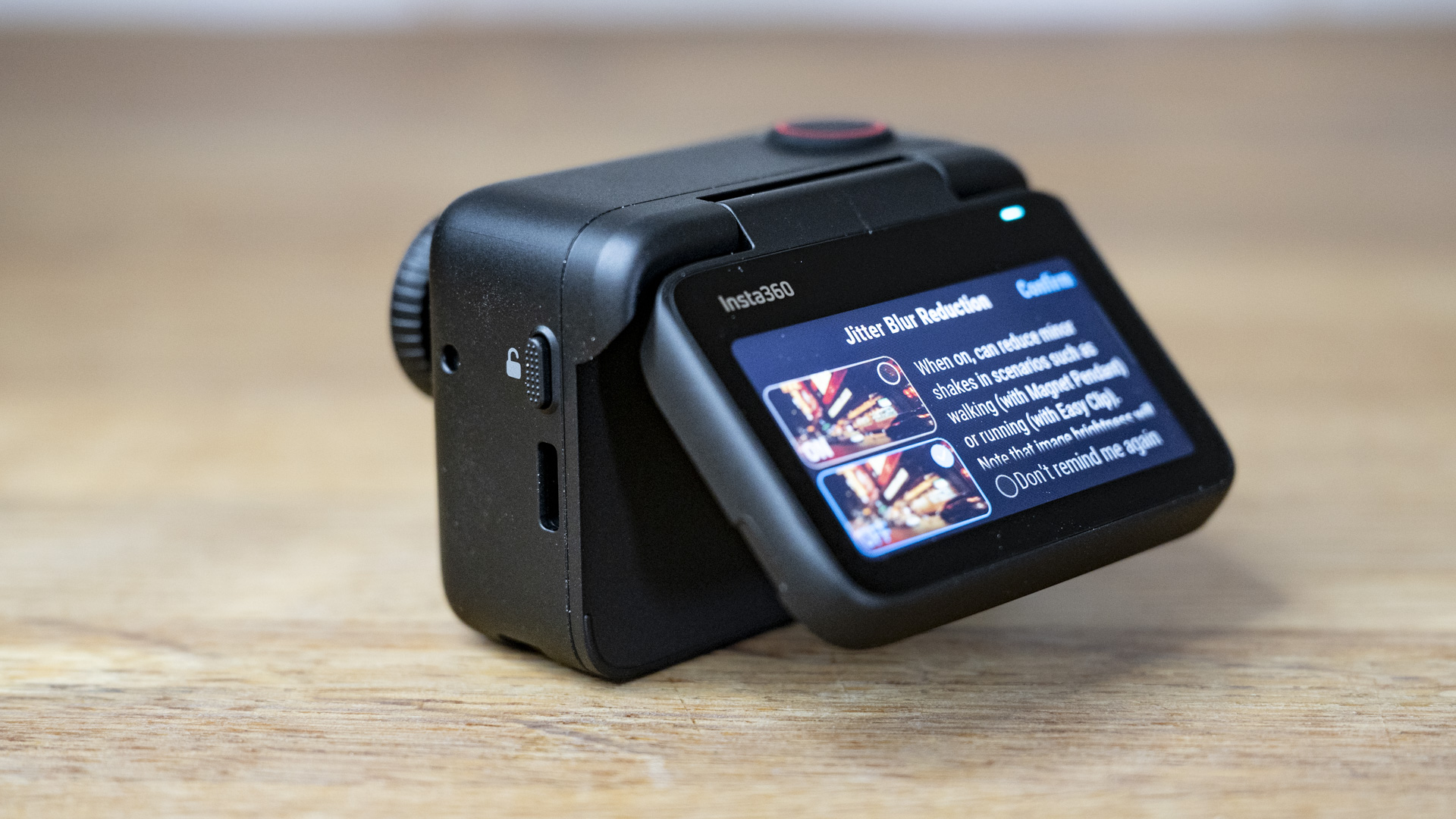
Specifications
Reasons to buy
Reasons to avoid
Insta360 Go 3S sample images
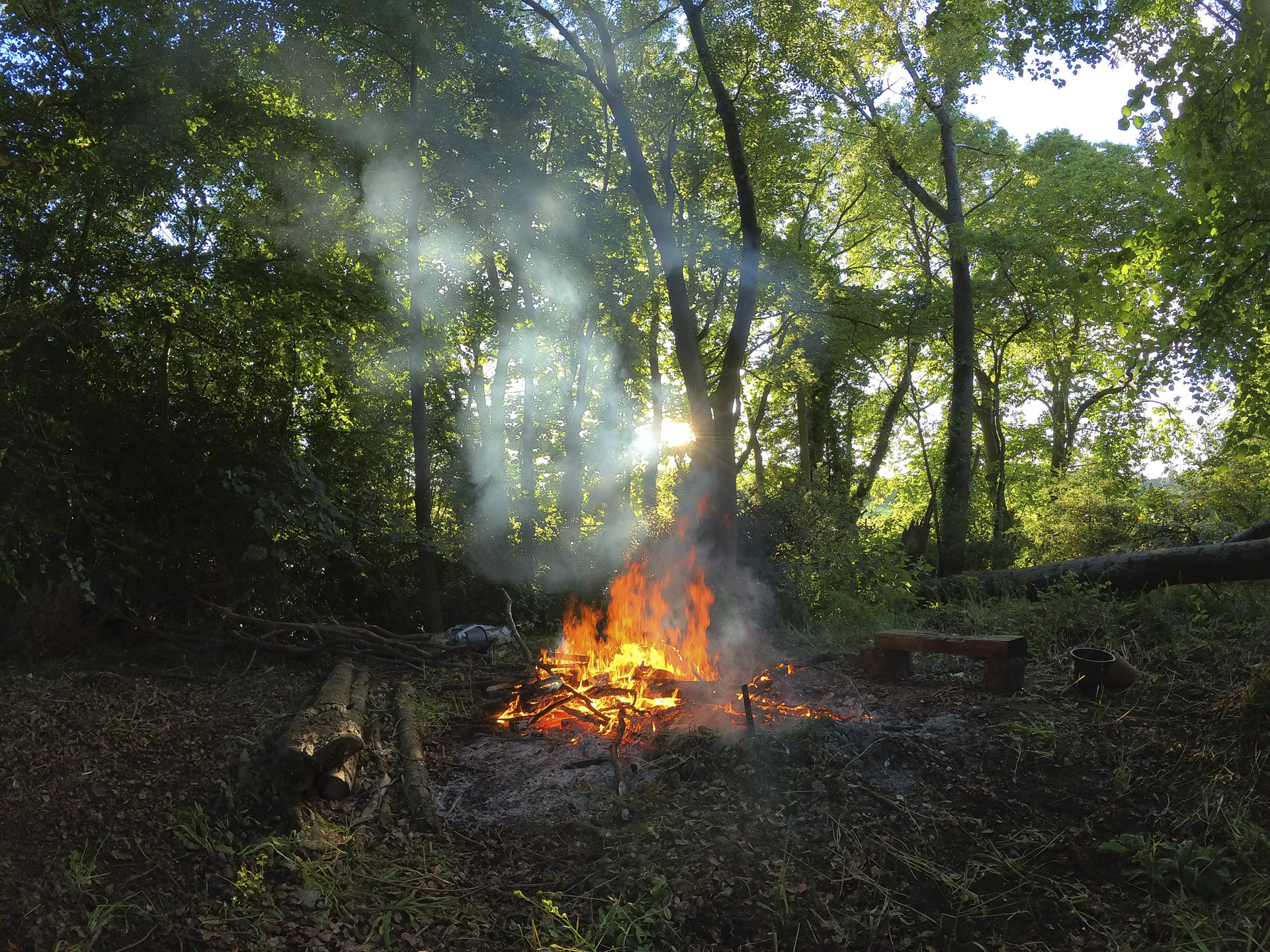
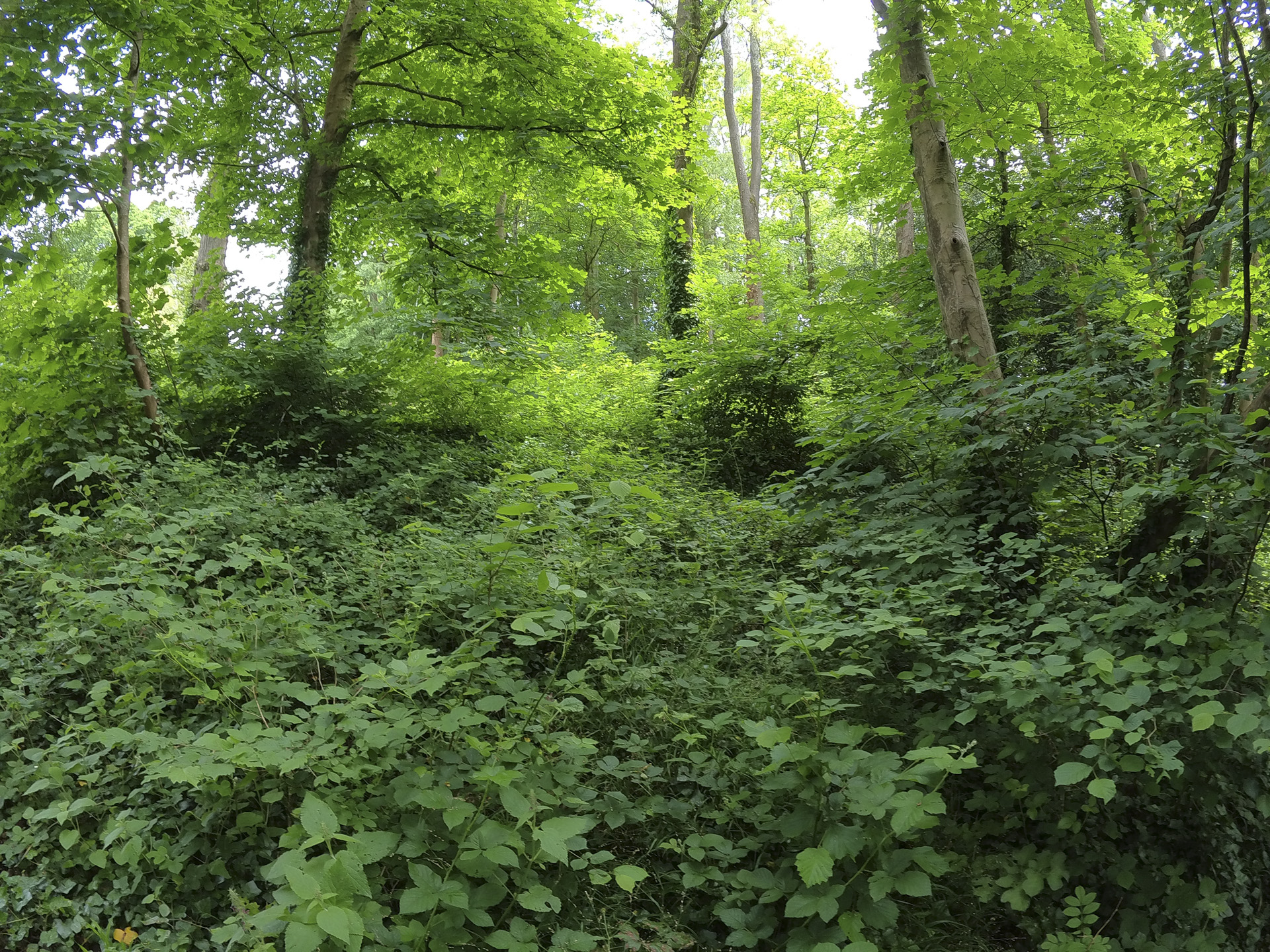
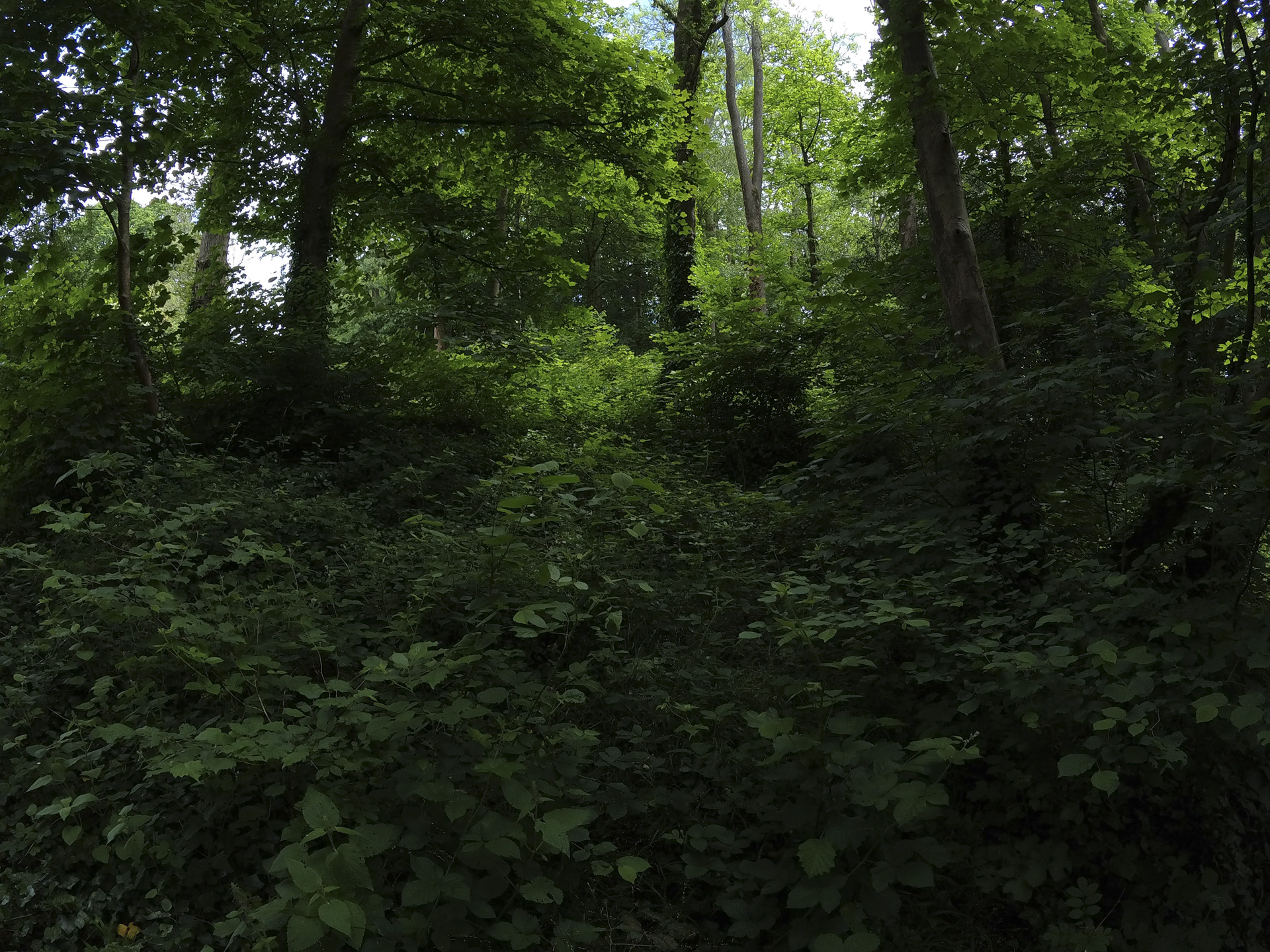
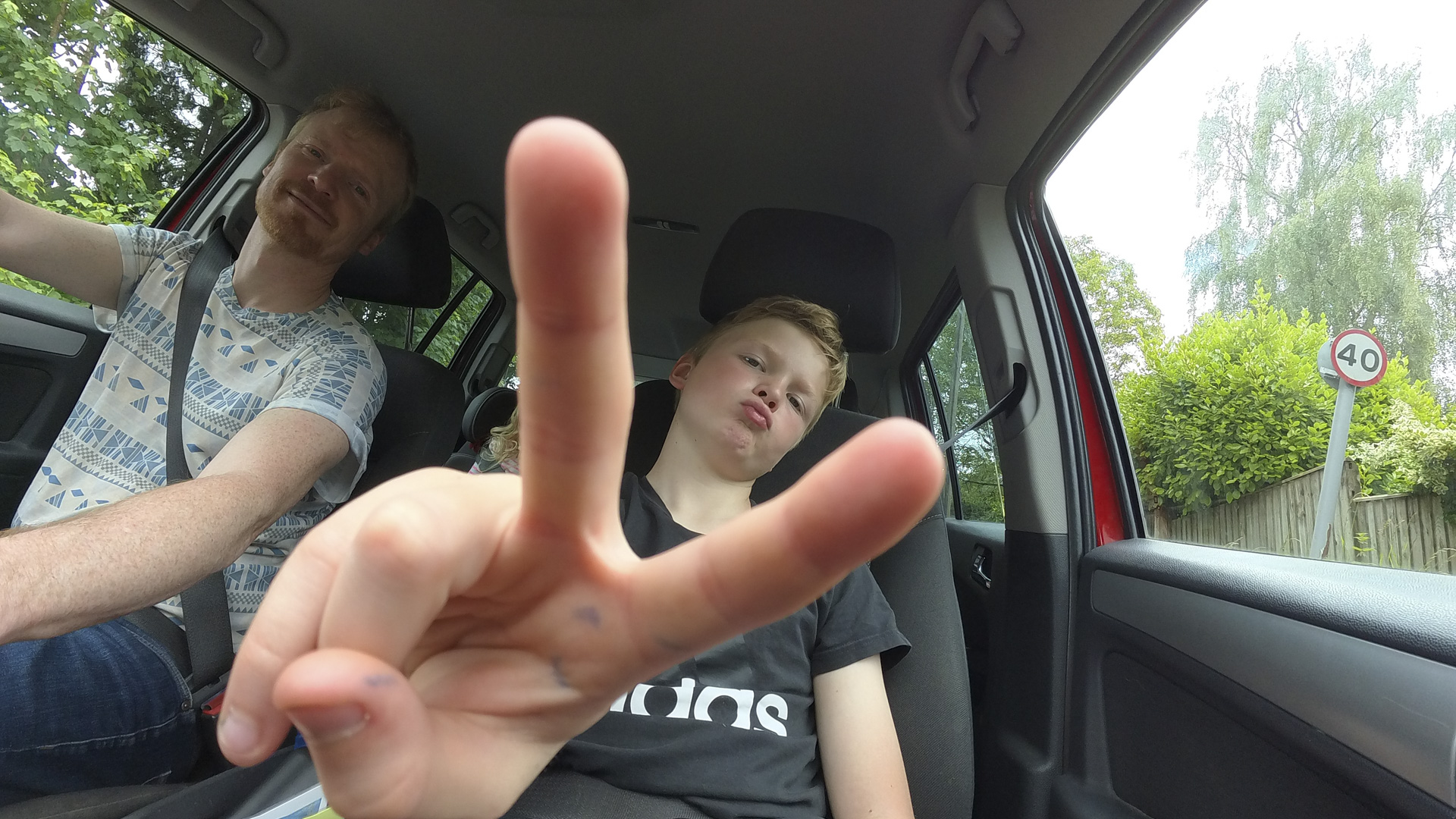
✅ You want a tiny magnetic camera: The Insta360 Go 3 can be mounted on any magnetic surface making it super versatile.
✅ You need stabilized footage: This camera's built-in stabilization will help to smoothy out any shaky footage you take with it.
❌ You want the best image quality: 4K resolution improves the quality of video, but the Go 3S still struggles in low lighting.
❌ You want a fully rugged action camera: The add-on Action Pod still misses out on waterproofing, so you can't take the screen swimming.
We loved the Insta360 Go 3 for its tiny form factor, simple interface and the ability to stick it to any magnetic surface. The Go 3S takes that same recipe and sharpens things up with a 4K resolution, making it an even more appealing choice for young creators who want to capture unique angles with a miniature action camera. In our review, we commented that it’s a camera that holds its value for families, especially because its auto-rotate feature makes it simple to switch between vertical and horizontal recording.
It’s still not a perfect tool: our tests found that other options out-perform it in low lighting, whole battery life isn’t particularly strong – so youngsters will need to get used to timeouts. The Action Pod returns, giving you a flip-up screen for easy framing, but as before, this isn’t waterproof, so you can’t preview shots in water. All the same, if you want a truly pocket-friendly camera that lets your kids shoot first and frame later, the Go 3S is our recommendation.
Read our in-depth Insta360 Go 3S review
Best small instant camera
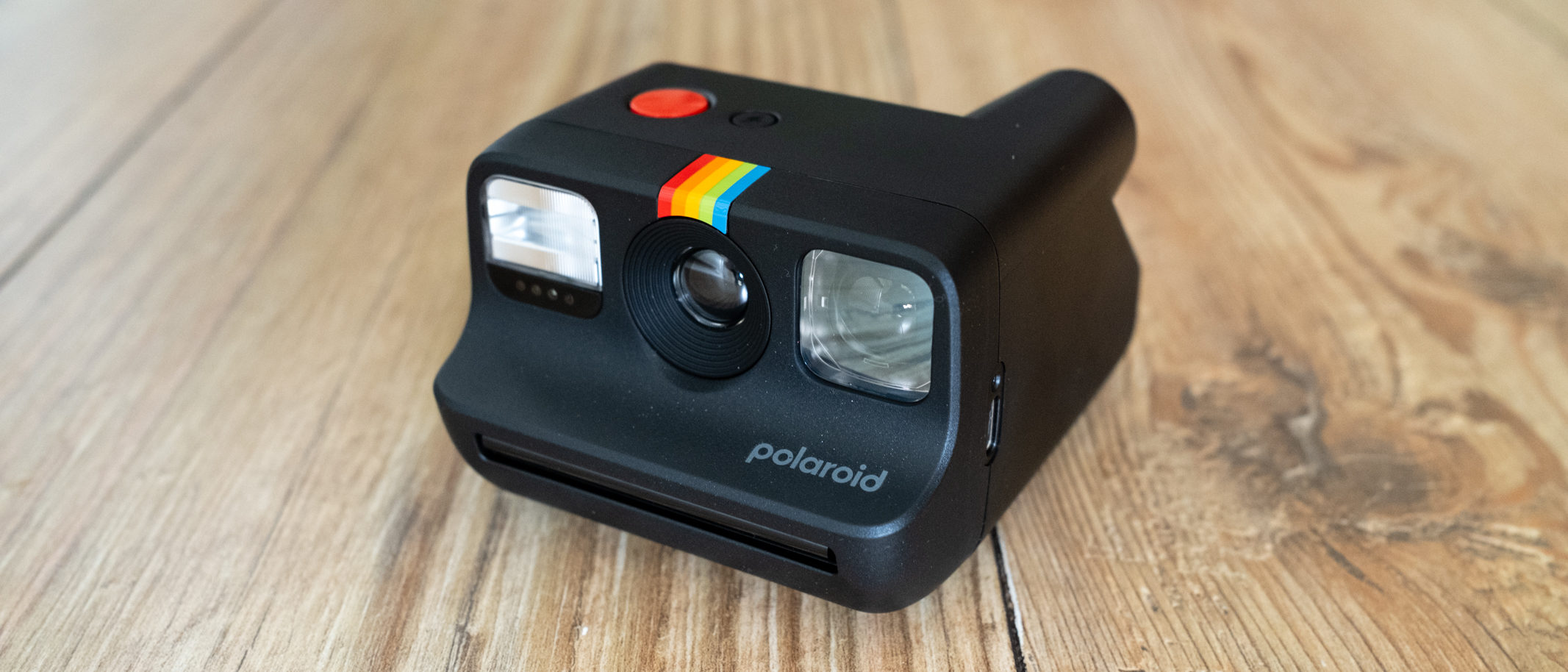
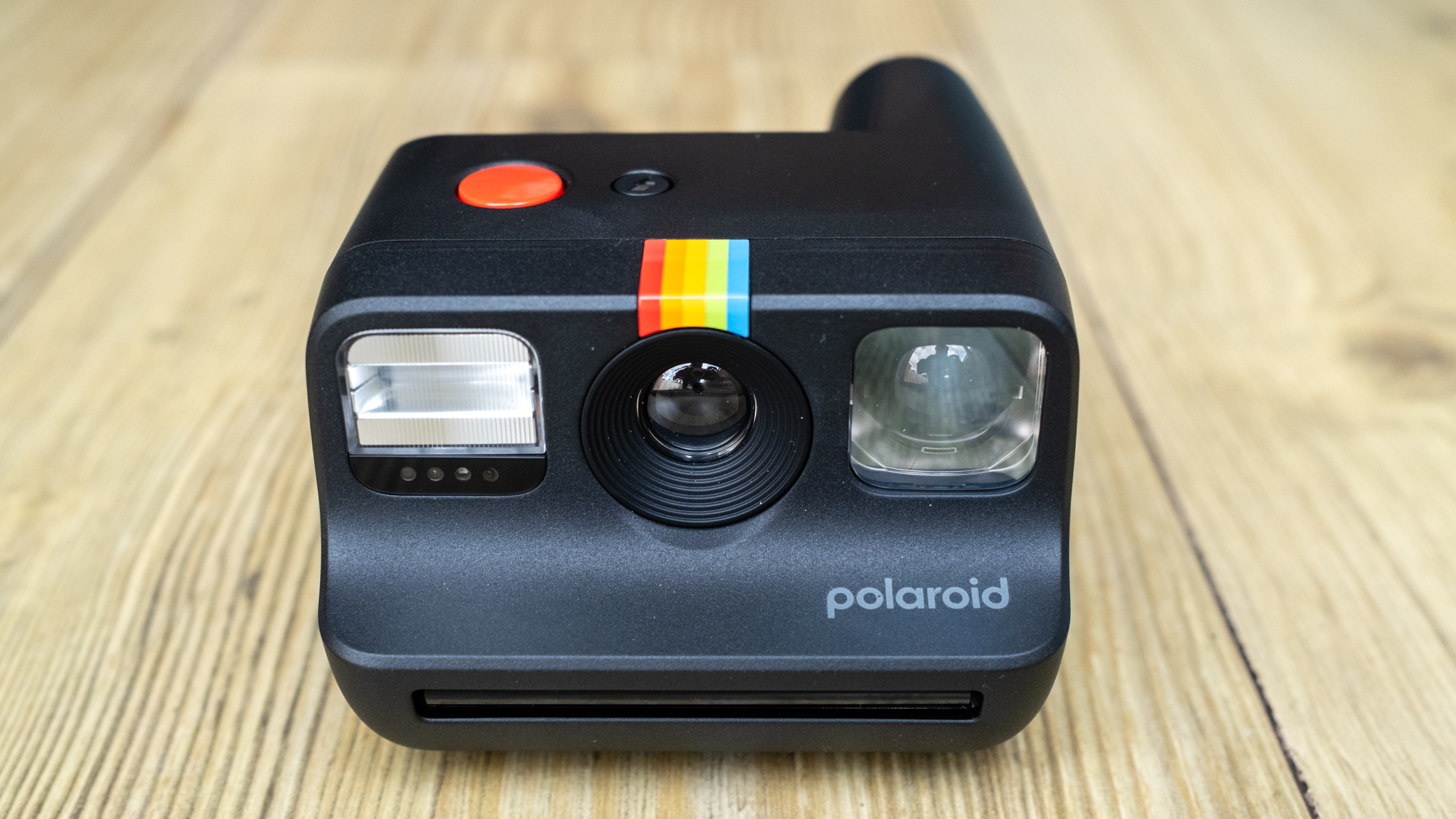
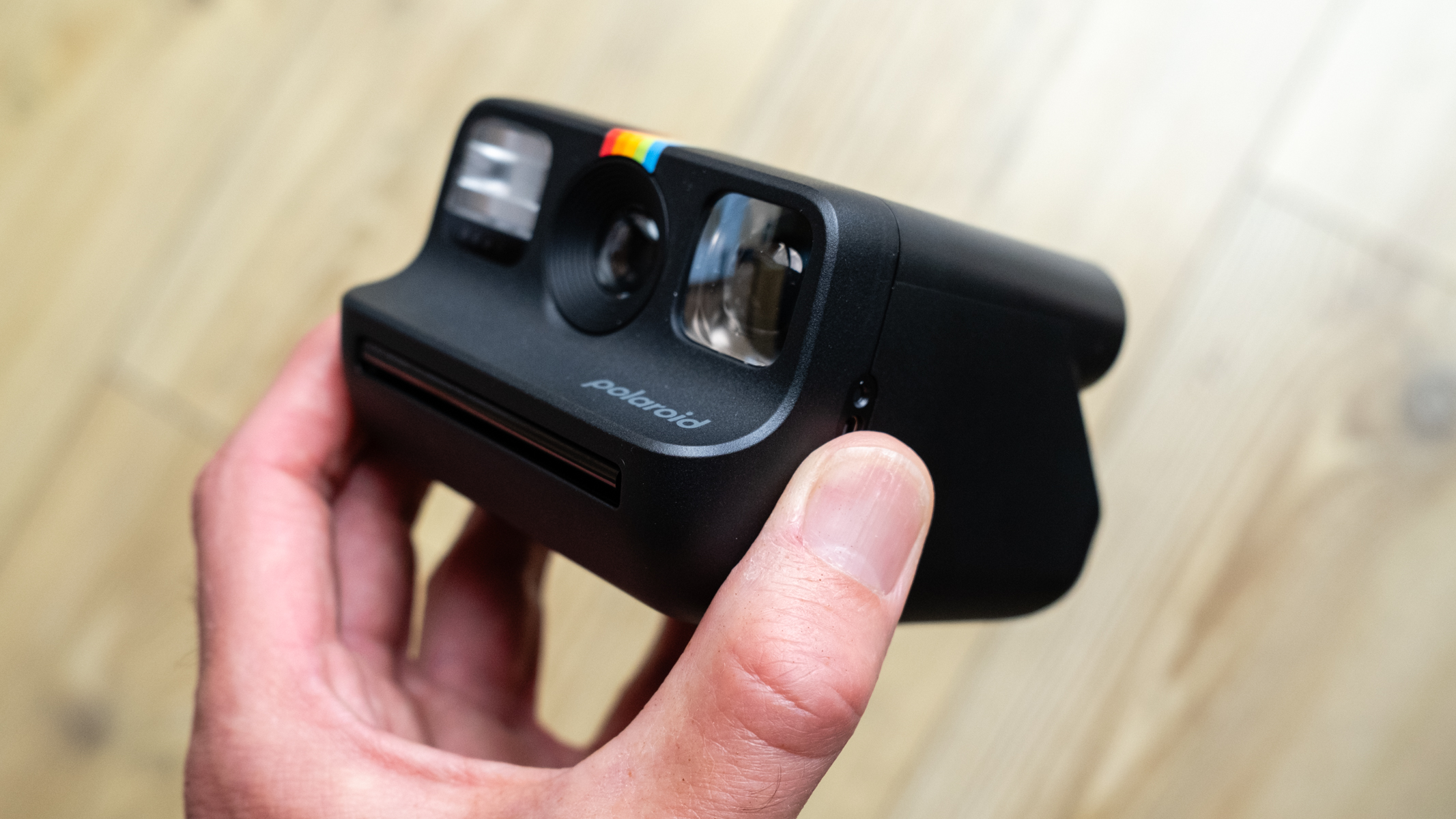
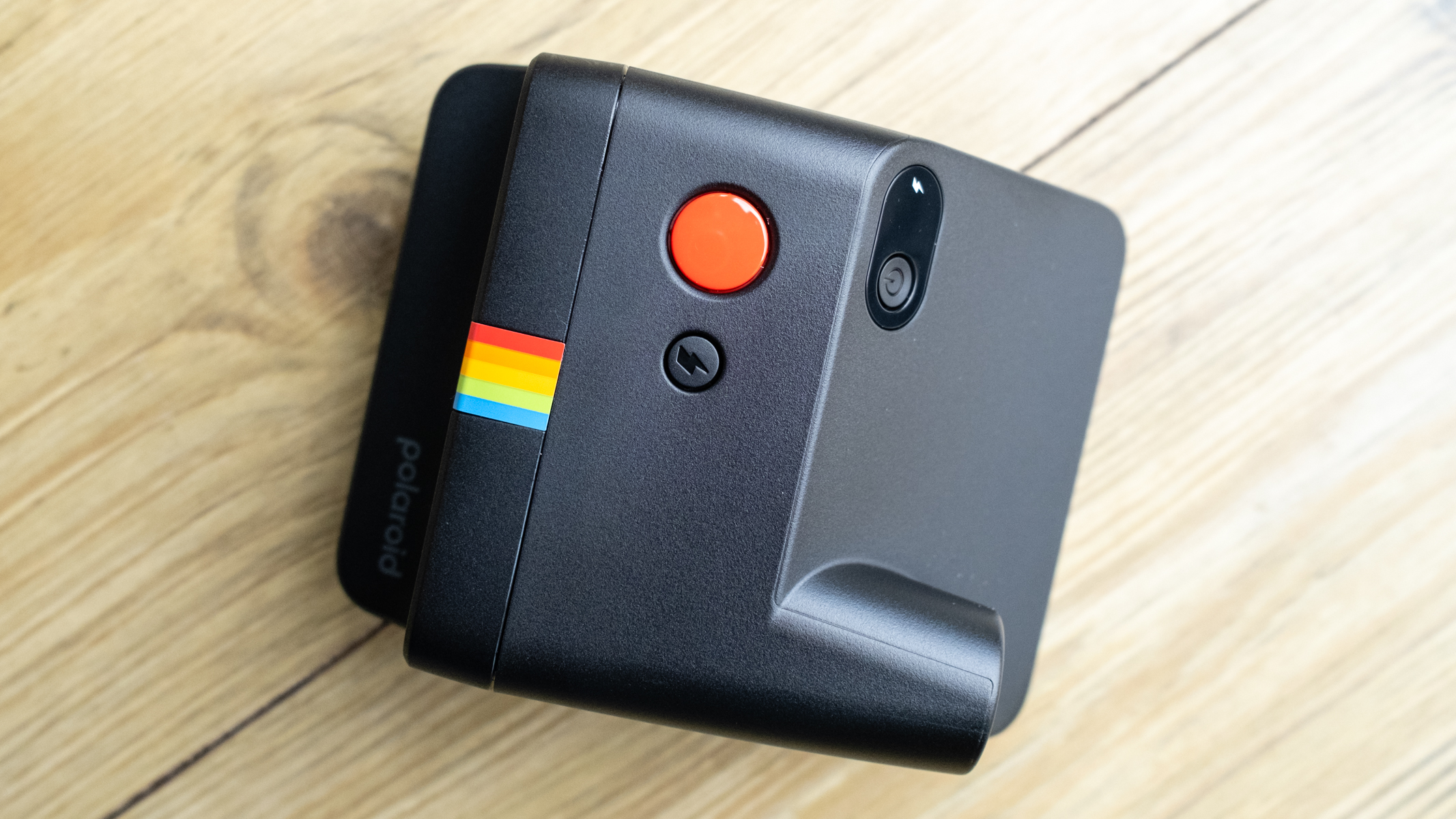
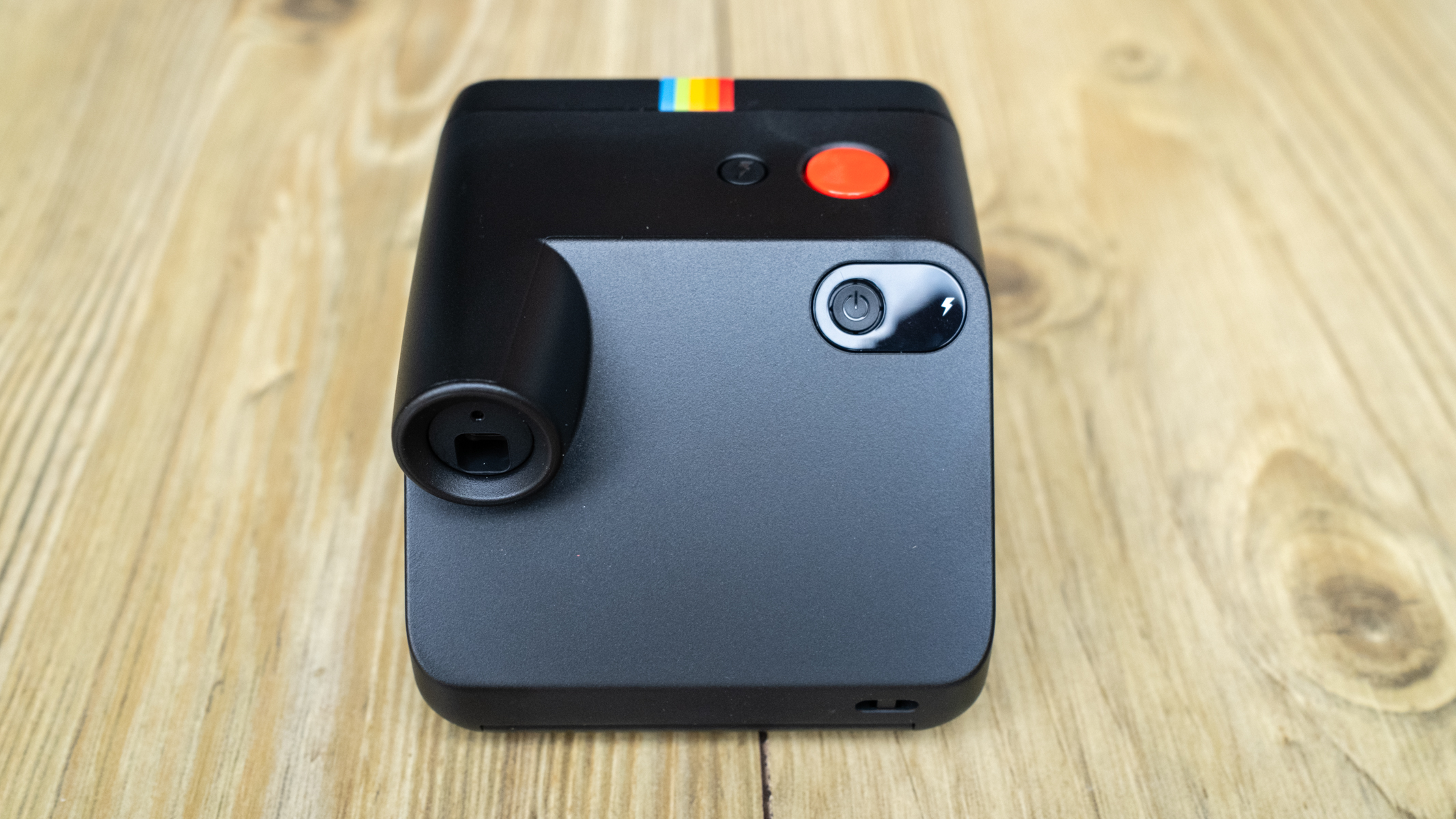
Specifications
Reasons to buy
Reasons to avoid
Polaroid Go Generation 2 sample images
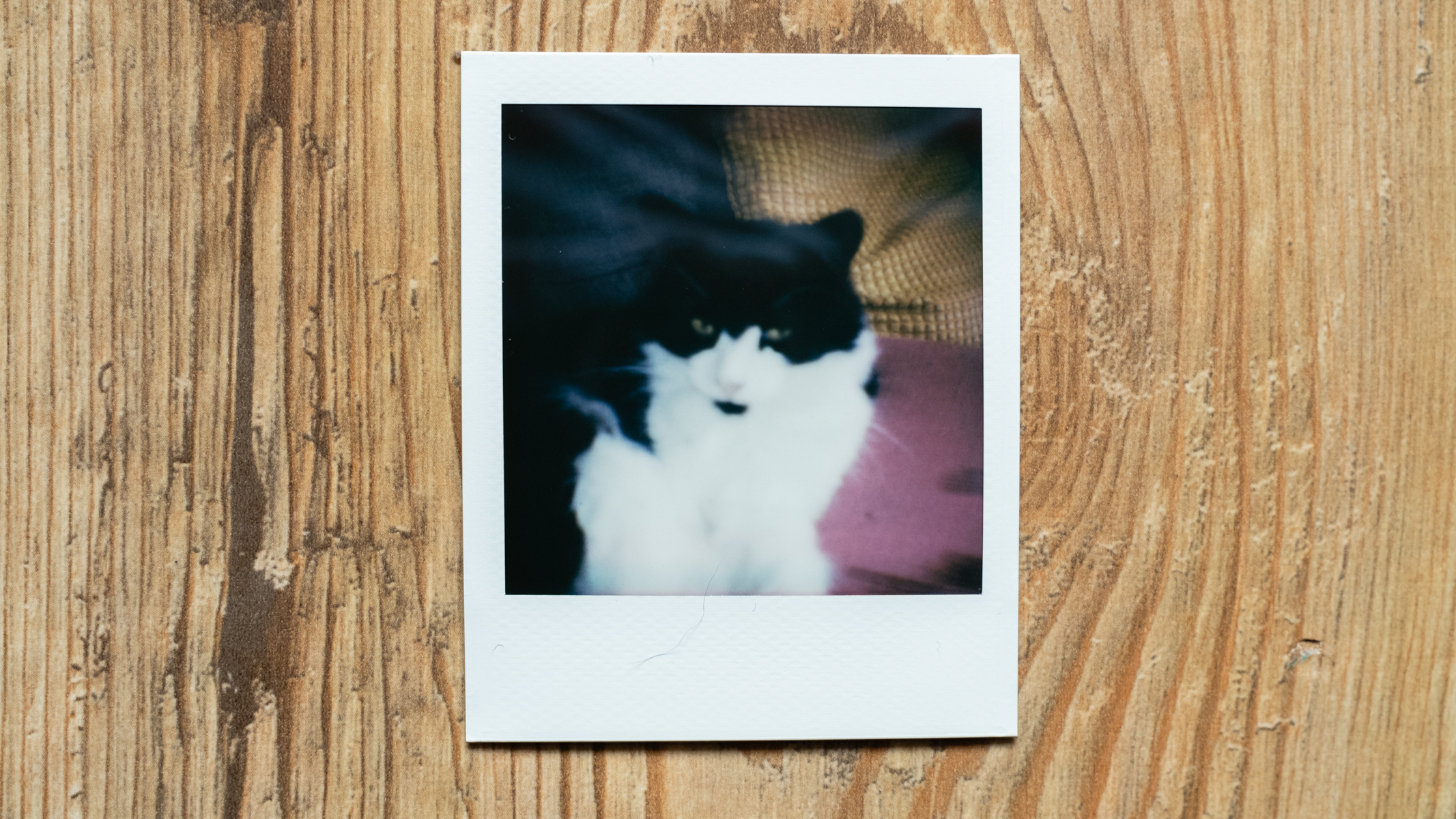
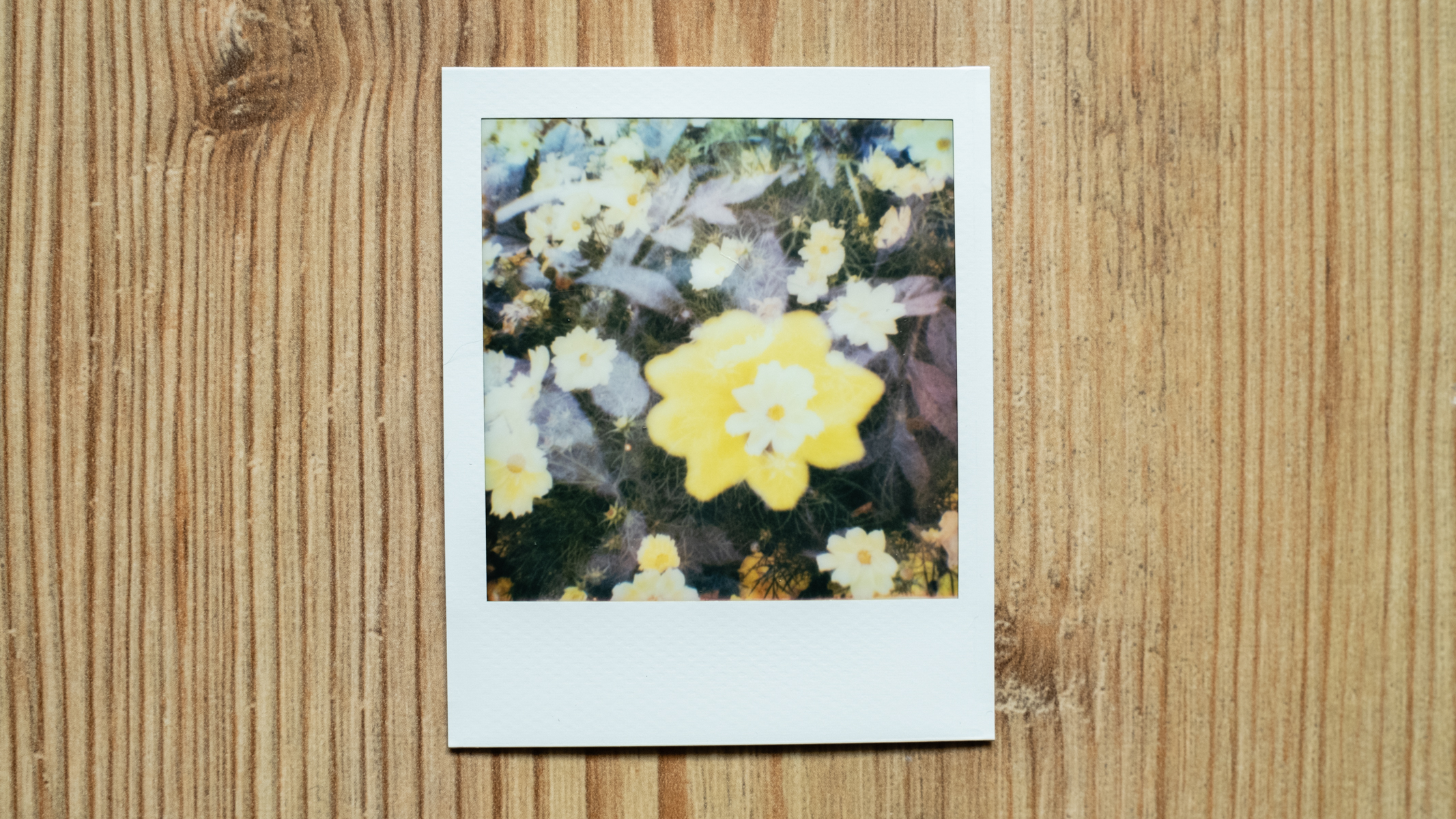
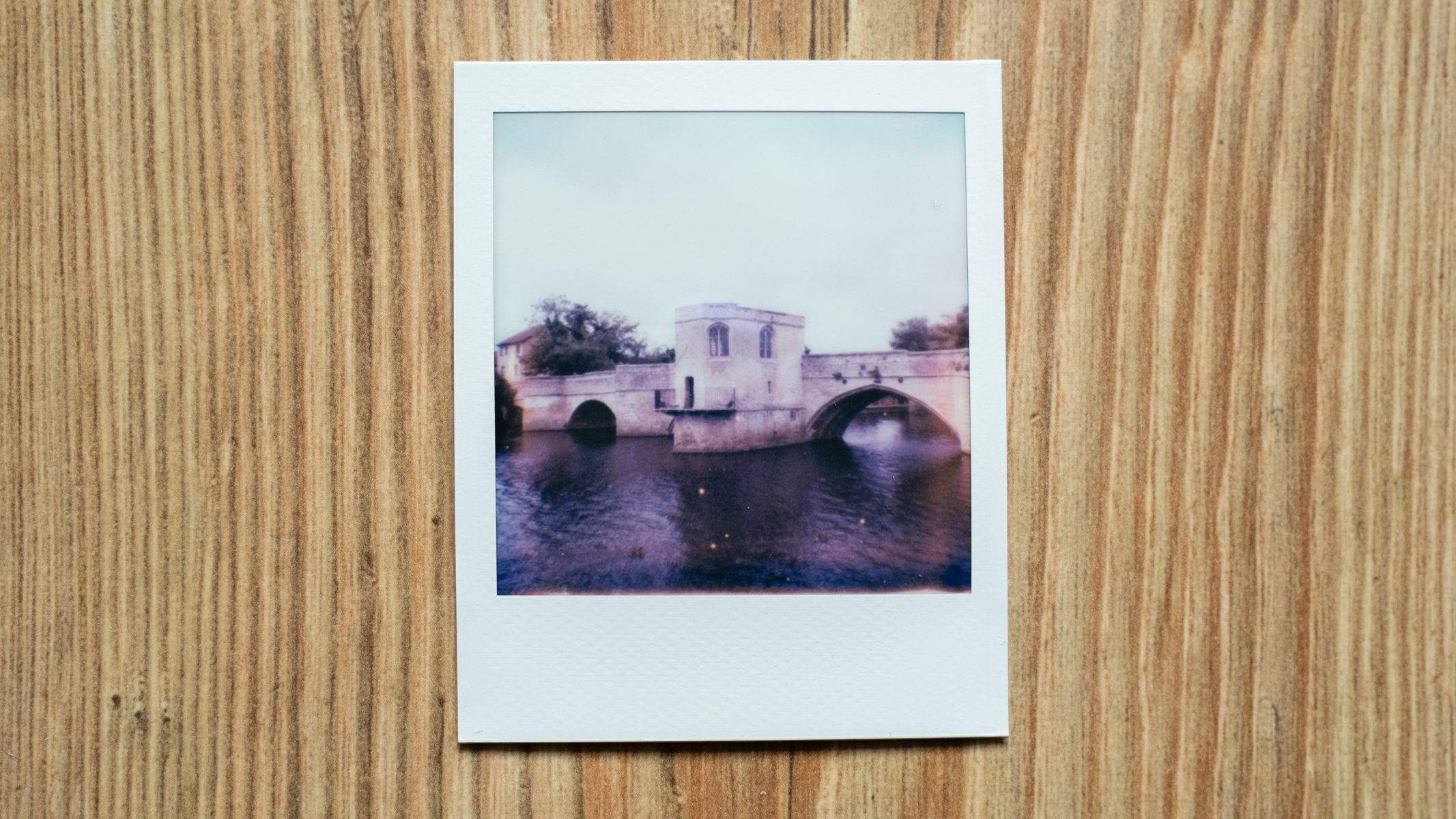
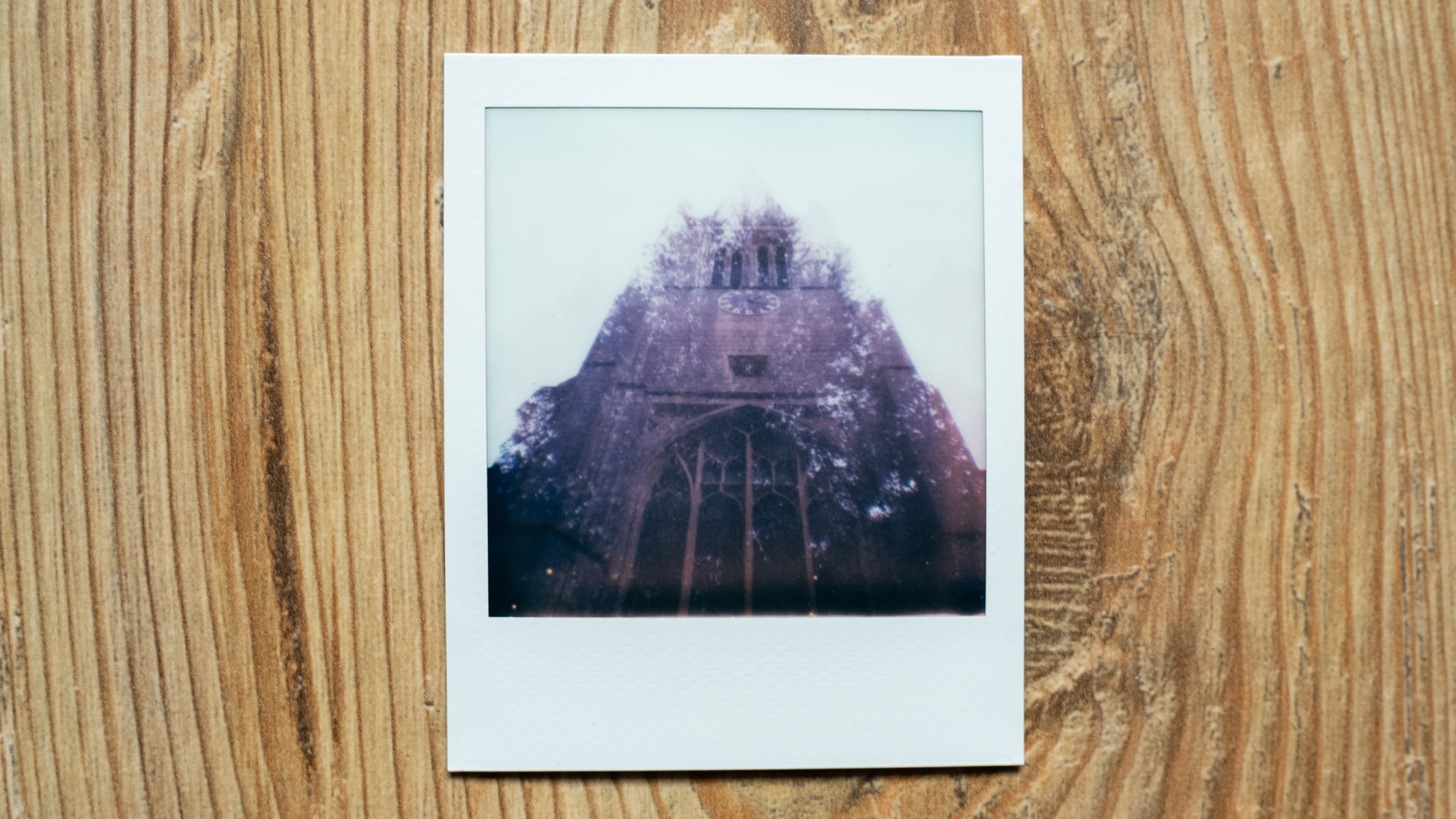
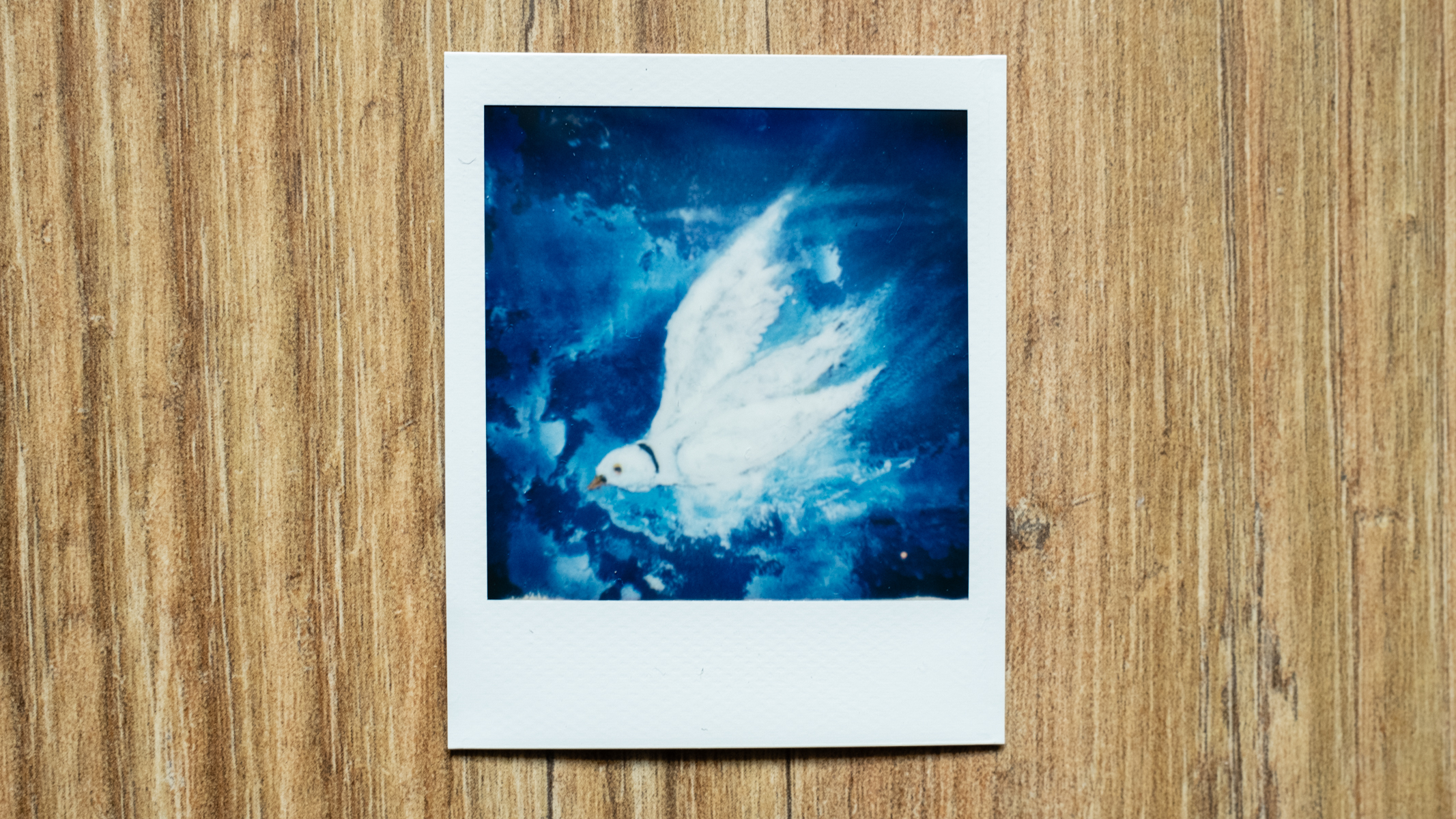
✅ You want a small Polaroid camera: If this is your kid's first instant camera, it's a great starting point in terms of size, simplicity and cost.
✅ You want an easy to use camera: Simple controls with just a smattering of buttons on the retro-inspired shell, plus a digital shot counter.
❌ You want a macro mode: A minimum focus distance of 45cm means the Go 2 isn't great for shooting close-ups.
❌ You want zero ongoing costs: Film refills don't come particularly cheap, so you'll need to factor this into your decision making.
Instant photography is ideal for young learners and no camera captures that point-and-shoot simplicity quite like the Polaroid Go 2. Pretty much the smallest instant camera you can buy, its compact form factor is ideal for small hands to get to grips with. Controls are simple, too: you'll find just a few buttons on the retro shell. In our review, we also praised the viewfinder as surprisingly reliable. Automatic exposure and a fixed-focus lens make things as easy as possible, although youngsters can also experiment with double exposures and self-timer shots as they get more confident.
We did find in our review that images lack a little clarity and color balance, with quality dropping off in low light. We also felt that prints were on the small size, and presented some haziness – and there's no escaping that refill packs cost more than your average pocket-money budget. All the same, the Polaroid Go 2 is an entertaining, easy-to-use way for kids to get in on the instant photography fun.
Read our in-depth Polaroid Go 2 review
The best safe social camera
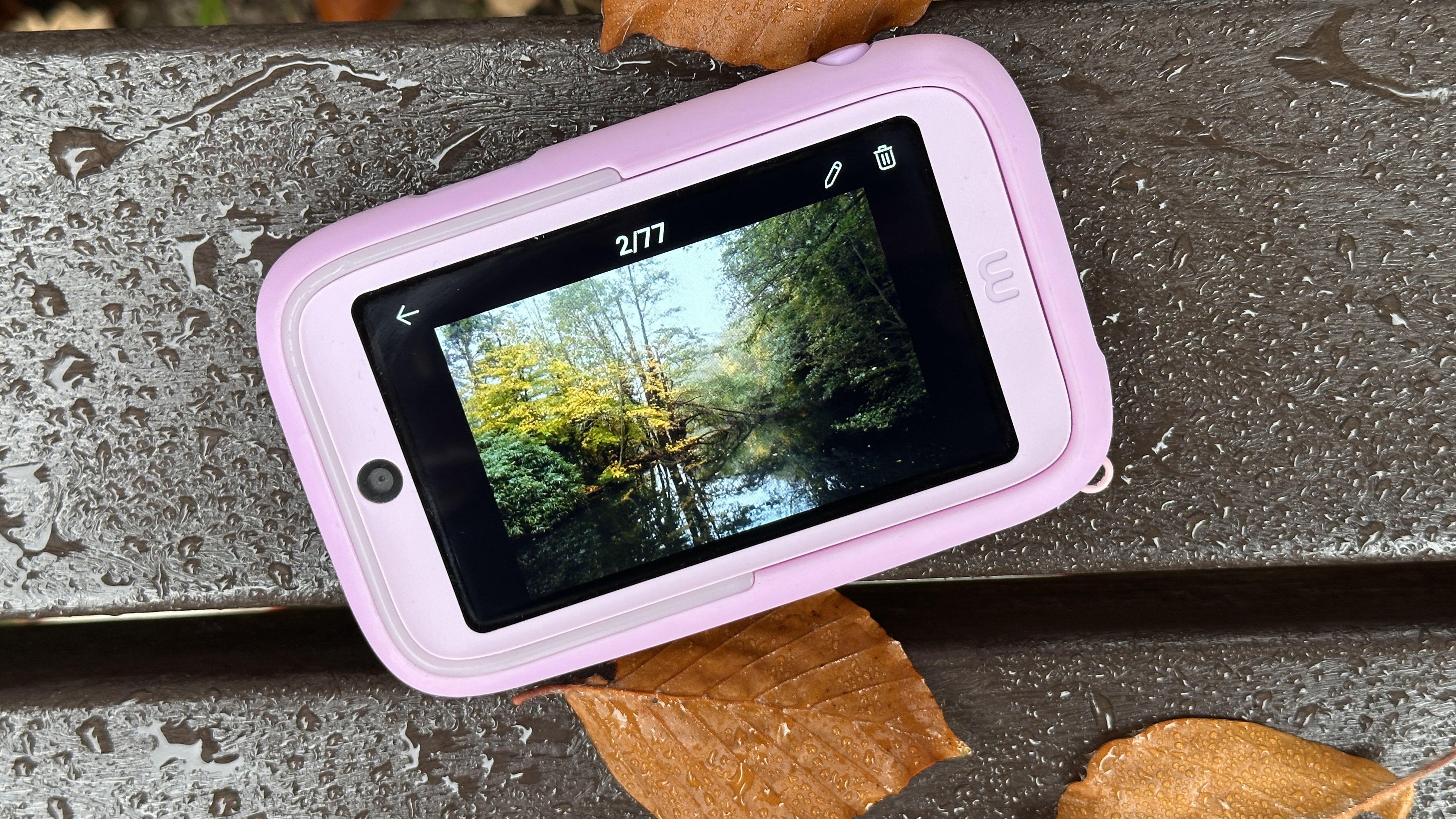
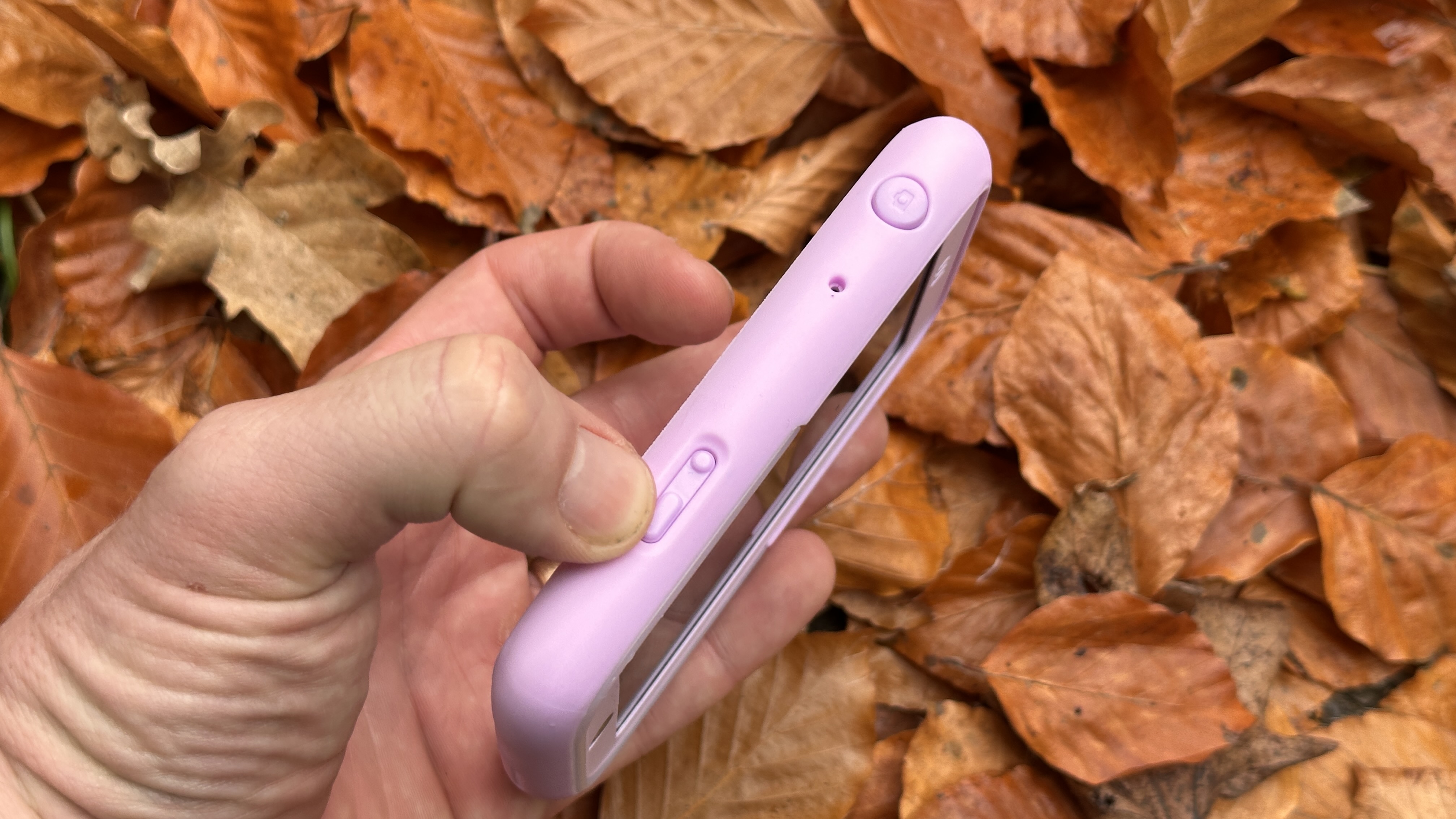
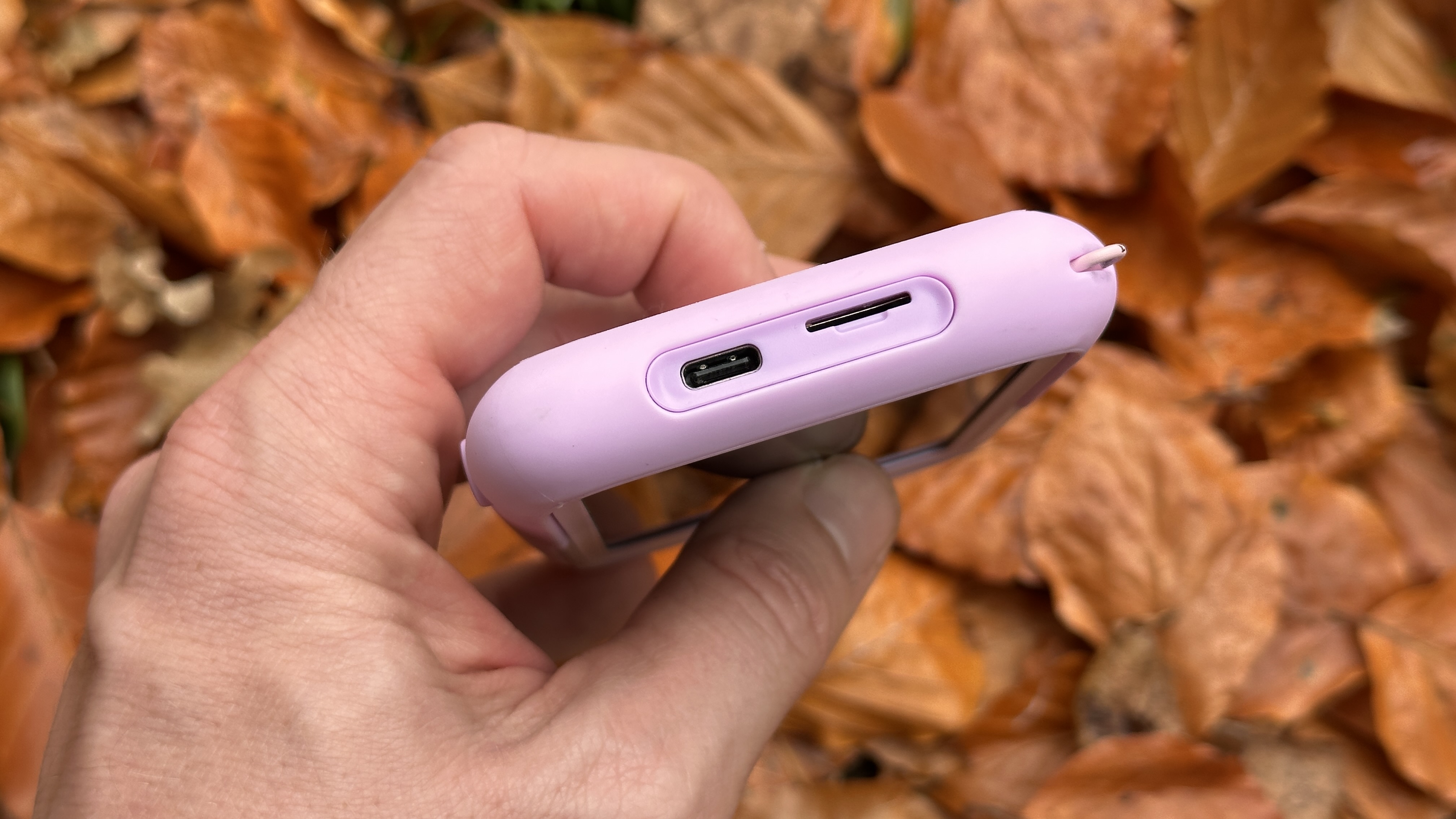
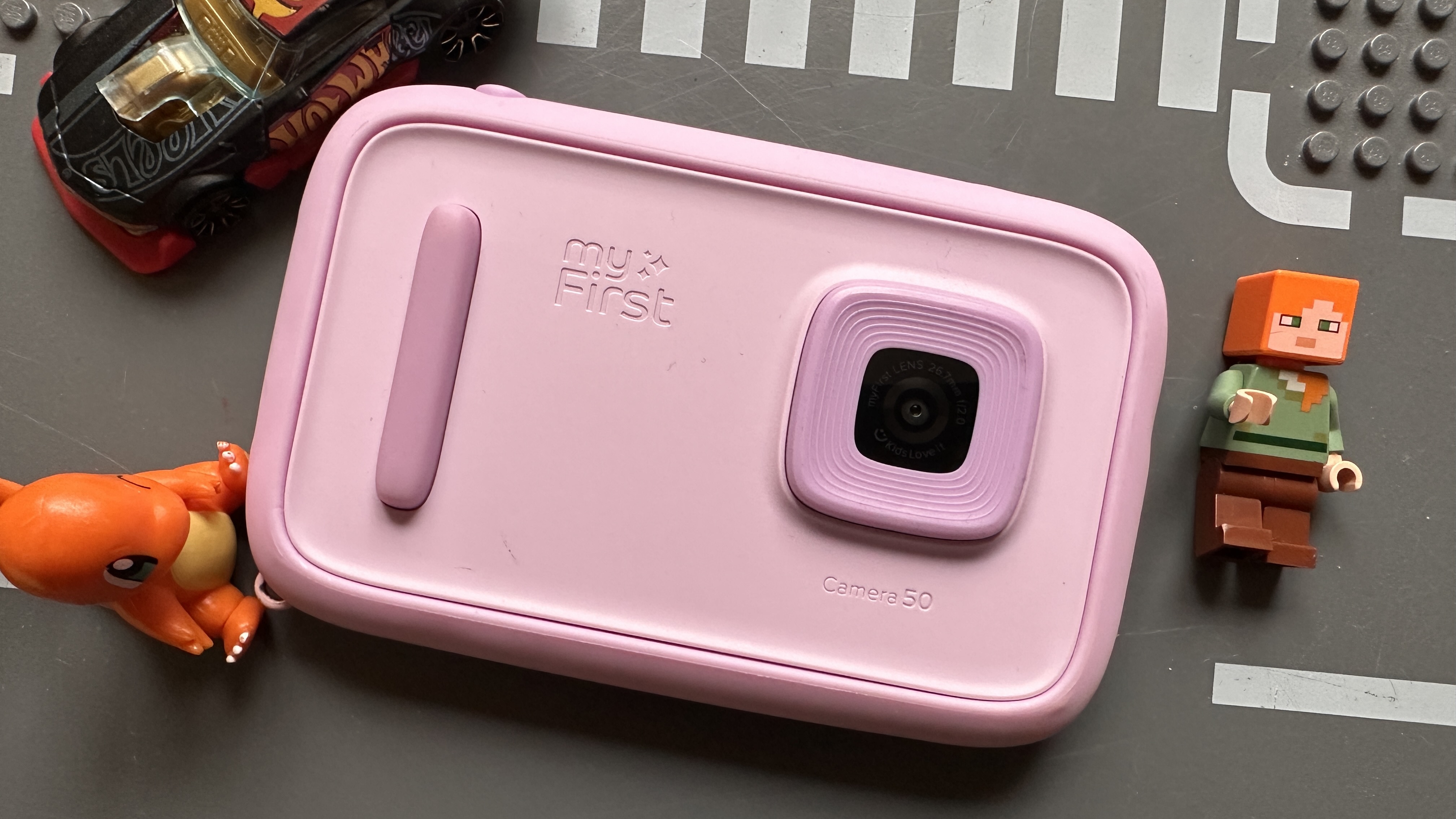
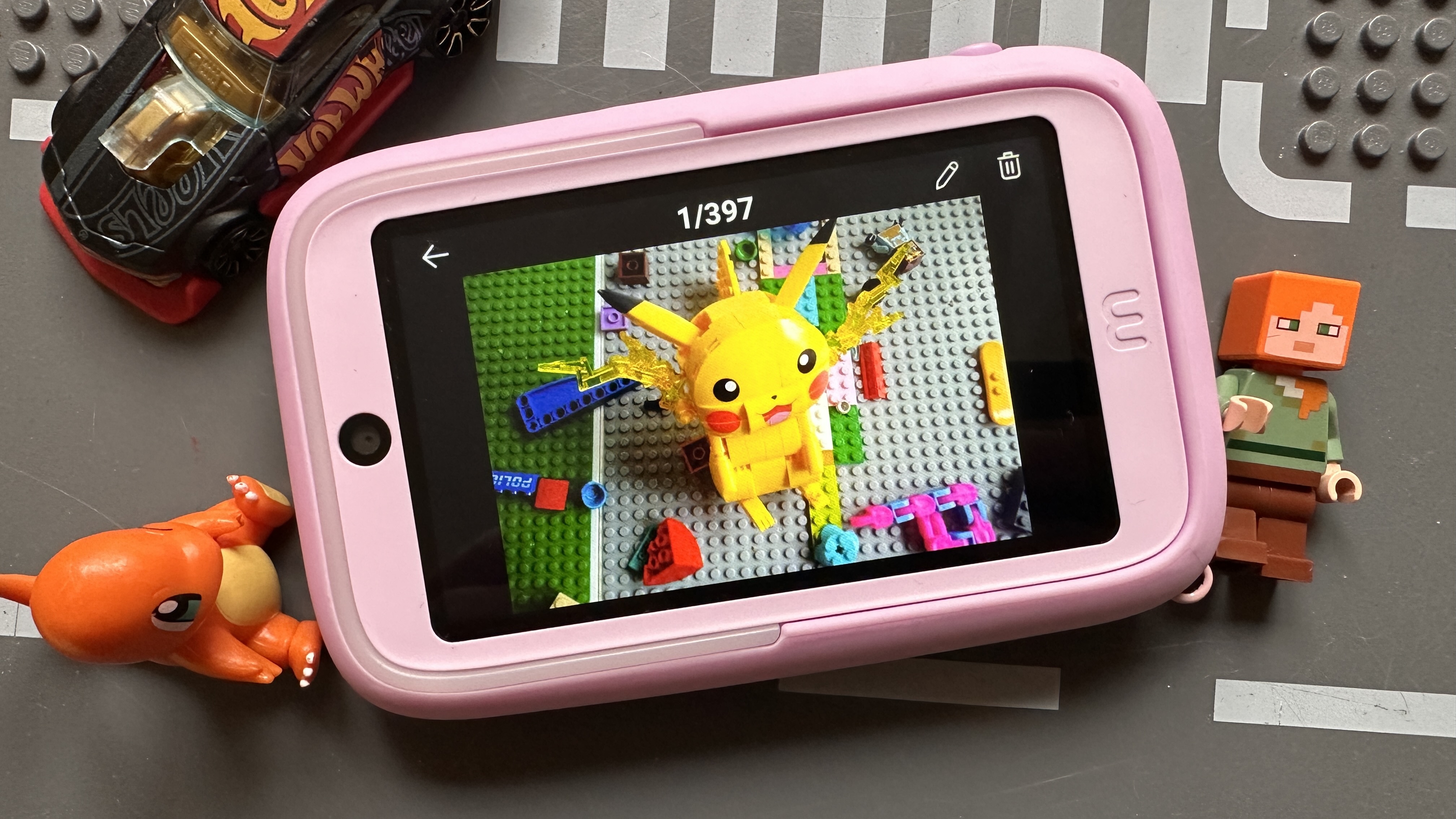
Specifications
Reasons to buy
Reasons to avoid
myFirst Camera 50 sample images


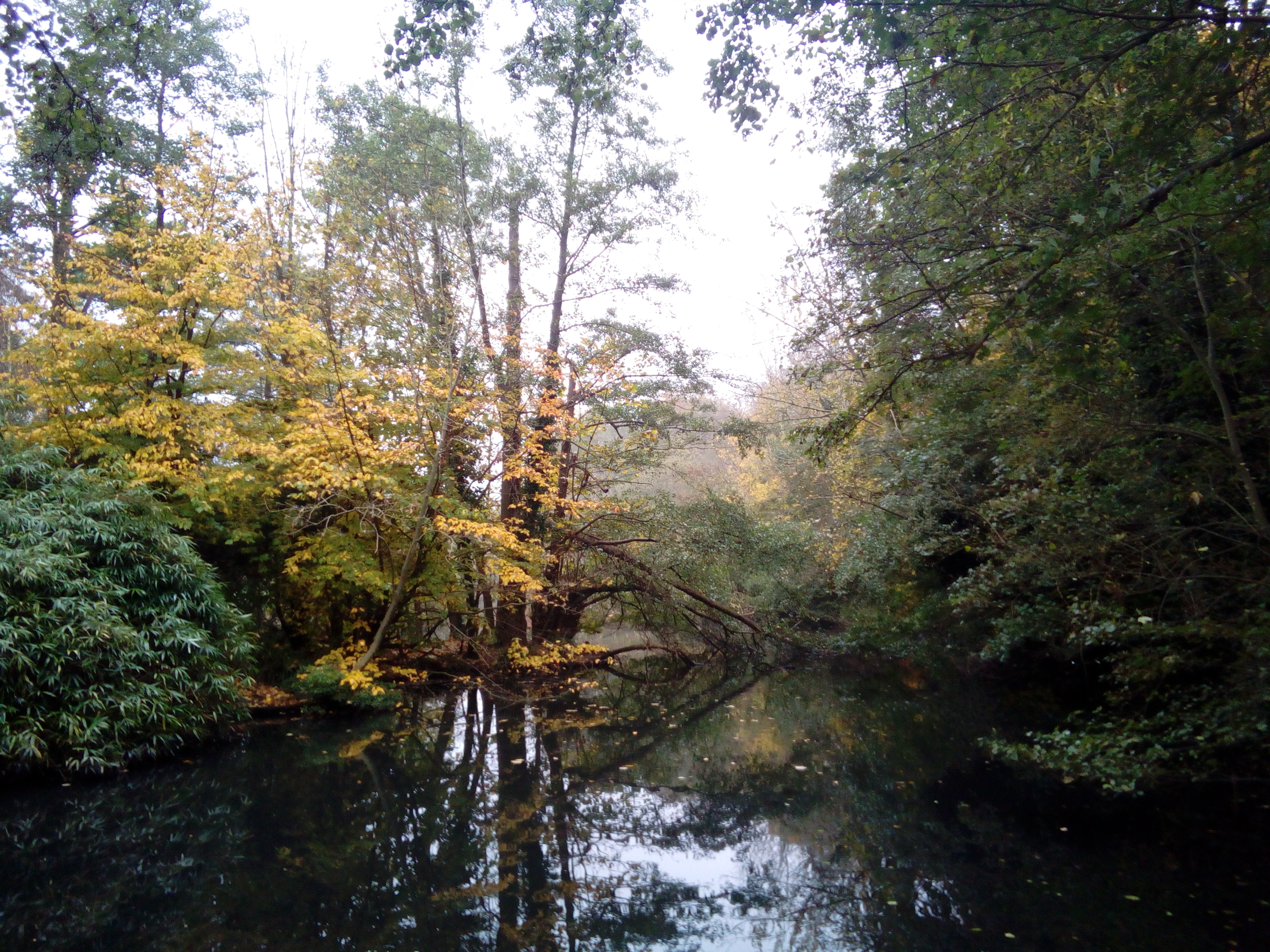


✅ Your kids like to borrow your phone: The myFirst Camera 50 is essentially a simplified camera phone with parental controls and editing features.
✅ You want to teach your kids about social media: The MyCircle app offers a safe space for children to learn about sharing content with friends and family.
❌ You want the best image camera: While image quality is decent of the affordable price tag, results fall quite a way behind modern smartphones.
❌ You have an older child: Although the myFirst Camera 50 is recommended for kids up to 12, children older than 10 will probably want more features.
If your little one likes to borrow your smartphone to take photos, we think the myFirst Camera 50 could be a great substitute. Effectively a 4-inch tablet with a custom Android interface, it’s designed to give kids a simple introduction to editing and sharing photos. In our review, we praised the simplicity of its interface, with three control buttons and an intuitive touchscreen. We also appreciated its rubberized plastic finish, which feels grippy and robust.
Equipped with a 20MP rear camera and a 16MP front-facing lens with a soft selfie light, image quality doesn’t rival the best camera phones, but it’s decent enough for the price. The operating system gives kids a selection of editing options, including filters and stickers, along with a simply feature that uses AI to generate simple highlight videos. There’s also integration with my First Circle, a messaging service which lets your youngster share content with friends and family. The idea is to help little creators learn to use social media responsibly, in a protected space with parental controls.
Read our in-depth myFirst Camera 50 review
The best film camera
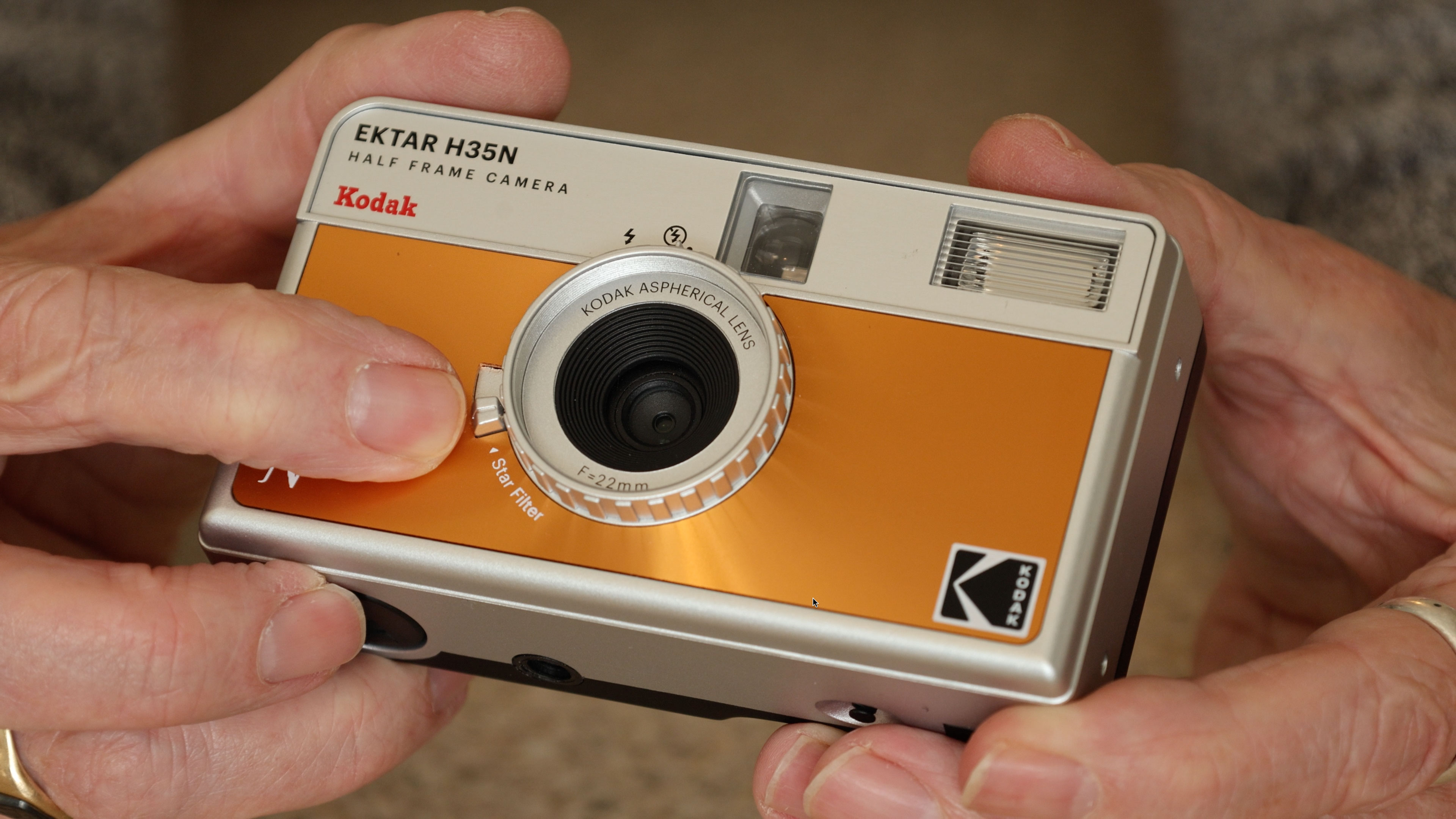
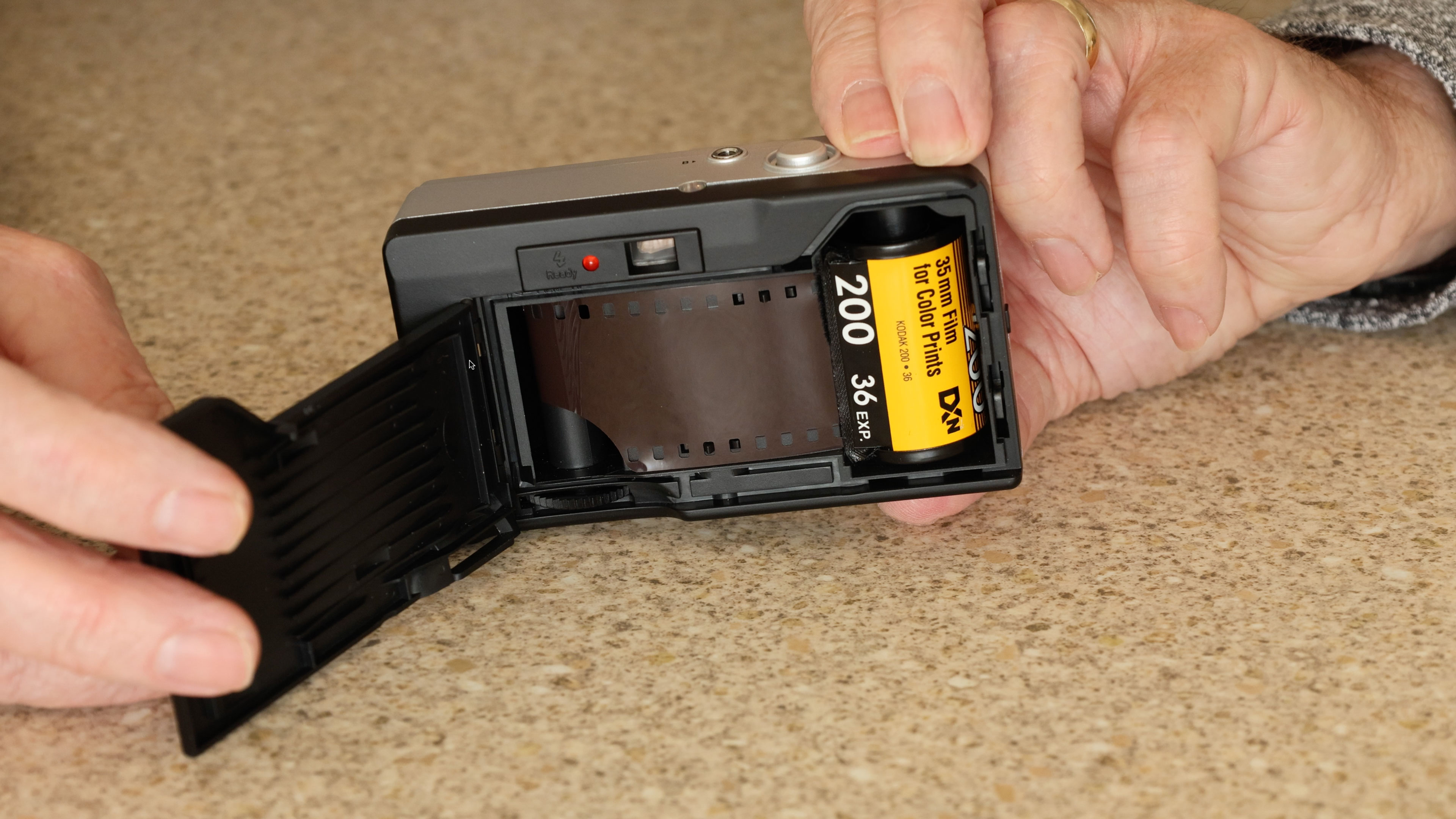
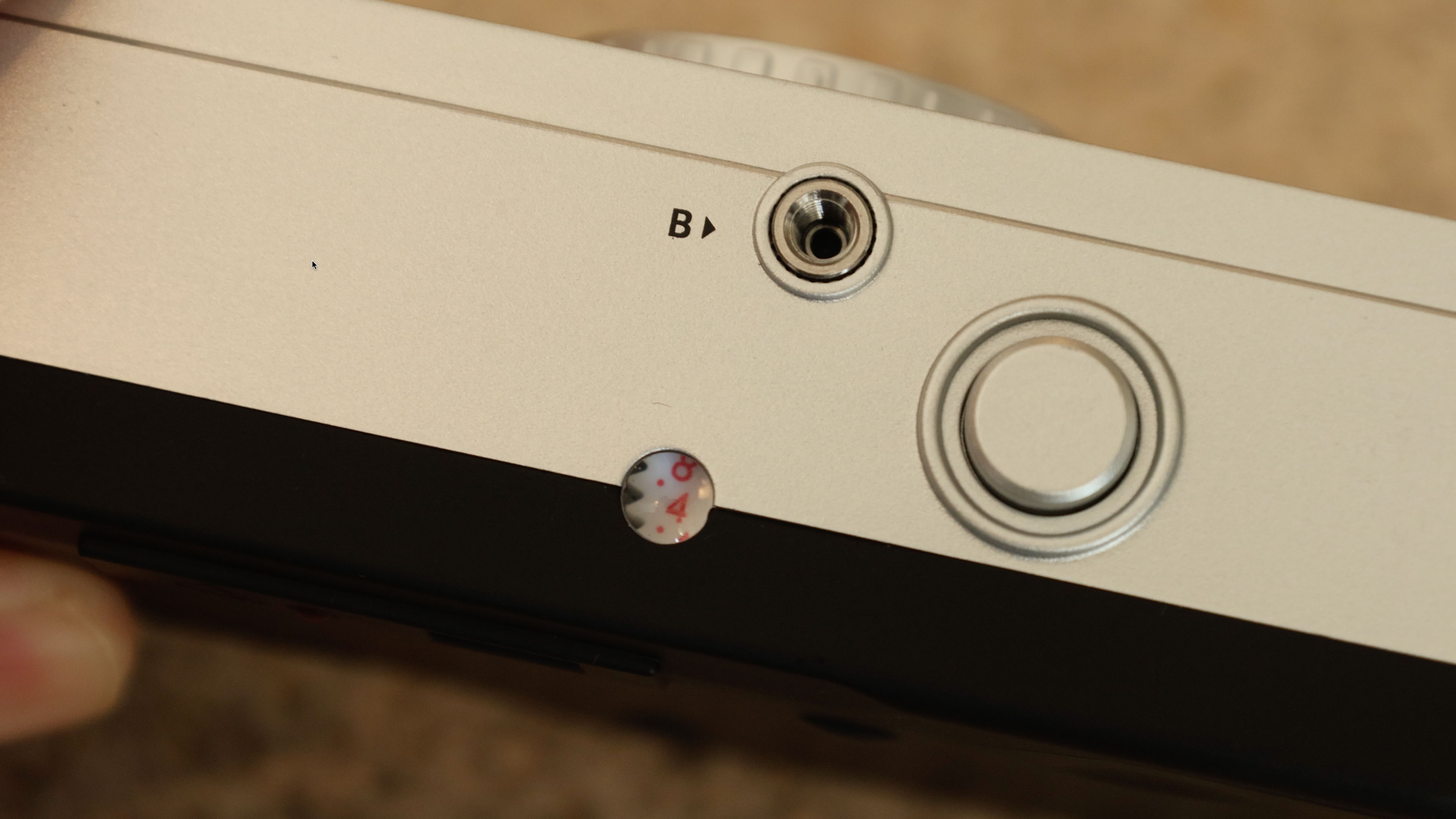
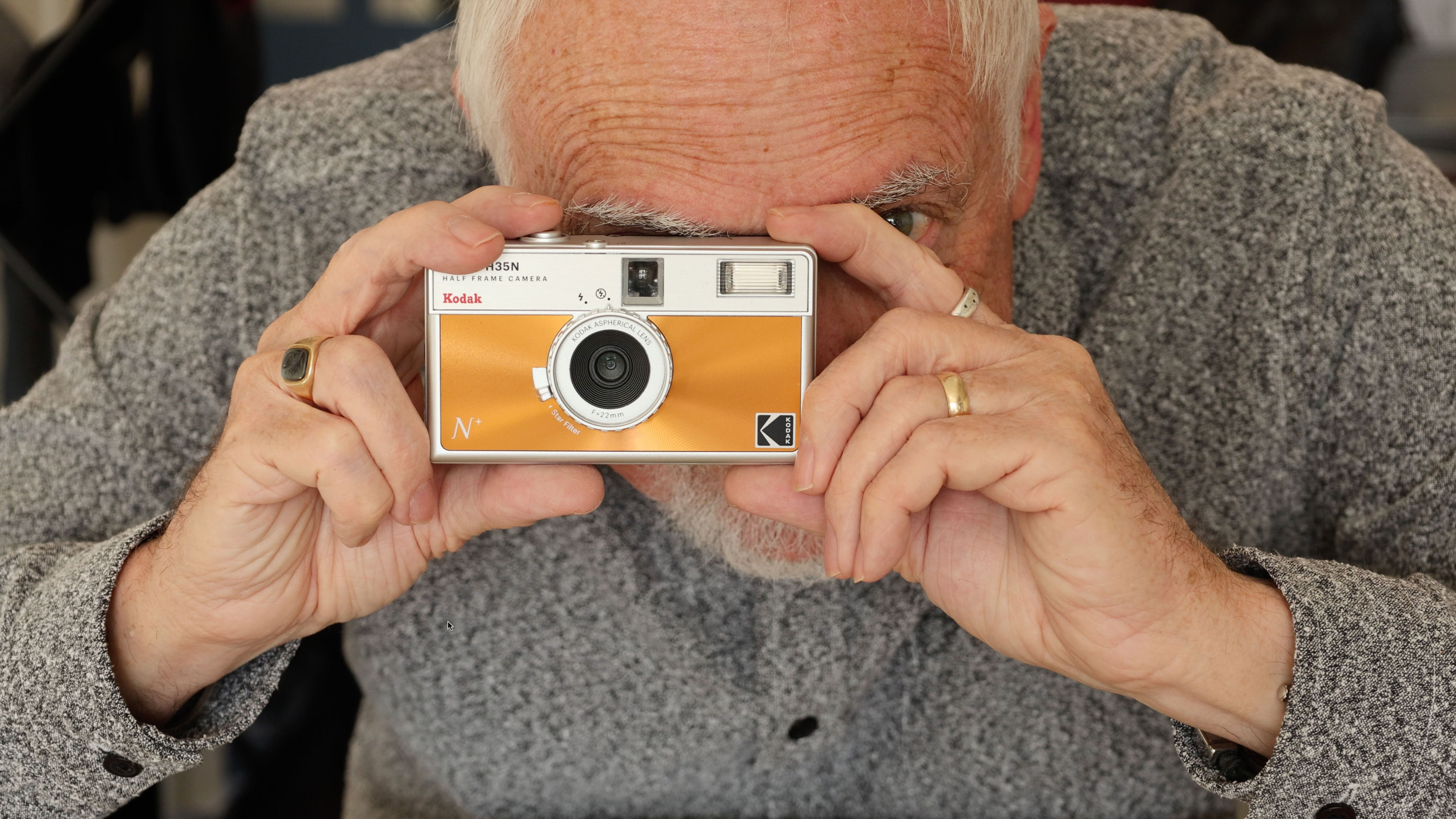
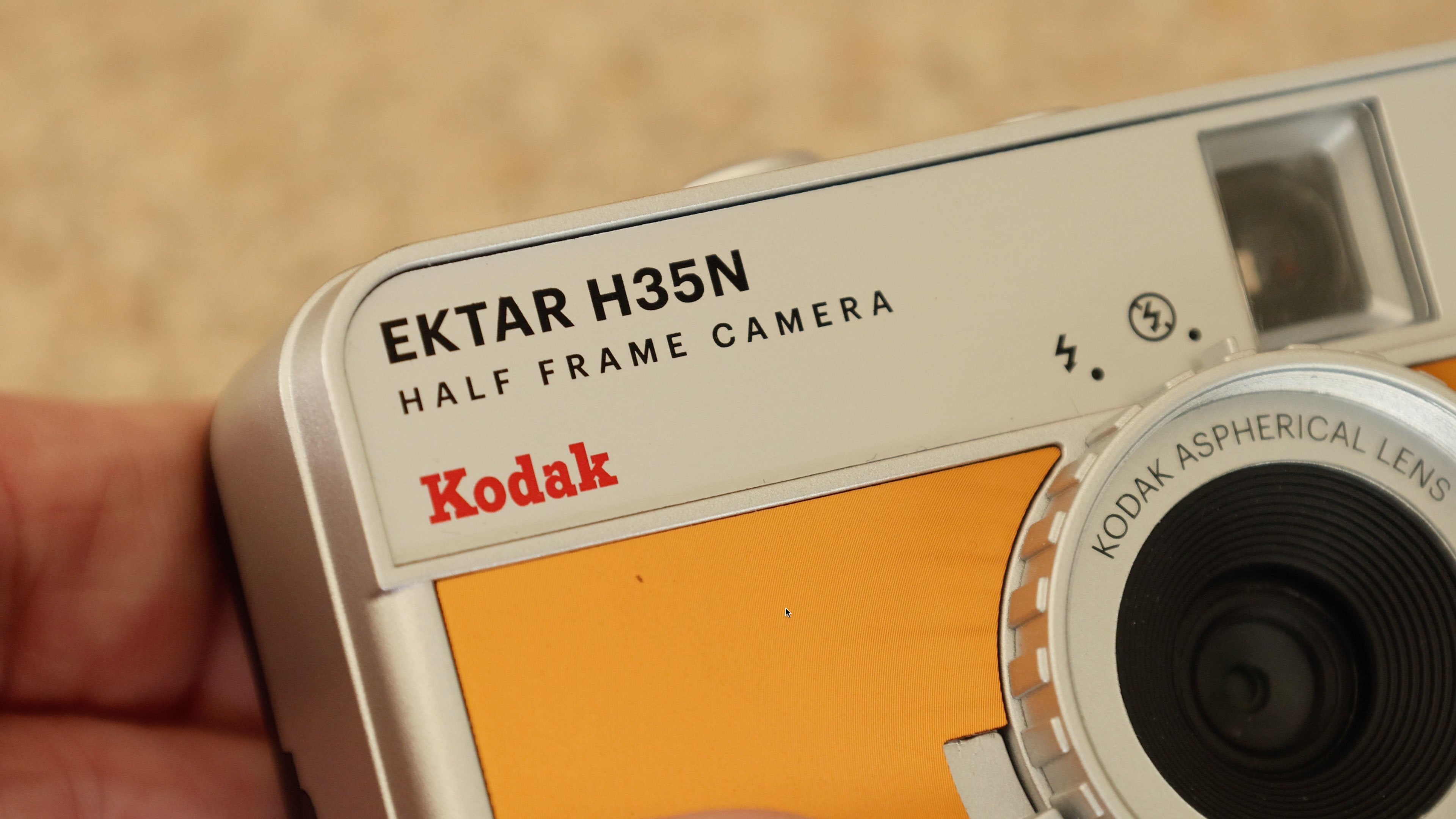
Specifications
Reasons to buy
Reasons to avoid
Kodak Ektar H35N sample images
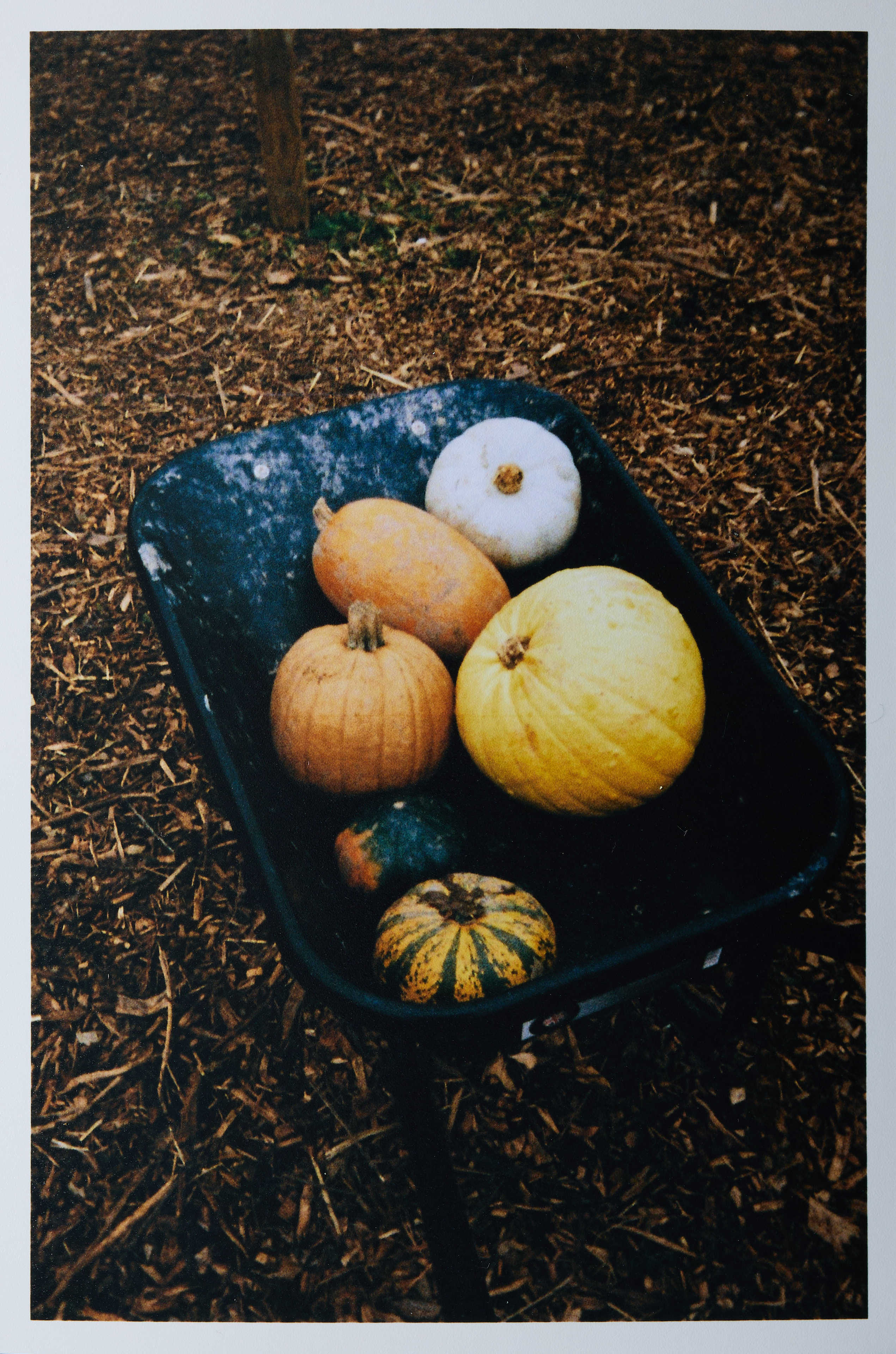

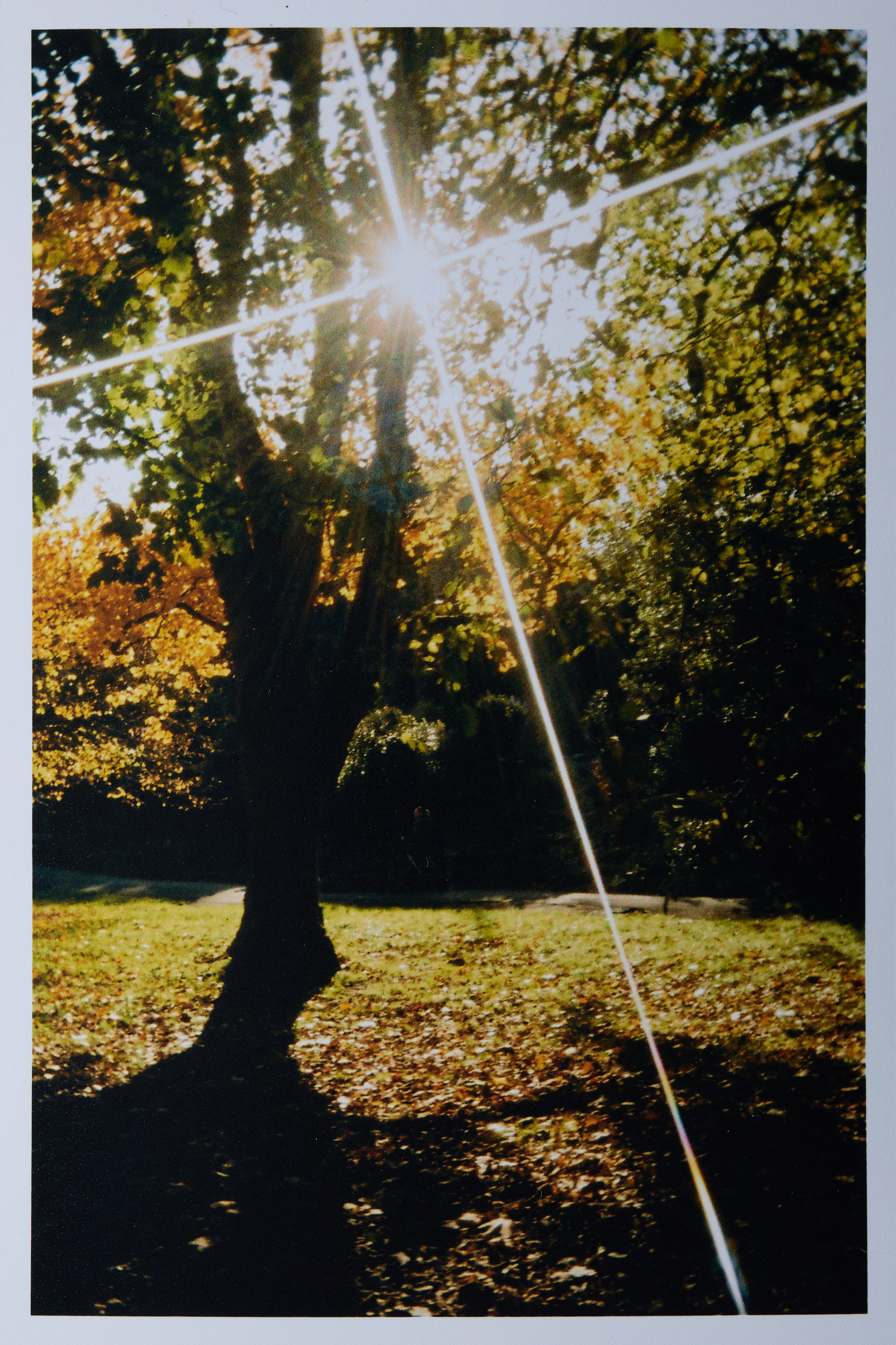
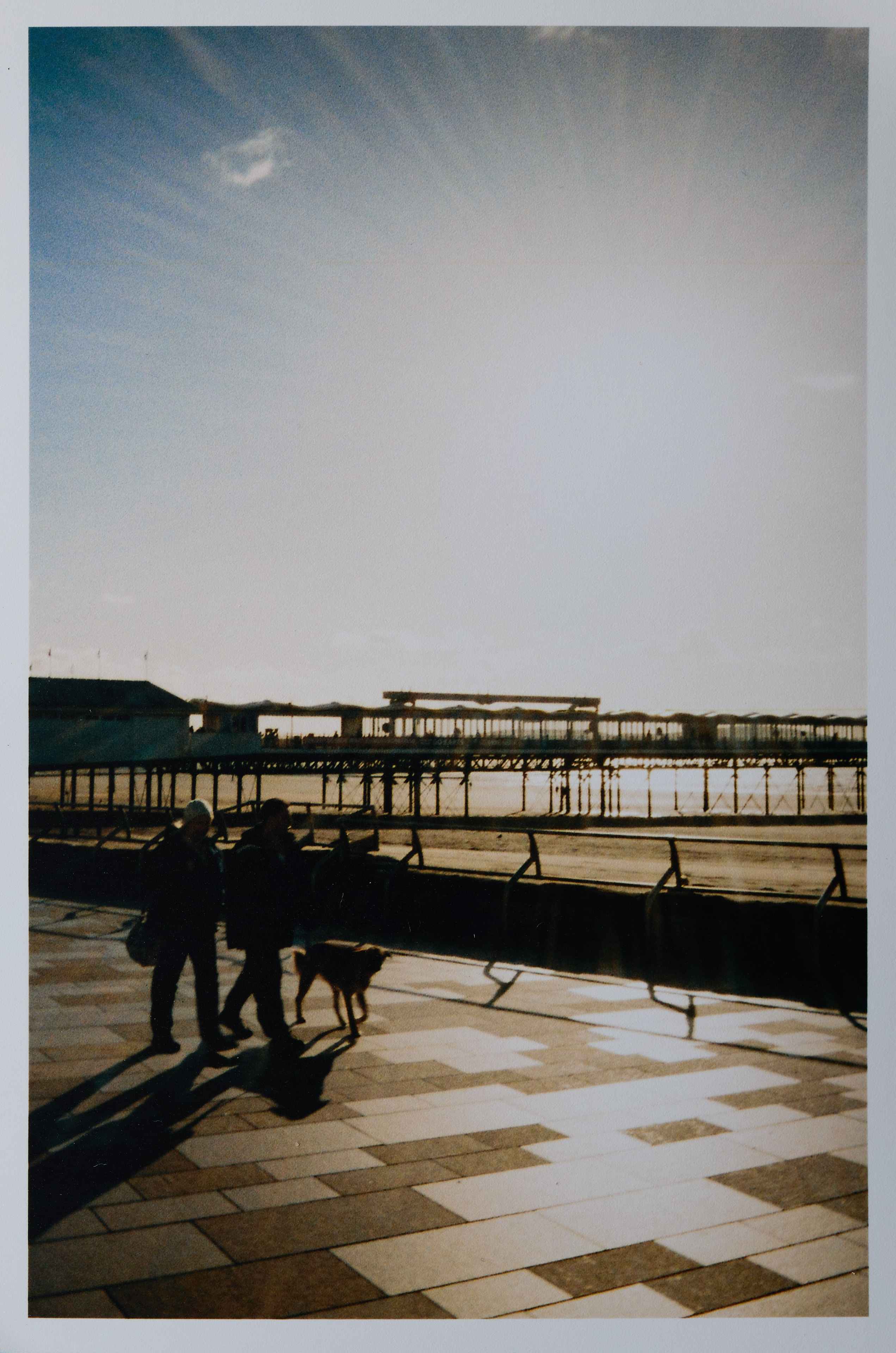
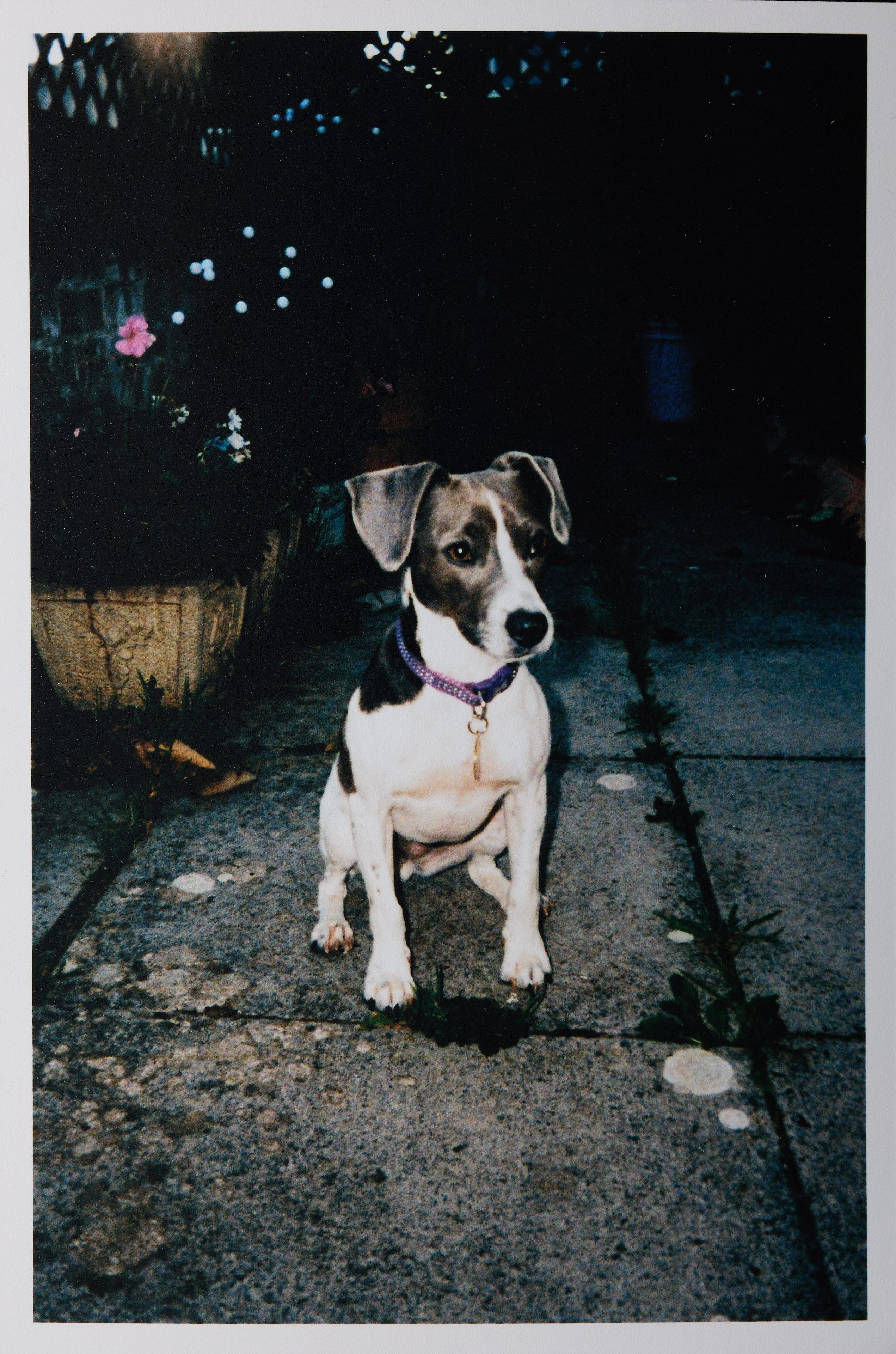
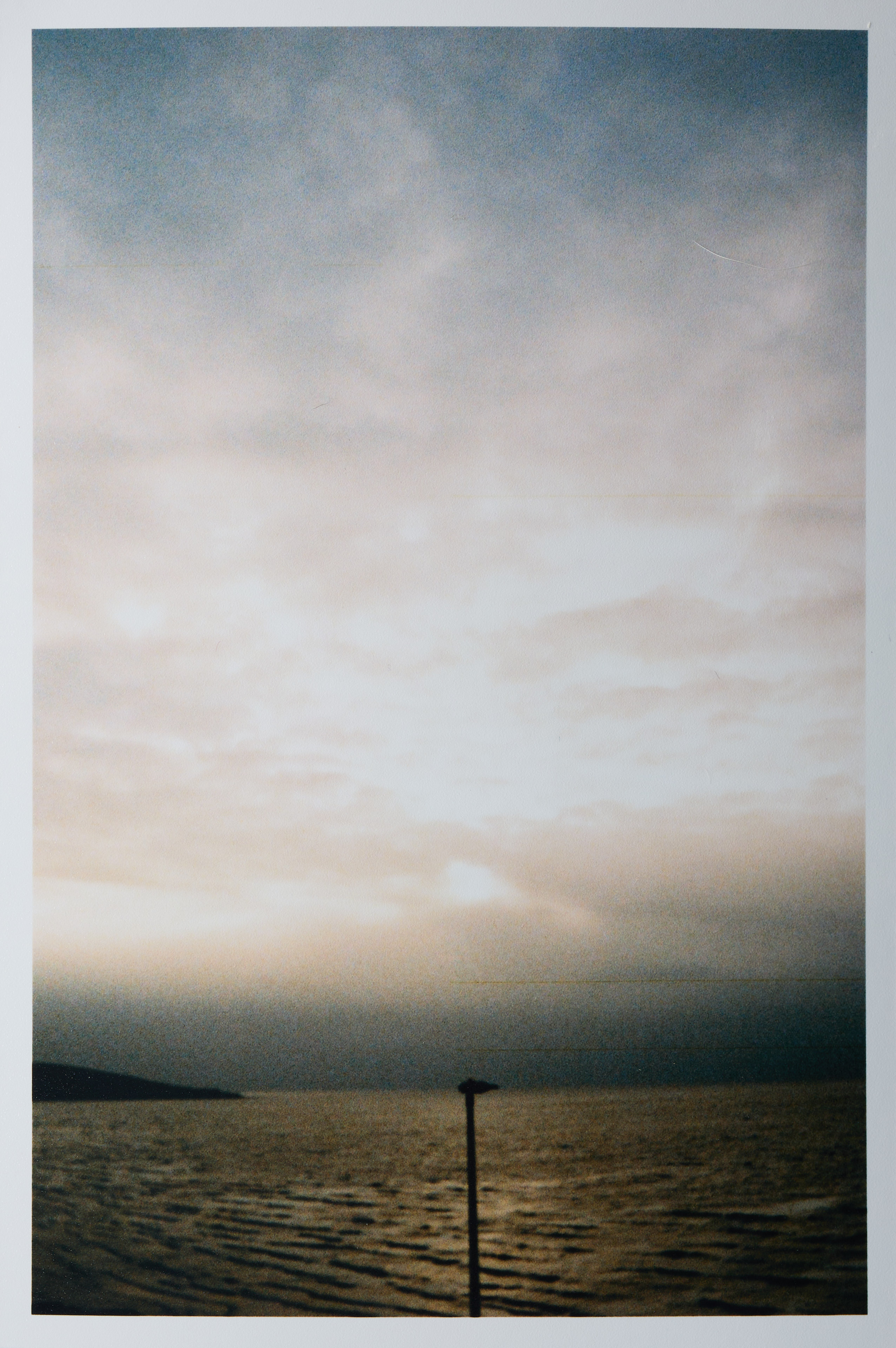
✅ You want your kids to get a break from digital: The analog process is more slow and considered, and requires a patient wait for its tangible results.
✅ You want something super simple: With a simple fixed lens and built-in flash, this is as straightforward as analog photography gets.
❌ You want something super cheap: The camera itself may be very affordable, but the costs associated with film photography feel higher than ever.
❌ You want to teach photography tech skills: With no real controls for aperture or shutter speed, this is a very basic point-and-shoot camera.
In an age where children are forever glued to screens, the Kodak Ektar H35N offers something refreshingly different: a true analog photography experience that won't break the bank.
It's essentially a reusable disposable 35mm camera, making it ideal for young photographers. There are virtually no controls to master – kids simply wind on, look through the viewfinder and press the shutter button. No menus, no settings, no digital distractions – photography stripped back to its purest form.
The half-frame format is a clever bonus. Using standard 35mm film, it captures vertical images that feel natural in our phone-dominated world, while doubling the number of shots per roll. That's plenty of chances for experimentation without the need for frequent film changes.
But here's where the magic really happens: the wait. Unlike instant smartphone gratification, kids must finish the roll, send it off for developing and wait for prints to arrive. Opening that packet of physical photographs creates a sense of anticipation and excitement that reviewing images on a screen just can't match. These tangible prints can go straight into albums or frames, creating lasting memories rather than forgotten files on a device.
The camera itself is lightweight, simple and surprisingly robust for its plastic construction. The built-in flash handles indoor shots, while the fixed aperture and focus work well in daylight conditions.
The downsides? Film, developing and printing costs add up quickly – especially for half-frame processing, which requires specialist labs. Parents should also note there's zero technical control, so this won't teach photographic fundamentals like aperture or shutter speed.
Read our in-depth Kodak Ektar H35N review
Also consider
We've reviewed a whole range of cameras for kids, which means there are plenty more that almost made it into this list. Here are a few honorable mentions to consider.
Best instant alternative – Fujifilm Instax Mini 12: If you want a fun, no-frills instant camera for your youngster, the Instax Mini 12 is a great option. It’s one of our favorite instant cameras, thanks to its simple interface and the rich, vintage look of its prints. Film refill packs are relatively affordable, too.
Best DSLR for older kids – Nikon D3500: If you’re buying for an older child who’s learnt the ropes of photography with a compact and now wants something that’s a step up, the Nikon D3500 is our favorite DSLR for beginners. It’s really easy to use, benefits from fantastic handling and takes great stills. Plus it’s affordable.
Best for family fun – Fujifilm Instax Pal: A cute and characterful digital camera that connects to Instax Link digital printers, the Fujifilm Instax Pal is a fun way for all the family to take photos and print them on demand. Image quality is average, but the Pal’s tiny dimensions mean it’s easy for little hands to grasp.
Best screen-free – Camp Snap camera: A digital version of a single-use camera, the Camp Snap is a low-cost option with screen-free simplicity. Image quality is poor, but its point-and-shoot setup is refreshingly straightforward. Features are limited to a viewfinder and an LED flash, with no creative modes to play with.
Best DIY project – Lomography Konstruktor F: A build-your-own SLR, the Konstruktor F is a fantastic and affordable choice for youngsters who love to see how things work. Its price is reflected in the cheap plastic build, but there’s value in kids learning about the internal workings of a 35mm film camera by making one.
Best for youngsters – myFirst Camera 3: A simple, kid-friendly camera with a useful selfie lens, the myFirst Camera 3 makes it easy for little ones to try out photography. It benefits from a cute, well-sized design with a useful 2-inch screen. Be aware that its plastic body isn’t as tough as it looks.
Best vlogging – DJI Osmo Pocket 3: A pocket-sized tool for budding vloggers, the Pocket 3 allows users of all skill levels to shoot sharp, stable 4K video. Its 1-inch sensor and built-in gimbal deliver excellent results, plus it can rotate to record native vertical video. It’s not the cheapest or the toughest, though.
How to choose the best camera for kids
How to choose the best camera for kids
Age range
Different cameras are better suited to children of different ages. For younger photographers, look at cameras with simple controls, big buttons and a drop-proof build. These will usually have an automatic mode to keep things as easy as possible, although they may feature some photo effects. Older children will usually enjoy more advanced features, such as a zoom lens, video recording and some manual modes for more creativity.
Durability
It’s no secret that children can be rough with their stuff, and cameras are no exception. That’s why several of the options in the list above are rugged, meaning they can safely survive drops, submersion in water and other outdoor activities. Certain cameras also have the option of a protective casing, for added peace of mind.
Dimensions
The best cameras for kids compact enough for small hands to hold comfortably. They should also be lightweight, so that young photographers are able to carry them around wherever they go.
Features
Unlike other cameras, image quality is often a secondary priority when shopping for a kids’ camera. For younger photographers especially, other features will be more important. These could be selfie or macro modes, fun filters, or the ability to print images instantly.
Budget
Cost will always be a key consideration. Many of the cameras in our guide above are affordable choices that won’t break the bank. If your child gets more serious about photography, you might then want to consider a more advanced model with the features for them to grow into.
Sign up for breaking news, reviews, opinion, top tech deals, and more.

Tim is the Cameras editor at TechRadar. He has enjoyed more than 15 years in the photo video industry with most of those in the world of tech journalism. During his time as Deputy Technical Editor with Amateur Photographer, as a freelancer and consequently editor at Tech Radar, Tim has developed a deeply technical knowledge and practical experience with cameras, educating others through news, reviews and features. He’s also worked in video production for Studio 44 with clients including Canon, and volunteers his spare time to consult a non-profit, diverse stories team based in Nairobi. Tim is curious, a keen creative, avid footballer and runner, and moderate flat white drinker who has lived in Kenya and believes we have much to enjoy and learn from each other.
- Mark WilsonSenior news editor
- Paul HattonFreelance writer
- Chris Rowlands